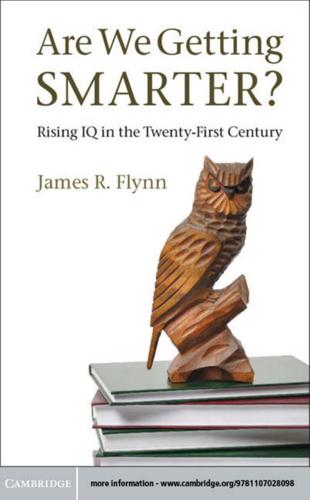
Are We Getting Smarter?: Rising IQ in the Twenty-First Century
by
James R. Flynn
Published 5 Sep 2012
Federal district courts have made full use of their freedom and thus, the 11 that have weighed in thus far vary widely in terms of positive or negative attitudes toward the Flynn effect. Five are favorable. The Eastern District of Maryland “will, as it should, consider the Flynn-adjusted scores in its evaluation of the defendant’s intellectual functioning” (United States v. Davis, 2009, p. 488). The Eastern District of Louisiana found that “the Flynn effect is well established scientiically … Hence 85 Are We Getting Smarter? the court will correct for the Flynn effect … applying Dr. Flynn’s formula” (United States v. Paul Hardy, 2010, p. 33). The Eastern District of Virginia accepted that “that the Flynn effect causes an increase in IQ scores of approximately 0.3 points per year” (Green v.
…
All three appellate courts have taken a neutral stand, namely, that while altering IQ scores in the light of the Flynn effect is not mandatory, it is also not unreasonable. 84 Death, memory, and politics There are differences of nuance. Criticizing a prosecution case that the defendant was not mentally retarded, the 11th Circuit said: “Moreover, all of the scores were on WAIS tests, which may have relected elevated scores because of the Flynn effect” (Holladay v. Allen, 2009, p. 1358; also see Thomas v. Allen, 2010). The 4th Circuit has held that lower courts must at least discuss whether the Flynn effect is relevant to the evaluation of the persuasiveness of expert testimony (Walker v.
…
The Northern District of Alabama said that: “a court should not look at a raw IQ score as a precise measurement of intellectual functioning. A court must also consider the Flynn effect … in determining whether a petitioner’s IQ score falls within a range containing scores that are less than 70” (Thomas v. Allen, 2009, p. 1281). The Southern District of Texas was also positive (Rivera v. Dretke, 2006). Three federal district courts have been more guarded. The Southern District of Alabama held that the Flynn effect could potentially render IQ scores unreliable (Williams v. Campbell, 2007, p. 47). The Northern District of Mississippi said that failure to apply the Flynn effect was not in itself unreasonable. But that since, in the case at hand, the expert witnesses were unanimous on the existence of and necessity of applying it, the Court would take it into account (Wiley v.
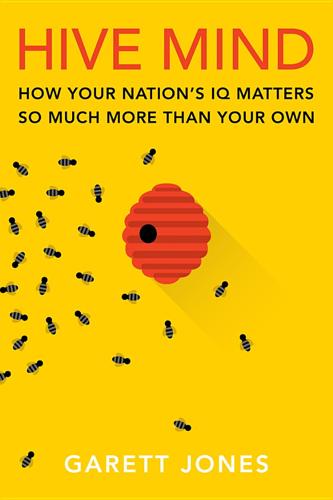
Hive Mind: How Your Nation’s IQ Matters So Much More Than Your Own
by
Garett Jones
Published 15 Feb 2015
Years later, while writing their influential book The Bell Curve, political scientist Charles Murray and psychologist Richard Herrnstein called this long-term rise in IQ scores The Flynn Effect, and the name has appropriately stuck. A few researchers prefer to call it the Lynn-Flynn effect or even the FLynn effect (sic) since, as we saw, Lynn made his own contribution on the topic. But Flynn’s systematic data collection and his decision to clearly point out that this rise in national IQs was strong evidence that the environment had a big impact on group IQ scores were the foundations for a revolution in IQ research. Once psychologists knew that these national IQ gains were big and were everywhere, the search for explanations began. The Flynn Effect: The Fruit of Free Inquiry Later work has shown that the IQ gains tended to be larger on tests that were more abstract and less concrete.
…
Flynn himself believes that the rise in IQ scores reflects part of the “cognitive history of the 20th century,” a time when modern life increased the demand for abstract thinking, when cultural and economic changes spurred children and adults alike to use their brains differently from in the past.5 Flynn sees some possible role for nutrition and health improvements, but at least when discussing the Flynn Effect in rich countries, he prefers to discuss—in two fascinating books and elsewhere—how we humans are, on average, using our brains differently from how our ancestors did.6 Flynn’s favored explanation for most of the Flynn Effect deserves our attention, but explanations by other scholars deserve attention as well. What are they saying? At this point, about three decades after the Flynn Effect was first conclusively documented, it’s safe to say that there are too many explanations for it. At least a dozen stories have at least a patina of plausibility, each of which might explain a little or a lot of the overall IQ increase.
…
Nutrition, Health, and IQ Let’s return to a question that might be possible to answer, the question of what causes the Flynn Effect. In fact there are if anything too many explanations for the Flynn Effect, an embarrassment of theories. And aside from a few short-run experiments, we overwhelmingly have to rely on mere observational studies: this or that particular trait has increased over time, and this or that trait sounds like it might help IQ, to the mind of a psychologist or a medical doctor, so we chalk that trait up as a possible driver of the Flynn Effect, and a possible path toward raising national average IQ around the world. Let’s first turn to a promising set of channels: nutrition and health.

Everything Bad Is Good for You: How Popular Culture Is Making Us Smarter
by
Steven Johnson
Published 5 Apr 2006
Other forms of modern complexity may also be a factor here , of course : urban environments are, by Schooler's definition, more c o mpl ex than rural ones, and so the i ndustri al-age migration to the cities may play a role in the Flynn Effect. But most of the i ndustri alized world underwent that mi- E V F R Y T H I N G B A D I � G O O D F O R Yo u 1 47 gration before World War II; the post-war trend has been surburban flight. And s o the most dramati c spi ke i n IQ scores-the one witnessed over the past thirty yea rs-is most likely being driven by something else. TH E LIN K between the Flynn Effect and popular medi a i s a hypothesis, b u t there are a number of reasons to think that more than a casual connection exists. As research into the Flynn Effect has deepened, three i mportant tendencies have come to light, all of which parallel the developments in popular culture I 've descri bed over the preceding pages.
…
That debunking has taken two primary forms: I Q has been shown to be more vulner able to environmental conditions than its original " innate intelligence" billing i ndicated ; and the intel ligence that the IQ tests measure has been shown to reflect only part of the spectrum of human intelligence. But those objections-true as they may be-do not undermine the trend described by the Flynn Effect in any way. In fact, they may make i t more interesting. Clearly there are multiple forms of i ntelligence, only some of which are measured by I Q tests: emotional intelli gence, for one, is entirely ignored by all traditional I Q met rics. And the Flynn Effect offers what many consider incontrovertible evidence that IQ is profoundly shaped by environment, since genetics alone can't explain such a dra matic rise in such a short amount of time.
…
Imagine this scenario: a person who tests in the top 10 percent of the United States in 1 920 time-travels eighty years into the future and takes the test E V E R Y T H I N G B A D I S G O O D F O R Yo u I4 � again . Thanks to the Flynn Effect, h e would be i n the bot tom third for IQ scores today. Yesterday 's brainiac is today's simpleton. A small part of the Flynn Effect may be attri butable to increased famili arity with intelligence tests themselves. But as Flynn points out, even if you take the exact same I Q test multiple times in a row, the benefits from that repeat ex posure cap out at around 5 or 6 points.
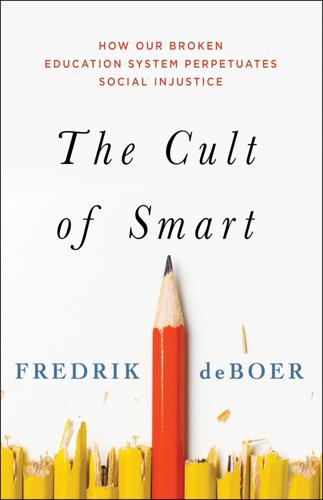
The Cult of Smart: How Our Broken Education System Perpetuates Social Injustice
by
Fredrik Deboer
Published 3 Aug 2020
In this way the environment comes to match the genetic potential; we gravitate toward mental environments consistent with our underlying predispositions. Another interesting dynamic lies in the Flynn effect. Named for the pioneering intelligence researcher James Flynn, the Flynn effect refers to the striking growth in IQ across essentially every tested cohort in the twentieth century. A recent meta-analysis found that IQs grew at a rate of about 3 points per decade since at least the 1930s, both a statistically and practically significant figure.6 Both the causes and the consequences of the Flynn effect have been hotly debated for decades. Many believe that the increase stems from more cognitively demanding environments—that as we progress through modernity, the challenges and stimulation our brains experience cause us to become more intellectually nimble.
…
See teachers Eiseley, Loren Eisenhower era elementary schools median public school teacher pay norm-referenced state-mandated standardized tests and “Texas miracle” under socialism and universal childcare elite colleges and universities college admissions scandal of 2019 (Operation Varsity Blues) returns on attendance at and winning in contemporary capitalist society employment and advanced degree premium college unemployment premium and elite high schools and labor force participation rate under socialism and universal basic income enfranchisement, political Engels, Friedrich engineering programs equality and mobility social inequality types of equality equality of opportunity and behavioral genetics and blank-slate philosophy of education and Dewey, John impossibility of and income inequality and liberalism and mobility and morality Obama, Barack on and poverty and progressivism and racism equality of outcomes equality under socialism eugenics Every Student Succeeds Act extracurricular activities Facebook Fish, Jefferson M. Florida, Richard Flynn, James Flynn effect formative equality of opportunity. See also equality of opportunity Founding Fathers France, Anatole free college free market economics free trade Freud, Sigmund Friedman, Milton Friedman, Rose game theory. See zero-sum game gaps achievement and performance gaps gender gaps Obama on education gaps racial achievement gaps wage gaps Gates, Bill Gattaca (film) gender achievement gap gender essentialism gender wage gap genetic assortative mating genetics and achievement gaps and Flynn effect Genome-Wide Association Study and parenting and pseudoscientific racism Three Laws of Behavioral Genetics twin and adoption studies and Wilson effect See also behavioral genetics Genome-Wide Association Study (GWAS) Gentleman’s C gentrification genuine socialism gifted student programs globalization and collegiate arms race and knowledge economy and neoliberalism Goldin, Claudia “good life,” the Gottfredson, Linda GPA, high school graduation rates college high school and loosening of standards and moral choice and selection bias and special-needs students of women Great Recession Great Society liberals Green, Thomas Hill Greene, Jay P.
…
(When a professor curves a test so that students are arranged in a certain grade spectrum, they are in effect turning a criterion-referenced test into a norm-referenced test.) If you’re just concerned about absolute learning, I have good news for you: we’re already succeeding at raising the bar of absolute learning. The Flynn effect, named after pioneering intelligence researcher James Flynn, describes the remarkable growth in IQs we’ve seen over the past century, across all recognized demographic groups. Between 1909 and 2013, IQs improved by almost two full standard deviations, an enormous leap.18 All kinds of people are getting smarter all the time.

Enlightenment Now: The Case for Reason, Science, Humanism, and Progress
by
Steven Pinker
Published 13 Feb 2018
Since the first data point for Afghanistan precedes the reign of the Taliban by fifteen years and the second one postdates it by a decade, the gain cannot simply be attributed to the 2001 NATO invasion that deposed the regime. 28. The Flynn effect: Deary 2001; Flynn 2007, 2012. See also Pinker 2011, pp. 650–60. 29. Heritability of intelligence: Pinker 2002/2016, chap. 19 and afterword; Deary 2001; Plomin & Deary 2015; Ritchie 2015. 30. Flynn effect not explained by hybrid vigor: Flynn 2007; Pietschnig & Voracek 2015. 31. Flynn effect meta-analysis: Pietschnig & Voracek 2015. 32. End of the Flynn effect: Pietschnig & Voracek 2015. 33. Evaluating candidate causes of the Flynn effect: Flynn 2007; Pietschnig & Voracek 2015. 34. Nutrition and health explain only part of Flynn effect: Flynn 2007, 2012; Pietschnig & Voracek 2015. 35.
…
Food, health, and environmental quality are among the perquisites of a richer society, and not surprisingly, the Flynn effect is correlated with increases in GDP per capita.33 But nutrition and health can explain only a part of the Flynn effect.34 For one thing, their benefits should be concentrated in pulling up the lower half of the bell curve of IQ scores, populated by the duller people who had been held back by poor food and health. (After all, past a certain point, additional food makes people fatter, not smarter.) Indeed, in some times and places the Flynn effect is concentrated in the lower half, bringing the duller closer to the average.
…
Existence and heritability of g: Deary 2001; Plomin & Deary 2015; Ritchie 2015. 36. The Flynn effect as an increase in analytic thinking: Flynn 2007, 2012; Ritchie 2015; Pinker 2011, pp. 650–60. 37. Education affects the Flynn components of intelligence (though not g): Ritchie, Bates, & Deary 2015. 38. IQ as a tailwind: Deary 2001; Gottfredson 1997; Makel et al. 2016; Pinker 2002/2016; Ritchie 2015. 39. The Flynn effect and the moral sense: Flynn 2007; Pinker 2011, pp. 656–70. 40. The Flynn effect and real-world genius: con, Woodley, te Nijenhuis, & Murphy 2013; pro, Pietschnig & Voracek 2015, p. 283. 41.

The Better Angels of Our Nature: Why Violence Has Declined
by
Steven Pinker
Published 24 Sep 2012
The bombshell is that the Flynn Effect is almost certainly environmental. Natural selection has a speed limit measured in generations, but the Flynn Effect is measurable on the scale of decades and years. Flynn was also able to rule out increases in nutrition, overall health, and outbreeding (marrying outside one’s local community) as explanations for his eponymous effect.241 Whatever propels the Flynn Effect, then, is likely to be in people’s cognitive environments, not in their genes, diets, vaccines, or dating pools. A breakthrough in the mystery of the Flynn Effect was the realization that the increases are not gains in general intelligence.242 If they were, they would have lifted the scores on all the subtests, including vocabulary, math, and raw memory power, with a rate related to the degree each test correlates with g.
…
Rising IQ around the world: Flynn, 2007, p. 2; Flynn, 1987. 230. Naming the Flynn Effect: Herrnstein & Murray, 1994. 231. Thirty countries: Flynn, 2007, p. 2. 232. Flynn Effect began in 1877: Flynn, 2007, p. 23. 233. Adult of 1910 would be retarded today: Flynn, 2007, p. 23. 234. Scientists’ consensus on intelligence: Deary, 2001; Gottfredson, 1997a; Neisser et al., 1996. Intelligence as a predictor of life success: Gottfredson, 1997b; Herrnstein & Murray, 1994. 235. Flynn Effect uncorrelated with testing fads: Flynn, 2007, p. 14. 236. Flynn Effect not in math, vocabulary, knowledge: Flynn, 2007; Greenfield, 2009.
…
The result was the same in every sample: IQ scores increased over time.229 In 1994 Richard Herrnstein and the political scientist Charles Murray christened the phenomenon the Flynn Effect, and the name has stuck.230 The Flynn Effect has been found in thirty countries, including some in the developing world, and it has been going on ever since IQ tests were first given en masse around the time of World War I.231 An even older dataset from Britain suggests that the Flynn Effect may even have begun with the cohort of Britons who were born in 1877 (though of course they were tested as adults).232 The gains are not small: an average of three IQ points (a fifth of a standard deviation) per decade.
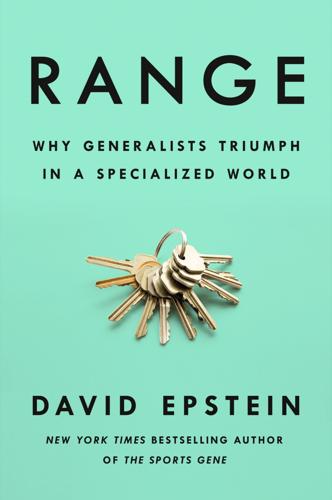
Range: Why Generalists Triumph in a Specialized World
by
David Epstein
Published 1 Mar 2019
When a group of Estonian researchers: O. Must et al., “Predicting the Flynn Effect Through Word Abstractness: Results from the National Intelligence Tests Support Flynn’s Explanation,” Intelligence 57 (2016): 7–14. I first saw these results in St. Petersburg, Russia, at the 2016 annual conference of the International Society for Intelligence Research. The ISIR invited me to give the annual Constance Holden Memorial Address. Four attempts at getting a visa later, I arrived. The event was full of vigorous but civil debate, including over the Flynn effect, and was an excellent background resource. “The huge Raven’s gains”: J.
…
Other academics had stumbled upon pieces of the same data earlier, but none had investigated whether it was part of a global pattern, even those who were having to tweak the test scoring system to keep the average at 100. “As an outsider,” Flynn told me, “things strike me as surprising that I think people trained in psychometrics just accepted.” * * * • • • The Flynn effect—the increase in correct IQ test answers with each new generation in the twentieth century—has now been documented in more than thirty countries. The gains are startling: three points every ten years. To put that in perspective, if an adult who scored average today were compared to adults a century ago, she would be in the 98th percentile.
…
As Flynn makes sure to point out, this does not mean that brains now have more inherent potential than a generation ago, but rather that utilitarian spectacles have been swapped for spectacles through which the world is classified by concepts.* Even recently, within some very traditional or orthodox religious communities that have modernized but that still block women from engaging in modern work, the Flynn effect has proceeded more slowly for women than for men in the same community. Exposure to the modern world has made us better adapted for complexity, and that has manifested as flexibility, with profound implications for the breadth of our intellectual world. In every cognitive direction, the minds of premodern citizens were severely constrained by the concrete world before them.
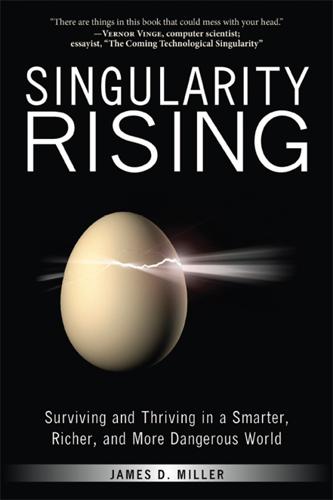
Singularity Rising: Surviving and Thriving in a Smarter, Richer, and More Dangerous World
by
James D. Miller
Published 14 Jun 2012
Both the reaction time and digit span tests go a long way toward showing that IQ tests measure something other than culture-specific knowledge, a theory further supported by magnetic resonance imaging showing a strong positive correlation between brain size and IQ. 136 THE FLYNN EFFECT Throughout the twentieth century, the IQ of each generation has been higher than that of the preceding one. This is called the “Flynn Effect,” named after the researcher who first publicized it. The effect is even powerful enough to see within a single generation of a family: After correcting for birth-order considerations, a brother born five years after his siblings will (on average) have a higher IQ than his siblings do.137 The size of the Flynn Effect is about 0.3 IQ points per year.138 To put this in perspective, if you have an IQ of 100, you’re smarter than 50 percent of the population, while an IQ 15 points higher—fifty years of the Flynn Effect—makes you smarter than 84 percent of the population.
…
The effect is even powerful enough to see within a single generation of a family: After correcting for birth-order considerations, a brother born five years after his siblings will (on average) have a higher IQ than his siblings do.137 The size of the Flynn Effect is about 0.3 IQ points per year.138 To put this in perspective, if you have an IQ of 100, you’re smarter than 50 percent of the population, while an IQ 15 points higher—fifty years of the Flynn Effect—makes you smarter than 84 percent of the population. A 2011 research paper showed the effect is still going strong, for at least the smartest 5 percent of Americans.139 An intelligence expert told me that no one really understands the cause of the Flynn Effect.140 It doesn’t appear to result from some kind of testing bias because the correlation between IQ test scores and other measures of cognitive achievement hasn’t changed.141 In my opinion, the Flynn Effect is one of the most significant mysteries in the social sciences.
…
•Evolution doesn’t work to make one group superior to another; it just operates to make groups more reproductively fit in their environments. •Broad racial classifications, such as “black,” have no evolutionary importance since different groups of people with black skin faced radically different evolutionary selection pressures. •Evolution shapes cultures as well as genes. We know from the Flynn Effect that IQ has recently increased, and because of the short time span in which this has happened, scientists believe the reason is cultural. Farming might have changed cognitive traits almost entirely as a result of cultural changes, such that parents better able to instill farming-friendly traits in their children had more grandchildren.
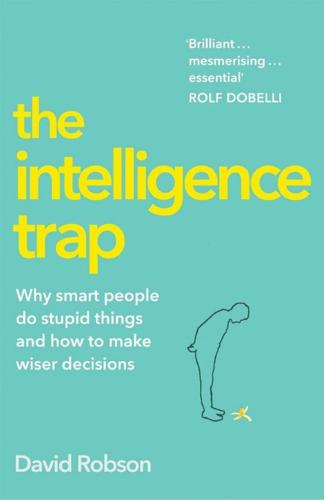
The Intelligence Trap: Revolutionise Your Thinking and Make Wiser Decisions
by
David Robson
Published 7 Mar 2019
Simonton, D.K. (2016), ‘Reverse Engineering Genius: Historiometric Studies of Superlative Talent’, Annals of the New York Academy of Sciences, 1377, 3–9. 40 Elements of this interview first appeared in an article I wrote for BBC Future in 2016: http://www.bbc.com/future/story/20160929-our-iqs-have-never-been-higher-but-it-hasnt-made-us-smart 41 Clark, C.M., Lawlor-Savage, L. and Goghari, V.M. (2016), ‘The Flynn Effect: A Quantitative Commentary on Modernity and Human Intelligence’, Measurement: Interdisciplinary Research and Perspectives, 14(2), 39–53. In line with the idea of scientific spectacles, recent research has shown that the Flynn Effect can largely be accounted for in the time people take to answer the questions. Younger generations do it more rapidly, as if abstract thinking has been automated and become second nature: Must, O. and Must, A. (2018), ‘Speed and the Flynn Effect’, Intelligence, 68, 37–47. 42 Some modern IQ researchers have in fact suggested that training in these abstract thinking skills could be a way of closing the social divide between low- and high-IQ individuals.
…
‘I think I was made, as a child, to be far too self-conscious of my status as a “Termite” . . . and given far too little to actually do with this mental endowment’, she later wrote.38 We can’t neglect the possibility that a few of the Termites may have made a conscious decision not to pursue a high-flying (and potentially stressful) career, but if general intelligence really were as important as Terman initially believed, you might have hoped for more of them to have reached great scientific, artistic or political success.39 ‘When we recall Terman’s early optimism about his subjects’ potential . . . there is the disappointing sense that they might have done more with their lives,’ Feldman concluded. The interpretation of general intelligence as an all-powerful problem-solving-and-learning ability also has to contend with the Flynn Effect – a mysterious rise in IQ over the last few decades. To find out more, I met Flynn at his son’s house in Oxford, during a flying visit from his home in New Zealand.40 Flynn is now a towering figure in intelligence research, but it was only meant to be a short distraction, he says: ‘I’m a moral philosopher who dabbles in psychology.
…
Just think of the elementary school lessons that lead us to consider the different branches of the tree of life, the different elements and the forces of nature. The more children are exposed to these ‘scientific spectacles’, the easier they find it to think in abstract terms more generally, Flynn suggests, leading to a steady rise in IQ over time. Our minds have been forged in Terman’s image.41 Other psychologists were sceptical at first. But the Flynn Effect has been documented across Europe, Asia, the Middle East and South America (see below) – anywhere undergoing industrialisation and Western-style educational reforms. The results suggest that general intelligence depends on the way our genes interact with the culture around us. Crucially – and in line with Flynn’s theory of ‘scientific spectacles’ – the scores in the different strands of the IQ test had not all risen equally.
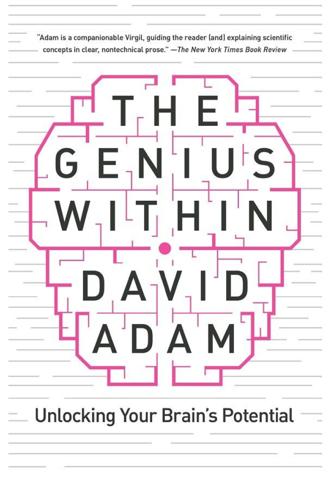
The Genius Within: Unlocking Your Brain's Potential
by
David Adam
Published 6 Feb 2018
‘silver-haired’, Corbett A. (2015), ‘The effect of an online cognitive training package in healthy older adults: an online randomized controlled trial’, JAMDA 16, pp. 990–997. ‘babies smarter’, Lewin T. (2009), ‘No Einstein in Your Crib? Get a Refund’, New York Times, 23 October. ‘Flynn effect’, Flynn J. (2013), ‘The Flynn effect and Flynn’s paradox’, Intelligence 41, pp. 851–857. ‘tentative signs’, Howard R. (2005), ‘Objective evidence of rising population ability: a detailed examination of longitudinal chess data’, Personality and Individual Differences 38, pp. 347–363. ‘doomed to idiocy’, Woodley M. et al. (2013), ‘Were the Victorians cleverer than us?
…
For decades, children have been consistently turning out smarter than their parents and grandparents. The dream of the eugenicists for a future race of superior humans is being realized. Millions, perhaps billions of people, are being cognitively enhanced. Something is shifting the goalposts. But what? The steady rise in IQ across the citizens of developed nations is called the Flynn effect, after the New Zealand political scientist James Flynn, who was among the first to report it. Flynn had noticed a curious thing: people seemed to find older IQ tests easier. The questions looked the same, but a volunteer’s IQ measured on a test given in 1940, say, was significantly higher than if they took a newer test, published in 1980.
…
Specifically, the average score for the 1940 test must have been significantly lower to allow the same ability to appear relatively superior on that test. It works the other way around, too. Get different groups to sit the same test, or compare the number of right answers from groups who took the same test in the past, and the younger generation always does better. Significantly better – the average Flynn effect is about three full IQ points a decade. So people born in Britain in 1990 have, on average, IQ scores a massive fifteen points higher than the generation born during the Second World War. The US saw the average IQ rise by fourteen points from 1932 to 1978, and Japan witnessed a nineteen point rise between 1940 and 1965.
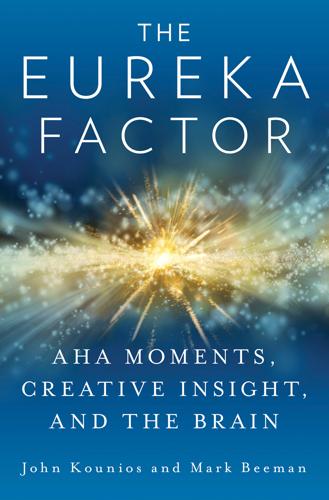
The Eureka Factor
by
John Kounios
Published 14 Apr 2015
For a discussion of innovation policy, see Steve Lohr, “Can Governments Till the Fields of Innovation?,” The New York Times, June 20, 2009. Also see the website of the Institute for Large Scale Innovation, www.largescaleinnovation.com. How Smart Are We? 1 The Flynn effect is summarized in Wikipedia, s.v. “Flynn Effect,” last modified July 27, 2014, en.wikipedia.org/wiki/Flynn_effect. 2 The decline in U.S. creativity test scores is reported in K. H. Kim, “The Creativity Crisis: The Decrease in Creative Thinking Scores on the Torrance Tests of Creative Thinking,” Creativity Research Journal 23 (2011): 285–95. CHAPTER 2: INSIGHT ILLUSTRATED * * * Stepwise 1 A version of the stage model of insight was first explicitly described in G.
…
In all these cases, the average raw score is assigned an IQ of 100 for that period of time. So, even though people’s average raw scores may fluctuate, the average IQ never changes. It’s always 100. About thirty years ago, New Zealand intelligence researcher James Flynn started analyzing changes over time in these raw scores. What he found—now known as the “Flynn effect”—startled the world: Average raw scores have been increasing. The worldwide “new normal” has been getting better and better. We don’t yet know for sure why this is happening, but the numbers don’t lie. People are getting smarter. Aren’t they? Well, sort of. In 1966, psychologist E. Paul Torrance created the Torrance Tests of Creative Thinking (TTCT), a widely used instrument for measuring creative thinking ability rather than the kind of analytical thought measured by IQ tests.
…
Psychologist Kyung-Hee Kim of the College of William and Mary has recently examined changes over time in TTCT raw scores in the United States and concluded that, on average, people seem to be becoming less creative over time. With all our educational and technological advancements, and in spite of our Flynn-effect increases in analytical intelligence, as a society, Americans are apparently becoming less creative. Future research will show whether this drop in creativity scores is global and mirrors the worldwide increase in analytical intelligence. This apparent waning of creativity is alarming because it comes just at a time when creative insight is desperately needed to parse our problems and reveal our opportunities.
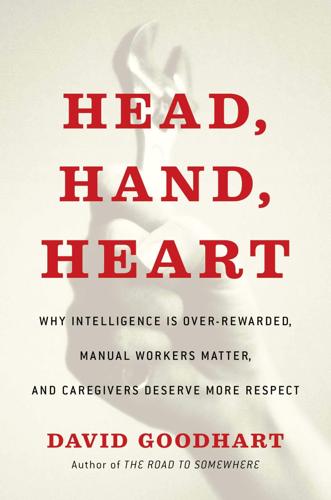
Head, Hand, Heart: Why Intelligence Is Over-Rewarded, Manual Workers Matter, and Caregivers Deserve More Respect
by
David Goodhart
Published 7 Sep 2020
Flynn goes further and argues that modernity itself confers cognitive skills relating to abstraction, symbolic thinking, and classification that our ancestors lacked.8 He showed that across a number of rich countries average IQ was rising at the rate of about 3 points a decade in the twentieth century.9 His original paper showed an increase of 14 points over forty-six years (1932 to 1978) in the United States.10 There is some debate as to whether the Flynn effect has halted or even reversed in recent decades, but no conclusive evidence. The defenders of the innateness and heritability of IQ do not in general deny the reality of the Flynn effect, but they have a simple answer. IQ, they say, is like height: average height has been increasing around the world in recent centuries partly due to improvements in nutrition, but that does not affect differences in height between individuals or the innateness, or high heritability, of height.
…
The end result may be the emergence of a partially hereditary meritocracy, especially in the United States, although a few seem to get there by egregiously playing the system.I Many people, particularly members of the cognitive class themselves, may protest that progress has always been driven forward by the cognitively blessed and that modern, technologically advanced societies simply need more clever people—especially in software and computer science—than ever before. Moreover, they may add, the so-called Flynn effect (named after the New Zealand academic James Flynn) shows that everyone is getting brighter—that average IQ levels have been rising throughout the twentieth century as a result of improved living conditions and human minds adapting to a more demanding cognitive environment.1 They argue that as long as the social biases mentioned above are ironed out, through spending on education and a sustained effort to give people of all backgrounds a fair chance at joining the cognitive class, all will be well.
…
Most such challenges to the standard psychometric analysis of intelligence—James Flynn’s observations about rising IQ scores around the world; Howard Gardner’s theory of multiple intelligences; Daniel Goleman’s notion of emotional intelligence; Robert Sternberg’s concepts of practical, analytical, and creative intelligence; and Carol Dweck’s ideas about mindsets—focus on widening the meaning of intelligence rather than on assaulting the idea of IQ. The “Flynn effect” accepts that IQ tests have some utility but stresses the influence of the environment on test scores both for individuals and whole populations. Those who stress the environmental influence on IQ differences over time or between people often point to improvements to nutrition or health or education.
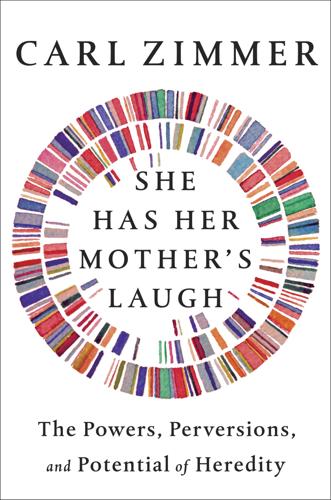
She Has Her Mother's Laugh
by
Carl Zimmer
Published 29 May 2018
If the average score in 2000 was 100, then it would have been 70 in 1900. “We are driven to the absurd conclusion that a majority of our ancestors were mentally retarded,” Flynn wrote in his 2007 book, What Is Intelligence? Yet this trend—now known as the Flynn effect—has been confirmed many times over. As we’ve gotten taller, we’ve gotten smarter. Now the challenge is to figure out what’s driving this increase. As in the case of height, the Flynn effect has been too big and quick to pin on genetic change. For that to be the case, people who scored high on intelligence tests would have to have much bigger families than everyone else to spread their genes, and that hasn’t happened.
…
The global height boom has been brought about in part by better food, sanitation, medicine, and—in some places—greater economic equality. Some of the same factors may be at play in the Flynn effect. Better childhood health and nutrition makes the body grow quickly and the brain develop well. Government regulations have also helped. Feyrer has argued that the push to give people iodine played a part in the worldwide Flynn effect. Exposure to lead can be toxic for the brain, and up until the 1970s, American children were exposed to high levels of lead in paint and gasoline. In 2014, Alan Kaufman, an intelligence expert at Yale, and his colleagues published a study on intelligence tests they gave to hundreds of Americans who were exposed to high lead levels before the 1970s and to hundreds more Americans who were born afterward.
…
This natural experiment takes on greater importance when you consider how much more schooling children get now than in previous centuries. In the United States, the enrollment rate in the early 1900s was 50 percent. By 1960, it reached 90 percent. American students went from an average schooling of 6.5 years to 12. To Flynn himself, the Flynn effect doesn’t mean that people in the nineteenth century were intellectually disabled, nor does it mean that people today have neurons that fire signals to each other in a fundamentally new way. Our forerunners relied on ways of thinking suited to their age. In the early 1900s, intelligence tests included questions like “What do dogs and rabbits have in common?”
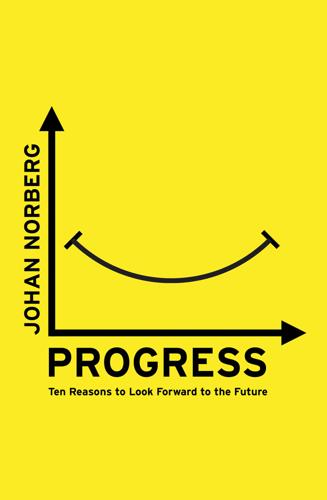
Progress: Ten Reasons to Look Forward to the Future
by
Johan Norberg
Published 31 Aug 2016
And the first arguments for tolerance came from Enlightenment thinkers such as John Locke, who wrote in 1689 that ‘neither Pagan nor Mahometan, nor Jew, ought to be excluded from the civil rights of the commonwealth because of his religion.’4 It is well established in the research on intelligence that humanity is getting better, on average, at abstract problem solving. This is called the Flynn Effect, after its discoverer, James Flynn, and he has illustrated the speed of the change across three generations. When his generation took an IQ test after the Second World War, the average result was 100 points. When his children’s generation did the same test in 1972, the average result was 108. When his grandchildren’s generation took it in 2002, their average result was 118.5 This trend seems to hold true in all cultures that have modernized, improved education and developed mass media.
…
When his grandchildren’s generation took it in 2002, their average result was 118.5 This trend seems to hold true in all cultures that have modernized, improved education and developed mass media. Interestingly, the parts of the IQ tests where we perform better are the most abstract ones, where we discover patterns and solve novel problems. The psychologist and cognitive scientist Steven Pinker has talked about a ‘moral Flynn Effect’, where our increased ability to abstract from the concrete particulars of our immediate experience makes it possible to take in the perspective of others. One example is how Flynn and his brother tried to get their father to give up racial prejudices by using a thought-experiment. They asked him, ‘What if you woke up one morning and discovered your skin had turned black?
…
Washington DC: Freedom House, 2015. 9 Equality 1 Charles Darwin, The Descent of Man, and Selection in Relation to Sex. Princeton, NJ: Princeton University Press, 2008, part 1, p. 100. 2 Pinker 2011, p. 658. 3 Shermer 2015, p. 18. 4 John Locke, A Letter Concerning Toleration. Peterborough, ON: Broadview Press, 2013, p. 85. 5 James R. Flynn, What is Intelligence? Beyond the Flynn Effect. Cambridge: Cambridge University Press, 1st expanded pbk edn, 2009, p. 18f. 6 Pinker 2011, p. 656. 7 Karl Marx and Friedrich Engels, ‘Manifesto of the Communist Party’, in Karl Marx and Friedrich Engels, Basic Writings on Politics and Philosophy. London: Fontana, 1984, p. 52. 8 Benjamin M.

Half the Sky: Turning Oppression Into Opportunity for Women Worldwide
by
Nicholas D. Kristof
and
Sheryl Wudunn
Published 7 Sep 2008
Psychologists have long noted that intelligence as measured by IQ tests has risen sharply over the years, a phenomenon known as the Flynn Effect, after a New Zealand intelligence researcher named James Flynn. The average American IQ, for example, rose by eighteen points from 1947 to 2002. Over thirty years, the IQ of Dutch conscripts rose twenty-one points and those of Spanish schoolchildren by ten points. One scholar estimated that if American children of 1932 had taken an IQ test in 1997, then half of them would have been classified as at least borderline mentally retarded. The cause of the Flynn Effect isn’t fully understood, but it affects primarily those with lower scores, who may not have received adequate nutrition, education, or stimulation.
…
The cause of the Flynn Effect isn’t fully understood, but it affects primarily those with lower scores, who may not have received adequate nutrition, education, or stimulation. Iodine deficiency is a factor in some countries. As people become better nourished and better educated, they perform better on intelligence tests. Thus it’s no surprise that a particularly large Flynn Effect has been detected in developing countries such as Brazil and Kenya. The IQ of rural Kenyan children rose eleven points in just fourteen years, a pace greater than any Flynn Effect reported in the West. Tererai Trent in front of the hut in which she was born, in Zimbabwe (Tererai Trent) Girls in poor countries are particularly undernourished, physically and intellectually. If we educate and feed those girls and give them employment opportunities, then the world as a whole will gain a new infusion of human intelligence—and poor countries will garner citizens and leaders who are better equipped to address those countries’ challenges.
…
Abad, “Generational Changes on the Draw-a-Man Test: A Comparison of Brazilian Urban and Rural Children Tested in 1930, 2002 and 2004,” Journal of Biosocial Science 39, no. 1 (January 2007): 79–89. 240 The IQ of rural Kenyan children: B. Bower, “I.Q. Gains May Reach Rural Kenya’s Kids,” Science News, May 10, 2003; Tamara C. Daley, Shannon E. Whaley, Marian D. Sigman, Michael P. Espinosa, and Charlotte Neumann, “I.Q. on the Rise: The Flynn Effect in Rural Kenyan Children,” Psychological Science 14, no. 3 (May 2003): 215–19. 243 The civil rights and anti–Vietnam War movements: Sidney Tarrow, Power in Movement: Social Movements and Contentious Politics, 2nd ed. (Cambridge, U.K.: Cambridge University Press, 1998), especially p. 204. See also David A.

The Most Good You Can Do: How Effective Altruism Is Changing Ideas About Living Ethically
by
Peter Singer
Published 1 Jan 2015
The average IQ score is still 100, but that is only because IQ test scores are standardized to produce this result. The tests themselves are changed from time to time in order to bring the raw scores closer to the standardized scores. In every major industrialized nation, raw scores have risen by an average of about 3 points per decade. The phenomenon is known as the Flynn effect, after James Flynn, who published papers on it in 1984 and 1987.13 It has been estimated that by today’s standards the average IQ in the United States in 1932 was only 80.14 Several explanations have been put forward for this rise in IQ scores, ranging from better nutrition to a more stimulating environment that requires us to do more thinking.
…
Flynn later proposed that the spread throughout the population of scientific modes of reasoning about problems could contribute to an improvement in reasoning.15 Steven Pinker believes that the improvement in our reasoning abilities may have begun when the development of the printing press spread ideas and information to a much larger proportion of the population. He argues that better reasoning had a positive moral impact too. We became better able to take an impartial stance and detach ourselves from our personal and parochial perspectives. Pinker calls this a “moral Flynn effect.”16 If he is right, this effect could have led more people to the kind of ethical views that are characteristic of effective altruism. Who knows what changes the twenty-first century, with its enormous expansion of personal communications and thus of contacts with others both near and far, will bring to human nature, to our brains, and to our moral sense?
…
Flynn, “The Mean IQ of Americans: Massive Gains 1932 to 1978,” Psychological Bulletin 95 (1984): 29–51; J. R. Flynn, “Massive IQ Gains in 14 Nations: What IQ Tests Really Measure,” Psychological Bulletin 101 (1987): 171–91. 14. U. Neisser, “Rising Scores on Intelligence Tests,” American Scientist 85 (1997): 440–47. 15. James Flynn, What Is Intelligence? Beyond the Flynn Effect (Cambridge: Cambridge University Press, 2009). 16. Steven Pinker, The Better Angels of Our Nature (New York: Penguin, 2011). Chapter 9. Altruism and Happiness 1. http://blog.givewell.org/2013/08/20/excited-altruism/. 2. http://www.givingwhatwecan.org/about-us/history/profile-of-founder (2/20/14). 3.
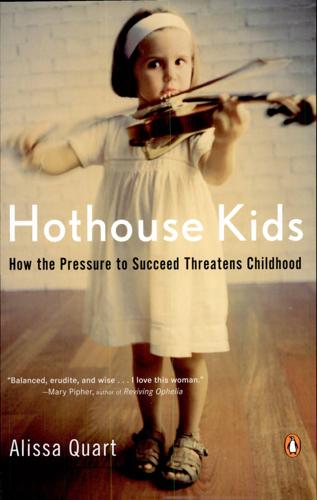
Hothouse Kids: The Dilemma of the Gifted Child
by
Alissa Quart
Published 16 Aug 2006
But neither dozens of years of testing thousands of children nor the tragic fates of two children she had championed seemed to have dampened Silverman’s enthusiasm for IQ testing, and for extreme giftedness more generally. In both tone and content, many of Silverman’s discussions of the phenomena of giftedness are imbued with a New Age sense of awe and mystery. She talks about the Flynn effect, which notes a rise in average IQs worldwide at a rate of 3 points every ten years in developed countries, and the apparent increase in the numbers of extremely gifted children. “There’s no logical explanation for the fact that these kids are growing and multiplying,” she told me passionately.
…
Norming means that a child’s test score will be be assessed by comparing scores to others in the current population—in the case of the L-M, a child’s test scores are being compared to a more-than-thirty-year-old test group’s scores. Because the L-M has not been renormed for so many years, its scores are even more susceptible to the Flynn effect than the scores obtained by the Stanford-Binet 4. Indeed, some testers call the L-M a “fetish object” because it lets kids get jaw-droppingly high scores: the brightest young things can score 240 and higher. On the flip side, the L-M is, in places, laughably antiquated: it still pins a mental age on its takers, a practice that was seen as offensive to the mentally handicapped and has been abolished by other tests, which have replaced mental age with standard deviations.
…
See classes for infants and toddlers; gifted education ERB (Educational Records Bureau) test Erector sets Ericsson, Anders Erikson, Erik Evan Thomas Institute, Institutes for the Achievement of Human Potential (IAHP) experience-dependent and experience-expectant brain functions extreme parenting aggressiveness and competitiveness conferences and activities developmental stake in child’s future “helicopter parents,” homeschooling idealization of children, perception of childhood negative aspects and dangers of rejection of giftedness competition restraint in and self-perception of parents and sensitivity of gifted children FairTest Farrell, Tom Father and Son (Gosse) Fedoruk, Dennis Feldman, David Henry Fenton, Michael Fenton, Susan fetal enrichment auditory overstimulation risk supplements for Fine, Gary Alan Fineberg, Jonathan Fisher-Price Flynn effect in intelligence testing Forensics Tournament, Harvard National High School Invitational formulas, mind-enhancing Foster, Joanne Foster, Karen Francis, Clark Frankenstein (Shelley) Freud, Sigmund Fry, Roger games. See toys and games, educational Garcia, W. Joseph Gardner, Howard gender bias in math and science domains Genetic Studies of Genius (Terman) Genius and Stupidity (Terman) Genius Denied (Davidson and Davidson) gifted children harmful effects of enrichment for Indigo Child hypothesis IQ test scores defining meaning of “gifted,” narrow concept of giftedness sensitivity of success and happiness in adulthood See also specific issues Gifted Children (Winner) gifted education acceleration as alternative to antecedents for Cold War and criticism of desire for specialness discovery of gifted children dropout rate funding and teacher training for homeschooling initiatives to expand IQ score for mainstreaming of gifted children No Child Left Behind (NCLB) Act and in public schools resentment toward stress of testing for support for and value of gifted education (cont.) techniques See also classes for infants and toddlers gifted parent community.
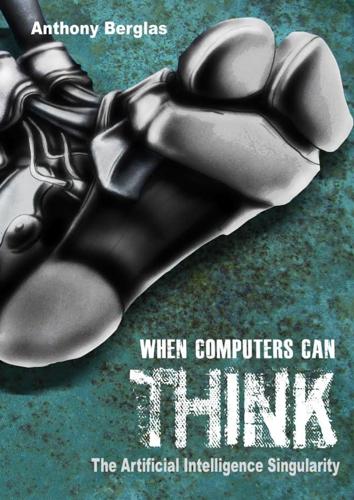
When Computers Can Think: The Artificial Intelligence Singularity
by
Anthony Berglas
,
William Black
,
Samantha Thalind
,
Max Scratchmann
and
Michelle Estes
Published 28 Feb 2015
The answer to life, the universe, and everything 1. You're really not going to like it 2. Galileo and Newton 3. Alfred Wallace 4. Evolution through natural selection 5. Creationists should reject natural selection 6. God 7. History of evolutionary thought 8. Hurdles for natural selection 9. Age of the Earth 10. Memes and genes 11. Flynn effect 12. The cooperation game 13. Human condition 14. Selecting civilized behaviour 15. Sociobiology, evolutionary psychology and ethics 5. The AGI Condition 1. Mind and body 2. Teleporting printer 3. Immortality 4. Components vs genes 5. Changing mind 6. Individuality 7. Populations vs. individuals 8.
…
It is only the top 20% most intelligent people that can become effective research scientists, and maybe just the top 0.1% could work effectively on this problem. But that is still a lot of people, and most of them now have access to higher education. Human intelligence also appears to have risen substantially over the last century, which is known as the Flynn effect. Better diet, education, and just more time spent thinking about problems seems to have had a remarkable effect. If we do need to wait for more people as insightful as Alan Turing or Kurt Gödel the wait may not be long. The only way to definitively discount these arguments is to actually build an AGI.
…
One detour on the path to intelligent machines might be to enhance human intelligence so as to be able to build the machine. This has already happened to some extent, with better education, diet and environment producing a substantial increase in human intelligence over the last sixty years, known as the Flynn effect. This could be greatly extended in the future through pharmaceutical enhancement or very contentious selective breeding and gene splicing on human embryos. However humans appear to be sufficiently intelligent already, and so it seems unlikely that any such detour is necessary, although it might be helpful.
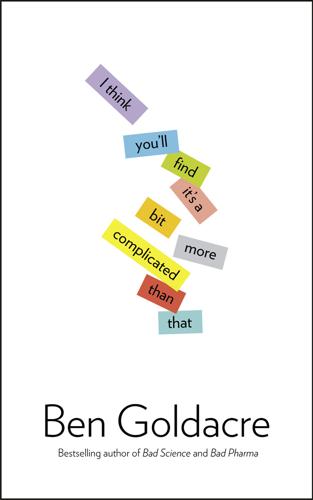
I Think You'll Find It's a Bit More Complicated Than That
by
Ben Goldacre
Published 22 Oct 2014
ijkey=7e44681dab39ded34d438b6638e77eebc54cda3e& keytype2=tf_ipsecsha Price and colleagues: http://dx.doi.org/10.1016/0168-1591%2884%2990054-6 Kerruish reported: http://dx.doi.org/10.1016/S0950-5601%2855%2980049-4 Kilgallon and Simmons: http://www.ncbi.nlm.nih.gov/pmc/articles/PMC1617155/ Zbinden and colleagues: http://beheco.oxfordjournals.org/content/15/1/137.full Yamamoto and colleagues: http://onlinelibrary.wiley.com/doi/10.1111/j.1439-0272.2000.tb02877.x/abstract impossible to ejaculate: http://humrep.oxfordjournals.org/content/19/9/2088.abstract The Power of Ideas Atheist’s Guide to Christmas: http://www.amazon.co.uk/gp/product/0007322615?ie=UTF8&ref_=sr_1_1&s=books&qid=1260957597&sr=1-1&linkCode=shr&camp=3194&creative=21330&tag=bs0b-21 ‘Exams Are Getting Easier’ ‘Exams are Getting Easier’: http://www.badscience.net/2010/08/exams-are-getting-easier/ ‘The Flynn Effect’: http://en.wikipedia.org/wiki/Flynn_effect ‘The Five Decade Challenge’: http://www.rsc.org/images/ExamReport_tcm18-139067.pdf study of just this: http://www.ons.gov.uk/about-statistics/ukcemga/work-areas/justice--education-and-children/changes-in-standards-at-gcse-and-a-level.doc ‘Measuring the Mathematics Problem’: http://www.engc.org.uk/ecukdocuments/internet/document library/Measuring the Mathematic Problems.pdf Over There!
…
This week, every newspaper in the country was filled with people asserting that exams are definitely getting easier, and other people asserting that exams are definitely not getting easier. The question is always simple: how do you know? Firstly, the idea of kids getting cleverer is not ludicrous. ‘The Flynn Effect’ is a term coined to describe the gradual improvement in IQ scores. This has been an important problem for IQ researchers, since IQ tests are peer referenced: that is, your performance is compared against everyone else, and the scores are rejigged so that the average IQ is always 100. Because of the trend to higher scores, year on year, you have to be careful not to use older tests on current populations, or their scores come out spuriously high, by the standards of the weaker average population of the past.
…
Because of the trend to higher scores, year on year, you have to be careful not to use older tests on current populations, or their scores come out spuriously high, by the standards of the weaker average population of the past. Regardless of what you think about IQ tests, the tasks in them are at least relatively consistent. That said, there’s also some evidence that the Flynn effect has slowed in developed countries recently. But ideally, we want research that addresses exams directly. One approach would be to measure current kids’ performance on the exams of the past. This is what the Royal Society of Chemistry did in its report ‘The Five Decade Challenge’ in 2008, running the project as a competition for sixteen-year-olds, which netted them 1,300 self-selecting higher-ability kids.
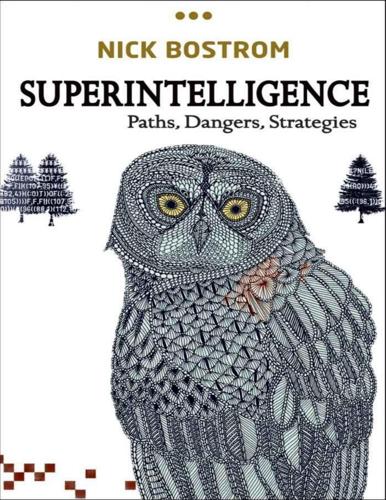
Superintelligence: Paths, Dangers, Strategies
by
Nick Bostrom
Published 3 Jun 2014
In the past half-century, at least one scenario has been widely recognized in which the existing world order would come to an end in the course of minutes or hours: global thermonuclear war. 3. This would be consistent with the observation that the Flynn effect—the secular increase in measured IQ scores within most populations at a rate of some 3 IQ points per decade over the past 60 years or so—appears to have ceased or even reversed in recent years in some highly developed countries such as the United Kingdom, Denmark, and Norway (Teasdale and Owen 2008; Sundet et al. 2004). The cause of the Flynn effect in the past—and whether and to what extent it represents any genuine gain in general intelligence or merely improved skill at solving IQ test-style puzzles—has been the subject of wide debate and is still not known.
…
The cause of the Flynn effect in the past—and whether and to what extent it represents any genuine gain in general intelligence or merely improved skill at solving IQ test-style puzzles—has been the subject of wide debate and is still not known. Even if the Flynn effect (at least partially) reflects real cognitive gains, and even if the effect is now diminishing or even reversing, this does not prove that we have yet hit diminishing returns in whatever underlying cause was responsible for the observed Flynn effect in the past. The decline or reversal could instead be due to some independent detrimental factor that would otherwise have produced an even bigger observed decline. 4. Bostrom and Roache (2011). 5. Somatic gene therapy could eliminate the maturational lag, but is technically much more challenging than germline interventions and has a lower ultimate potential. 6.
…
“The End of the Flynn Effect? A Study of Secular Trends in Mean Intelligence Scores of Norwegian Conscripts During Half a Century.” Intelligence 32 (4): 349–62. Sutton, Richard S., and Barto, Andrew G. 1998. Reinforcement Learning: An Introduction. Adaptive Computation and Machine Learning. Cambridge, MA: MIT Press. Talukdar, D., Sudhir, K., and Ainslie, A. 2002. “Investigating New Product Diffusion Across Products and Countries.” Marketing Science 21 (1): 97–114. Teasdale, Thomas W., and Owen, David R. 2008. “Secular Declines in Cognitive Test Scores: A Reversal of the Flynn Effect.” Intelligence 36 (2): 121–6.
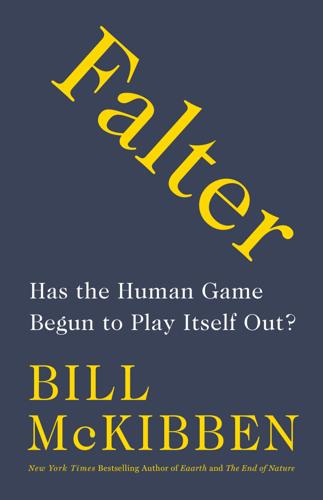
Falter: Has the Human Game Begun to Play Itself Out?
by
Bill McKibben
Published 15 Apr 2019
he asked with trademark perkiness. “Amazingly, the answer is yes. IQ scores have been rising for more than a century in every part of the world, at a rate of about 3 IQ points per decade.” This Flynn effect (named for its discoverer) provided what Pinker called a “tailwind in life,” “a gateway to compassion and ethics.”9 So that makes it tough to read the new data that emerged in 2018 showing the Flynn effect now running in reverse, with IQ “hitting its peak for people born in the 1970s and significantly declining ever since.” A review of seven hundred thousand IQ records in Norway showed that IQs were now dropping by seven points per generation, and the same kind of declines were seen in the six other nations studied.
…
Shaun Chamberlin, Surviving the Future: Culture, Carnival, and Capital in the Aftermath of the Market Economy (White River Junction, VT: Chelsea Green Publishing, 2016), p. 27. 7. Clint Carter, “We Will Not Get Bigger, We Will Not Get Faster,” medium.com, July 26, 2018. 8. Adrien Marck et al., “Are We Reaching the Limits of Homo Sapiens,” Frontiers in Physiology, October 24, 2017. 9. Richard Price, “Stephen Pinker’s Enlightenment Now: the Flynn Effect,” richardprice.io, April 6, 2018. 10. Rory Smith, “IQ Scores Are Falling and Have Been for Decades, New Study Finds,” CNN.com, June 14, 2018. 11. Adrien Marck et al., “Are We Reaching the Limits of Homo sapiens?” Frontiers in Physiology, frontiersin.org, October 24, 2017. 12. Steven Pinker, “The Moral Imperative for Bioethics,” Boston Globe, July 31, 2015. 13.
…
No (submarine) Dropbox drought Duchenne muscular dystrophy Dune Vulnerability Team (DVT) Dust Bowl Duterte, Rodrigo Dyson, Freeman Eagle Glacier Earth crust of degradation of habitability of hydrology of finite nature of great disruptions in Earth Day earthquakes Easter Island Ebell, Myron Ebola Economics of Smoking, The (Tollison and Wagner) Economist ecosystem services Eden Edison, Thomas efficiency Egypt elections 2010 2012 2016 2018 electricity, new access El Niño Emerson, Ralph Waldo employment Endangered Species Act End of Nature, The (McKibben) Ends of the World, The (Brannen) “Energy and Man” (API symposium) Energy Department energy efficiency energy poverty Enlightenment Now (Pinker) Enough (McKibben) environmentalism Environmental Protection Agency (EPA) environmental regulation Environmental Research Equal Employment Opportunity Commission (EEOC) Erdogan, Recep Tayyip erythropoietin (EPO) Esso Atlantic (oil tanker) estuaries ethics Ettinger, Robert Europe evolution experience sampling Extinction Rebellion Exxon Facebook facial recognition software Falcon 9 rocket famine Farmerline Fate of the Earth, The (Schell) Fauci, Anthony Federalist Society Federal Reserve feedback loops fertilizer fiberglass net Finding Nemo (film) Finland fires First Amendment fish Fisher Body floods Florida flow Flynn effect Food and Drug Administration (FDA) food supply Forbes Ford, Gerald forests Forest Service Fort McMurray, Canada Fortune 500 CEOs fossil fuels. See also oil and gas industry; and specific types climate change research and divestment and federal subsidies and fossil record Fossouo, Max-Marc Fountainhead, The (Rand) Fox News fracking Francis, Pope Freedom Partners Investment Freud, Sigmund Friedan, Betty Friend, Tad Frontiers of Freedom Fukushima reactors “Future Does Not Need Us, The” (Joy) Future of Humanity Institute Gagarin, Yuri Gaia theory Gallagher, Nora Gandhi, Mohandas GDP, global gene drives gene editing GenePeeks General Agreement on Tariffs and Trade (GATT) gene therapy or repair genetically modified (GMO) food genetic engineering choice and danger of germline, heritable regulation and somatic space travel and genetic testing GenRich class Germany Ghana Gilgamesh glaciers Global Climate Coalition (GCC) Global Seed Vault Gmail Go goldenrod Goldman Sachs Goodall, Jane Goodell, Jeff Google Google Earth Gore, Al government antigovernment ideology and public choice theory and regulation and Grain Belt Great Barrier Reef Great Barrier Reef Legacy Great Society Greece Green Bay Packers greenhouse effect.
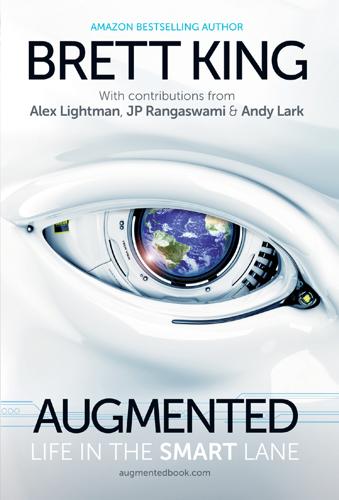
Augmented: Life in the Smart Lane
by
Brett King
Published 5 May 2016
In some sense, with Google and other search engines, we can offload some of our memory demands onto machines.” In a broader sense, the overall IQ of humans has been climbing over the last century or so. The Flynn Effect is a well-known long-term study on IQ studies and examinations. It looks at the substantial and long-sustained increase in both fluid and crystallised intelligence test scores measured in many parts of the world from roughly 1930 to the present day. While rates vary, the improvements in IQ globally have been remarkably consistent. The Flynn Effect is attributed to a range of possible influences including better schooling, familiarity with testing, more stimulating environments, better nutrition, reduction in infectious diseases and more genetic diversity as populations have migrated due to better transportation systems, etc.
…
The Flynn Effect is attributed to a range of possible influences including better schooling, familiarity with testing, more stimulating environments, better nutrition, reduction in infectious diseases and more genetic diversity as populations have migrated due to better transportation systems, etc. Having said that, recent testing may be showing that the Flynn Effect is flattening. Is Google dumbing us down? Figure 6.14: The Flynn Effect, or the world’s increasing IQ The pursuit of intelligence is clearly an overall human mission. The very knowledge base we have today means that we are clearly more intelligent, are better at problem solving and abstract reasoning and have access to better information than the average populace 100 years ago, and most certainly 1,000 years ago.
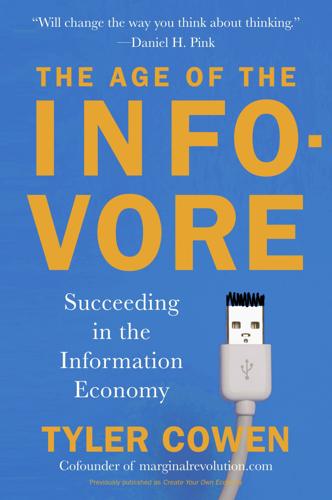
The Age of the Infovore: Succeeding in the Information Economy
by
Tyler Cowen
Published 25 May 2010
On radio ads and YouTube, see Seth Godin, Meatball Sundae: Is Your Marketing Out of Sync? (New York: Portfolio, 2007), pp. 96–100. The web page with information about short bits is called “Short Is In”: kk.org/ct2/2008/03/short-is-in.php. On the top websites, see www.alexa.com/site/ds/top_500. On the Flynn Effect, see for instance James T. Flynn, What Is Intelligence? Beyond the Flynn Effect (Cambridge, UK: Cambridge University Press, 2007). For the essay by Mark Bittman, see “I Need a Virtual Break. No, Really,” New York Times, March 2, 2008. On the notion of filter failure, see “Interview with Clay Shirky, Part I,” Columbia Journalism Review, December 19, 2008, www.cjr.org/overload/interview_with_clay_shirky_par.php, as well as Shirky’s work more generally.
…
It is very often a dominant method of (interior) production and of course that is why it is so popular. The emotional power of our personal blends is potent, and they make work, and learning, a lot more fun. Multitasking is, in part, a strategy to keep ourselves interested. If you look at measured IQ scores, they are rising over time, with each generation, in a phenomenon known as the Flynn Effect. There is no particular reason to believe that multitasking is driving this phenomenon but this does belie the common impression that people are getting more stupid or less attentive over time. Contrary to a lot of the complaints you might hear, a harried, multitasking society seems perfectly compatible with lots of innovation, lots of high achievers, and lots of high IQ scores.
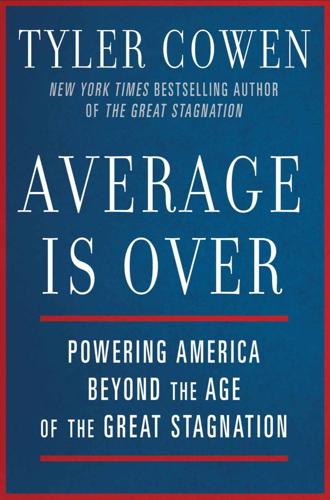
Average Is Over: Powering America Beyond the Age of the Great Stagnation
by
Tyler Cowen
Published 11 Sep 2013
It’s revolutionized our understanding of the game. What else will machine intelligence revolutionize? There is a broader literature on the possibility of progress in general intelligence and not just among chess players. Average IQ scores have been rising for decades by about three points per decade, a phenomenon known as the “Flynn Effect.” Of course it’s not clear how much people, over time, have higher levels of general intelligence, and how much they are just getting better at taking the tests, but so what? Getting better at taking tests is still a form of cognitive improvement. (Most researchers in the area do in fact think that real intelligence performance is rising to some extent.)
…
See healthcare domestic oil production, 177 domestic productivity, 169 Dorn, David, 164 Dreber, Anna, 106 driverless automobiles, 8 drone aircraft, 20–21 Duflo, Esther, 222 Dumaine, Erika, 62 Duncan, Arne, 57 dystopian visions, 135 “Economic Growth Given Machine Intelligence” (Hanson), 135–36 economics behavioral economics, 75–76, 99, 105, 110, 149, 227 and “Big Data,” 221–22 changing emphasis in research, 221–28 computational economics, 222 development economics, 226 economic crises, 50–51, 53, 55, 232 and incentive for innovation, 138 Keynesian, 53–54, 56, 226 macroeconomics, 9, 166, 211–12, 226 microeconomics, 212, 225 and online education, 180 economies of scale, 184 Economou, Rona, 61 education and the changing labor market, 37, 168–69 chess as model for, 185–88, 191–92, 202–3 educational standards, 90 in El Paso, 246 Emporium model, 183–84 and face-to-face instruction, 194–202 and foreign competition, 176 and gaming, 185–88 and geographic trends, 171–72 and income polarization, 4 new higher education models, 188–94 online education, 179–85 and the social contract, 231 and “tutor kings,” 200–201 and wage trends, 40–41 egalitarianism, 189–90 eHarmony, 95 Einstein, Albert, 126, 211, 213, 215 El Paso, Texas, 245–46 elderly population, 51–52, 236–37, 258 elections, 10–11, 234–35 electronic shopping, 27 The Elegant Universe (Greene), 212–13 empiricism, 225–26 employer-provided healthcare, 237–38 Emporium education model, 183–84 endowment effect, 99–100 energy costs, 177 Eng, Richard, 200 engineering, 26 English boarding schools, 199 entertainment industry, 22 epigenetics, 212 Equifax, 125 Euclid, 216–17 Europe, 173–75 evolution of machines, 150–51 exclusivity, 36, 95–96, 192–94 expert testimony, 129 “Face time,” 146 Facebook, 26, 209–10, 221, 257 face-to-face education, 194–202 factor price equalization, 163 factories, 92 Fair Isaac Corporation, 124 Felin, Teppo, 139 Feller, Sébastien, 147 FICO scores, 124 financial crisis, 50–51, 53, 55 financial sector, 25, 41, 128–29, 129–30 fiscal crunch, 231–51 Fischer, Bobby, 101, 108, 188 fixed employment costs, 113 Florida, 8, 237, 241, 251–52 Florida, Richard, 256 “Flynn Effect,” 107–8 Foer, Joshua, 152 food prices, 246, 248 Ford, Martin, 6 foreign competition, 161–63, 163–71, 175–77 Foxconn, 7–8 “fracking,” 177 France, 39 Franchise (Asimov), 10–11 Franklin, Benjamin, 148 free trade, 166, 176 freelancing, 59–63 Freestyle chess compared to traditional chess, 77–83 and computer simulations, 227–28 and decision-making models, 129 described, 77–83 impact on human play, 83–86 masters of, 86–87 origin of, 46–47 and other man-machine collaborations, 86–89, 89–93 and risk-taking behavior, 75–76 and self-education, 202–3 spectator interest in, 156–57 Friendster, 209 Fritz (chess program), 68, 78, 109, 114 futurism, 6, 134 “g factor” (general intelligence), 42–44 game theory, 222 Gates, Bill, 25 Gattaca (1997), 13 Gelfand, Boris, 156 gender issues and changing worker profiles, 30–31 and chess, 106, 108 and labor force trends, 51 and wage trends, 52–53 and wealth inequality, 249 General Electric, 38, 87 general relativity theory, 211 “Generation Limbo,” 62 genetics, 17, 211–12 geographic trends, 171–75 Gerdes, Christer, 106 Germany, 39, 173–74 Global Hawk surveillance drones, 20–21 globalization, 10 Go (game), 135 Gobet, Fernand, 76 Google and availability of knowledge, 7 and “Big Data,” 221 and driverless cars, 8 and the labor market, 26, 27, 34–36 and medical diagnosis, 89 and memory, 151–52, 154 and online marketing, 22 and public trust, 217 and regulatory issues, 17 government budgets and spending, 175, 176, 198, 231–51 GPS technology, 7, 14–15, 113–15, 116–17 “Grand Unified Theories,” 212 Gränsmark, Patrik, 106 Great Recession (2008–2009), 54–59 “great stagnation,” 5 Greek symposia, 197 Greene, Brian, 212–13 Grischuk, Alexander, 109 Hanson, Gordon H., 164 Hanson, Robin, 135–36 Harvard University, 192–94, 201 Hauchard, Arnaud, 147 Hayek, Friedrich, 215 healthcare costs of, 59, 60, 113 employer-provided, 59, 113, 237–38 and the fiscal crunch, 232, 234–39, 242, 249–50 and the labor market, 31, 238 and mandates, 237–38 and physician rating systems, 124–25 and protectionism, 176 and rationing, 249–50 and regulatory issues, 16–17 and wealth inequality, 243–44 hermeticism, 153 Hernandez, Nelson, 78–79, 86, 157, 203 Higgs boson, 212 higher education, 168, 188–94, 194–202 hiring costs, 36, 59, 60 Hirschberg, Julia, 12–13 Hitt, Lorin M., 33 Hlatshwayo, Sandile, 176 Hong Kong, 200–201 Houdini (chess program), 68 household incomes, 38 housing costs, 53, 55, 63, 239–40, 244–45 human judgment and error, 102–3, 104, 131 human-machine interface, 91–92 Hydra (chess program), 69 IBM, 7, 47 imitation, 141, 144.
…
See also Turing test immigration and the fiscal crunch, 239–41 and geographic trends, 174 and outsourcing, 163–71 and wage trends, 162–63 impresario model of teaching, 196–97 imprisonment rates, 52 income inequality and income polarization, 242–44 and marketing, 23–25 and political trends, 253, 257 regional, 172–73 and the social contract, 229–31 See also wealth inequality India and chess players, 108, 189, 195 and demographic trends, 230 and labor competition, 5, 163–64, 167 and scientific specialization, 216 Industrial Revolution, 20, 208 inflation, 3, 38 information processing, 142 information revolution, 58 information technology (IT), 90–91, 162 innovation, 85, 138, 184, 215 Institute for Simulation and Training, 200 integrity of employers, 36 intellectual class, 258 intellectual property, 20 intelligence, human and the changing labor market, 42–44 and the “Flynn Effect,” 107–8 IQ scores, 107–8, 127, 201 interest rates, 232 international trade, 163–71 internet and AI-targeted marketing, 24 internet companies, 25, 221 internet publishing, 27 and marketing, 22 and wage trends, 172–73 See also specific companies intuition and chess, 68–70, 72, 97, 99, 101, 105–6, 109–10, 114–15 and complexity of scientific theory, 205–6, 211–12 and computer calculations, 135 and computer searching, 155 and economic theory, 221–22, 227 and GPS technology, 114 and human error, 105 human reliance on, 109–10 impact of computers on, 155 and machine science, 218 and microeconomics, 225 and predicting the future, 6 and romance, 95, 97 and scientific advance, 206 and the social sciences, 223 invention, 208 investment, 243 iPads, 28, 81–82, 152, 166–67, 180 iPhones and chess programs, 48, 148–49 and daily decision making, 72, 73 and the global marketplace, 4 and human machine interface, 92 and lie detection, 13 and marketing, 21 and technological advance, 211 and voice recognition, 7 IQ scores, 107–8, 127, 201 Israel, 168 Italy, 174–75 Jacksonville, Florida, 241 Jaimovich, Nir, 55 Japan, 39 Jennings, Ken, 7, 157 Jeopardy!
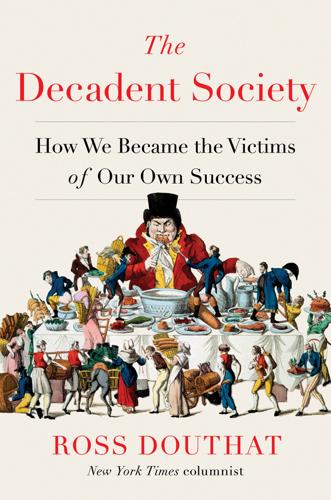
The Decadent Society: How We Became the Victims of Our Own Success
by
Ross Douthat
Published 25 Feb 2020
Any future improvement is likely to be a grinding process, constrained not only by policy failures and socioeconomic stratification but also by innate human capacities. And even as credentialism advances, there is some evidence that the Western world is slipping backward on more fundamental measures such as literacy rates and IQ. The famous Flynn effect, in which IQ scores increase generation after generation, has stalled out in parts of northern Europe. In the United States, literacy rates for white students peaked in the 1970s and have slipped since. Fourth are the constraints imposed by the environment. The growth that America achieved in the eighteenth and nineteenth centuries by taming a wilderness and putting fallow land to use is never going to be repeated.
…
“dangerous” categorization of, 141–42 see also pink police state Civil Rights Act (1964), 77 Civil War, US, likelihood of second, 133–34 class war, 173 climate change, 35, 202, 219, 221 catastrophic, 192, 195–97, 200 as consequence of dynamism, 179–80 disproportionate effects in global south of, 174–75, 202 mass migration and, 196–97 sustainable decadence and, 173–75 Clinton, Bill, 71, 77 Closing of the American Mind, The (Bloom), 97 Coates, Ta-Nehisi, 97 Cold War, 181 colleges and universities: civil liberties and, 141–43 conflicting missions of, 142 cultural repetition in, 97–98 sex bureaucracy in, 142–43 Communism, fall of, 103, 112, 114, 162–63 Communist Manifesto, The (Marx and Engels), 219 Communist Party, Chinese, 139 communitarianism, religious, 216 communities, virtuous, 215–17 Confessions of a Born-Again Pagan (Kronman), 224 Congo, Civil War in, 199 Congress, US: abdication of policy making by, 75–76, 194 polarization of, 194 conservatives, conservatism, 206 apocalyptic thinking among, 98 birthrate and, 53 in congressional abdication of policy making, 75–76 cultural repetition and, 97–98 decadence of, 203 nostalgia of, 100 sclerosis as viewed by, 72–76 see also right Constitution, US, as not designed to cope with ideological polarization, 78 convergence, of Western and non-Western decadence, 165–69, 173 Coppola, Francis Ford, 95 Corbyn, Jeremy, 114 corporations, dearth of investment and innovation by, 26 Cortés, Hernán, 189, 190 cosmopolitanism, 206, 217, 218 counterculture, 2 Counter-Reformation, 222, 230 Cowen, Tyler, 12, 28, 33–34, 35, 45, 46 Crash of 1929, 194 credentialism, 35 crime rates, decrease in, 150 Crouchback, Guy (char.), 183 Crowley, Aleister, 231 Cuarón, Alfonso, 65–66 Culture of Narcissism, The (Lasch), 96 culture, repetition in, see repetition culture wars, 97–98 cummings, e. e., vii Days of Rage protests, 129 deBoer, Freddie, 145–46, 149 debt, national, 70 ratio of GDP to, 192, 193 debt, overhang of, 34 decadence, 10 aesthetic definition of, 6–7 author’s definition of, 8–10, 239 Barzun on, 8, 12, 69, 91, 96, 100, 113, 135, 172, 184 birthrate and, see birthrates, decline in convergence of, in West and non-Western world, 165–69, 173 economic, see stagnation, economic as ending in dystopia, 184–85 end of, see decadence, deaths of EU as case study in, 82–86 hope for renewal as possible under, 179 institutions and, 69 Islamic world and, 159 moral definition of, 7 and need for a Messiah, 237–39 opposition to, political and social risks of, 178–80, 182–83 policy limits imposed by, 87 political sclerosis as, see sclerosis, political possible inevitability of, 234–36, 240 repetition as, see repetition seductiveness of, 217 use of term, 6–7 decadence, deaths of, 115, 187–240 catastrophe as, see catastrophe divine intervention scenario for, 239–40 neo-medieval scenario for, 200–203 renaissance scenario for, see renaissance space travel scenario for, 236, 239–40 decadence, sustainable, 115, 117–85, 240 arguments in favor of, 177–85 authoritarian systems in, 137–54; see also pink police state benefits of, 180–82 climate change and, 173–75 comfortable numbness in, 119–36 as contradiction in terms, 179 dystopian elements of, 184–85 management of, 181–83 meritocracy in, 169–73 politics and, 129–36 pornography and, 119–22 prescription drugs and, 126–28 virtual entertainments and, 122–26, 128–29 Deep Throat (film), 119 Defense Department, US, UFO videos released by, 233–34 deficit, investment constrained by, 34 deficit spending, 192–93 DeLong, Brad, 192 Democracy in Europe Movement 2025 (DiEM25), 219 democratic norms, 68–69, 78, 163 Democrats, Democratic Party: 1960s–70s reform in, 77 Senate controlled by, 67 demographic change, weight of, 34, 56–58 religious renewal and, 222–23 stagnation and, 57 see also aging populations Deneen, Patrick, 215–17 Deng Xiaoping, 140 depression, among teenagers, 123 deregulation, 24 despair, declining birthrate and, 61–62 developed world: aging populations of, 34, 56–58, 60, 66 limits to growth in, 32–36 shrinking family size in, 59–60 developing world, emergence of decadence in, 165–69, 173 Didion, Joan, 110, 131 Discovery (space shuttle), 37 disease, spread of, 190–91 Disneyland, 37 dissent, marginalization of, 151–52 divine intervention, as scenario for end of decadence, 239–40 divorce rate, 51, 55 Dobson, James, 119, 120 “Dope Show, The” (music video), 140–41 dot-com bubble, 24 Douthat family, 59–60 Dreamland (Quinones), 127 drone warfare, 150 drugs, prescription: antidepressant, 126 increased use of, 126 opioid epidemic and, 126–27 social upheaval repressed by, 126–27 Dune (Herbert), 229 Dunham, Lena, 95 Durant, Will, 189, 202 Dworkin, Andrea, 120 Dylan, Bob, 110 dynamism, 25, 46, 58, 110 dangers of, 179–80 immigration and, 62, 64 nostalgia for, 206 Dyson, Freeman, 6 dystopias, 3, 47–50, 65–66, 94, 95, 122, 128, 144, 155–56, 179 economic catastrophe, 191–95, 200 economic stagnation, see stagnation, economic economy, declining birthrate and, 56–58 economy, US, deceleration of, 24 education: constraints on, 34–35 productivity and, 34–35 Ehrenreich, Barbara, 224 Ehrlich, Paul, 43 Eisenhower-era America, 2 elections, US: of 2008, 67 of 2016, 162, 182 Emanuel, Rahm, 67 Encyclopædia Britannica, 107 End of History and the Last Man, The (Fukuyama), 112–13 energy revolution, 210 Engels, Friedrich, 219 Enlightenment Now (Pinker), 165 entertainment, politics as, 153–54 entrepreneurship, declining rate of, 25–26 environment: constraints imposed by, 35 see also climate change Erdog˘an, Recep Tayyip, 163 Eurafrica, 198–200, 206–10, 218, 228–29 Christianity revitalized by, 207–8 euro, 82 destructive consequences of, 83–85 Europe, 197 aging population of, 198 economic stagnation in, 25 far right in, 85, 155, 162 left’s scenario for renaissance of, 219 mass migration to, 197–99, 200 nationalism in, 85, 172–73, 218 pink police state in, 143–44 populist resurgence in, 85 US economy vs., 166 US governmental system vs., 82, 83 European Union, 172–73, 217, 219 birthrate in, 50 centralization of authority in, 83, 84–85 financial crisis in, 84, 192 Muslim refugees in, 160 possible collapse of, 194 public distrust of government in, 83 sclerosis in, 82–86 unrealistic assumptions of, 82–83 Euro Tragedy: A Drama in Nine Acts (Mody), 84 evangelical Protestantism, 53, 101, 119, 222 Everlasting Man, The (Chesterton), 238–39 exhaustion, cultural and intellectual, decadence as, 9 expansionism, 3–4 environmental and social cost of, 5–6 exploration: abandonment of, 5–6 ideology of, 3–4, 231–32 Fake News, 153 families, shrinking of, 58–62 far left, 172, 194 far right, 134, 193, 194, 227 in Europe, 85, 155, 162 fascism, 112, 160, 194 feminism, 47, 51, 53, 54, 90, 97, 108, 120, 121, 156, 227 fiction, literary, declining sales of, 91 Fight Club (film), 113, 185 filibuster, 78 finance industry, see Wall Street financial crisis of 2008, 11, 69, 80, 84, 137, 192 Finland: decline of sexual relations in, 55 declining birthrate in, 52–53 Fire Next Time, The (Baldwin), 97 Flynn effect, 35 Flynt, Larry, 120 food production, climate change and, 195–96 Ford, John, 110 Foreign Policy, 133 Fox News, 77 France, 32 immigrants in, 64 pronatalist policies of, 52 protest movements in, 171, 172 Francis, Pope, 103 Freedom Time: Negritude, Decolonization, and the Future of the World (Wilder), 208 free-market policies, 25 free trade, 24, 28, 29 French Revolution, 206 From Dawn to Decadence (Barzun), 8 frontier: closing of, 5, 135 New, 181 space as, 2, 6, 231–32; see also Apollo moon program Turner on importance of, 3–4 Fukuyama, Francis, 12, 83, 112–13, 115, 135, 159 Fyre Festival, 17–18, 21 Game of Thrones (TV show), 95, 96 Garland, Merrick, 78 gay rights, revolution in, 99 gender, wage gap and, 99 genetic engineering, 11, 43, 211, 229, 230 Germany, 192 immigrants in, 64, 85 Germany, Nazi, 225 Germany, Weimar, 129, 131 Gersen, Jacob, 142 Gharbi, Musa al-, 97 Gibson, Mel, 189–90, 202 gig economy, decline of traditional freelancing in, 27 gilets-jaunes, 171 Gingrich, Newt, 77 globalism, 218 global South: climate change and, 174–75, 202 mass migration from, 208 global warming, see climate change God and Man at Yale (Buckley), 97 Goebbels, Joseph, 132 Gordon, Robert, 12, 33, 34, 35, 40–41, 46 government: informal norms of, 78 policy failures of, 71 public distrust of, 75 public expectation of action by, 74–75 uncontrolled sprawl of, 72, 76 Government’s End (Rauch), 72 Graeber, David, 12, 38, 40, 41 Gramsci, Antonio, vii Grantland, 93–94 Great Awakening, 103, 222, 228 Great Britain: Brexit in, see Brexit US technological mastery vs., 165 Great Depression, 30, 109 Great Filter, 234–36, 240 Great Recession, 11, 23, 27, 69, 114, 124, 193, 194 falling birthrate in, 51 Great Society, 77 Great Stagnation, The (Cowen), 33–34, 45 Greece, 84, 85 in 2008 financial crisis, 192 Green New Deal, 221 Green Revolution, 43, 196 growth, limits on, 32–36, 46 Guardian (Australia), 220 Guinea, 206 Habits of the Heart (Bellah et al.), 97 Handmaid’s Tale, The (Atwood), 47–50, 65 Handmaid’s Tale, The (TV show), 95 Hanson, Robin, 234 Harris, Mark, 93–94 Harris, Sam, 224 Hazony, Yoram, 218, 219 health care reform: interest groups and, 73 Obama and, 68, 69–70, 73–74, 76 Heavens and the Earth, The (McDougall), 2 Herbert, Frank, 229 Heterodox Academy, 97 Hinduism, 225 history: end of, 112–15, 135, 163, 177 return of, 129, 183, 195 viewed as morality play, 157 hive mind, 106–7 Holmes, Elizabeth, 18–19, 22 hookup culture, 121 horoscopes, 225 Houellebecq, Michel, 155–57, 159, 160–61, 172, 226, 227 House of Representatives, US, 68 “How the Wealth Was Won” (2019 paper), 26 Hubbard, L.
…
Ron, 231 Huebner, Jonathan, 45 Hungary, 85–86, 164 Huntington, Samuel, 159 Hurrican Maria, 71 Hustler, 119–20 Huxley, Aldous, 127–28, 130, 184–85 Huysmans, Joris-Karl, 156 hyperloops, 37 Identity: The Demand for Dignity and the Politics of Resentment (Fukuyama), 115 identity politics, 115 ideological debates, repetition in, 100–101 “illiberal democracy,” 163–64 immanent divine, 224 immigrants, 64 birthrate of, 50 immigration: economic and social insecurities exacerbated by, 63–64 see also mass migration immigration reform, 70 impeachment hearings, 71 Inca Empire, 189–90 India, economic growth in, 167 inequality, economic, 31–32 declining birthrate and, 57–58 infant mortality rates, 50–51 innovation, 30 decline of, 45, 46 declining birthrate and, 57–58 repetition vs., 9 Instagram, 18 institutions: decadence and, 8–10, 69 technological acceleration and, 213–15 intellectuals, intellectual realm, repetition in, 96–101, 180 interest groups, health care and, 73–74 Intergovernmental Panel on Climate Change, 174 Internet, 40 anonymity on, 144–45 Chinese censoring of, 139 and decline in risky social behavior, 122–23 and declining rates of sexual violence, 121–22 extremist elements of, 194 hive mind and, 106–7 homogenization of, 104–5, 106 illusion of progress fed by, 11 journalism and, 105–6 mediocrity and, 107 NSA and, 146, 147 pornography and, 120–21 productivity and, 41 repetition in, 104–7 right to privacy and, 145, 146–47 as surveillance state, 144–47 unfulfilled promise of, 104–5 Internet economy, 17, 22 consolidation in, 27 Ip, Greg, 167 IPCC, 195 iPhone, 37, 40, 107 IQ scores, Flynn effect and, 35 Iran, Islamic Republic of, 160, 163 Iran nuclear deal, 71 Iraq War, 69, 70, 80, 150 Ireland, 52, 84 Islam, Islamic world, 201, 223 falling birthrates in, 161 modernity and, 227 as path to renaissance, 226–28 Islamic State (ISIS), 70, 113, 148, 152, 160 Islamists, Islamism, 113, 114, 155, 207 as alternative to liberal order, 159–62 Israel: birthrate in, 50, 54, 217 as model for nationalist renaissance, 217–18 Italy, 84, 85 iTunes, 105 Ivanov, Vyacheslav, 7 James, P.
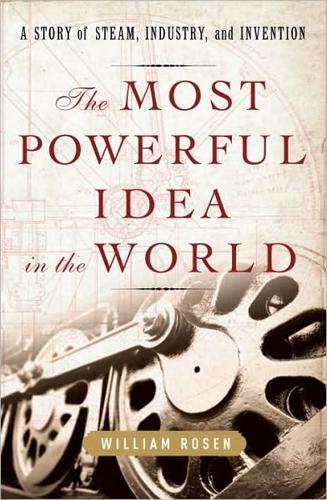
The Most Powerful Idea in the World: A Story of Steam, Industry, and Invention
by
William Rosen
Published 31 May 2010
To Quillan, Emma, and Alex— my most valuable ideas (and to Jeanine: my best one) CONTENTS List of Illustrations Prologue ROCKET concerning ten thousand years, a hundred lineages, and two revolutions Chapter One CHANGES IN THE ATMOSPHERE concerning how a toy built in Alexandria failed to inspire, and how a glass tube made in Italy succeeded; the spectacle of two German hemispheres attached to sixteen German horses; and the critical importance of nothing at all Chapter Two A GREAT COMPANY OF MEN concerning the many uses of a piston; how the world’s first scientific society was founded at a college with no students; and the inspirational value of armories, Nonconformist preachers, incomplete patterns, and snifting valves Chapter Three THE FIRST AND TRUE INVENTOR concerning a trial over the ownership of a deck of playing cards; a utopian fantasy island in the South Seas; one Statute and two Treatises; and the manner in which ideas were transformed from something one discovers to something one owns Chapter Four A VERY GREAT QUANTITY OF HEAT concerning the discovery of fatty earth; the consequences of the deforestation of Europe; the limitations of waterpower; the experimental importance of a Scotsman’s ice cube; and the search for the most valuable jewel in Britain Chapter Five SCIENCE IN HIS HANDS concerning the unpredictable consequences of sea air on iron telescopes; the power of the cube-square law; the Incorporation of Hammermen; the nature of insight; and the long-term effects of financial bubbles Chapter Six THE WHOLE THING WAS ARRANGED IN MY MIND concerning the surprising contents of a Ladies Diary; invention by natural selection; the Flynn Effect; neuronal avalanches; the critical distinction between invention and innovation; and the memory of a stroll on Glasgow Green Chapter Seven MASTER OF THEM ALL concerning differences among Europe’s monastic brotherhoods; the unlikely contribution of the brewing of beer to the forging of iron; the geometry of crystals; and an old furnace made new Chapter Eight A FIELD THAT IS ENDLESS concerning the unpredictable consequences of banking crises; a Private Act of Parliament; the folkways of Cornish miners; the difficulties in converting reciprocating into rotational motion; and the largest flour mill in the world Chapter Nine QUITE SPLENDID WITH A FILE concerning the picking of locks; the use of wood in the making of iron, and iron in the making of wood; the very great importance of very small errors; blocks of all shapes and sizes; and the tool known as “the Lord Chancellor” Chapter Ten TO GIVE ENGLAND THE POWER OF COTTON concerning the secret of silk spinning; two men named Kay; a child called Jenny; the breaking of frames; the great Cotton War between Calcutta and Lancashire; and the violent resentments of stocking knitters Chapter Eleven WEALTH OF NATIONS concerning Malthusian traps and escapes; spillovers and residuals; the uneasy relationship between population growth and innovation; and the limitations of Chinese emperors, Dutch bankers, and French revolutionaries Chapter Twelve STRONG STEAM concerning a Cornish Giant, and a trip up Camborne Hill; the triangular relationship between power, weight, and pressure; George Washington’s flour mill and the dredging of the Schuylkill River; the long trip from Cornwall to Peru; and the most important railroad race in history Epilogue THE FUEL OF INTEREST Acknowledgments Notes LIST OF ILLUSTRATIONS Figure 1: Thomas Savery’s pumping machine, as seen in a lithograph from his 1702 book The Miner’s Friend.
…
* Small would have been a key asset in any game of eighteenth-century “Six Degrees of Kevin Bacon” as a correspondent of Watt, a friend of Benjamin Franklin, and, before his return to Scotland from North America, Thomas Jefferson’s onetime professor at the College of William & Mary. * Modest indeed—a fraction of what he would eventually spend on rejiggering Watt’s patent. CHAPTER SIX THE WHOLE THING WAS ARRANGED IN MY MIND concerning the surprising contents of a Ladies Diary; invention by natural selection; the Flynn Effect; neuronal avalanches; the critical distinction between invention and innovation; and the memory of a stroll on Glasgow Green It was in the Green of Glasgow.1 I had gone to take a walk on a fine Sabbath afternoon. I had entered the Green by the gate at the foot of Charlotte Street—had passed the old washing-house.
…
As far back as the 1960s,19 the term “blind variation and selective retention” was being used to describe creative innovation without foresight, and advocates for the BVSR model remain so entranced by the potential for mapping creative behavior onto a Darwinian map that they refer to innovations as “ideational mutations.”20 A more modest, and jargon-free, application of Darwinism simply argues that technological progress is proportional to population in the same way as evolutionary change: Unless a population is large enough, the evolutionary changes that occur are not progressive but random, the phenomenon known as genetic drift. It is, needless to say, pretty difficult to identify “progressive change” over time for cognitive abilities like those exhibited by inventors. A brave attempt has been made by James Flynn, the intelligence researcher from New Zealand who first documented, in 1984, what is now known as the Flynn Effect: the phenomenon that the current generation in dozens of different countries scores higher on general intelligence tests than previous generations. Not a little higher: a lot. The bottom 10 percent of today’s families are somehow scoring at the same level as the top 10 percent did fifty years ago.
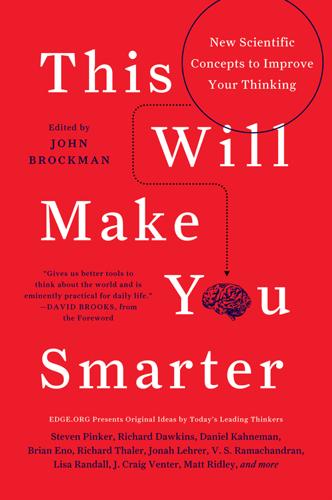
This Will Make You Smarter: 150 New Scientific Concepts to Improve Your Thinking
by
John Brockman
Published 14 Feb 2012
Evolution has accelerated from geologic speed to Internet speed—still employing random mutation and selection but also using nonrandom intelligent design, which makes it even faster. We are losing species not just by extinction but by merger. There are no longer species barriers between humans, bacteria, and plants—or even between humans and machines. Shorthand abstractions are only one device we employ to construct the “Flynn effect”—the worldwide increase in average scores on intelligence tests. How many of us noticed the minor milestone when the SAT tests first permitted calculators? How many of us have participated in conversations semi-discreetly augmented by Google or text messaging? Even without invoking artificial intelligence, how far are we from commonplace augmentation of our decision making, the way we have augmented our math, memory, and muscles?
…
The phenomenon of hybrid vigor in offspring, which is also called heterozygote advantage, derives from a cross between dissimilar parents. It is well established experimentally, and the benefits of mingling disparate gene pools are seen not only in improved physical but also improved mental development. Intermarriage therefore promises cognitive benefits. Indeed, it may already have contributed to the Flynn effect, the well-known worldwide rise in average measured intelligence by as much as three IQ points per decade over successive decades since the early twentieth century. Every major change is liable to unintended consequences. These can be beneficial, detrimental, or both. The social and cognitive benefits of the intermingling of people and populations are no exception, and there is no knowing whether the benefits are counterweighed or even outweighed by as yet unknown drawbacks.
…
S., 293 emergence, 190, 278 emergent complexity, 275 Emerson, Ralph Waldo, 225 emotional stability, 232 empiricism, 85 energy production, 313–14, 315, 316–17 English language, 286–88 Eno, Brian, 294–95 Enriquez, Juan, 165–66 entanglement, 330–32 entropy, 237, 238, 239 enumerative induction, 113 environmental issues: Anthropocene thinking and, 206–8 climate change, see climate change energy production, 313–14, 315, 316–17 resource consumption, 175–76, 237, 238, 309, 313, 346 shifting baseline syndrome and, 90–91 equilibrium, systemic, 237–39 estrogen, 230, 231 ether, 338 eugenics, 88, 89 eukaryotic cells, 157, 196 Evans, Dylan, 100 evidence, 267 absence and, 281, 282–84 evolution, 51, 88–89, 98, 157, 166, 234, 333, 359, 395–96 of brain, 10, 207, 257 cooperation in, 99 creationism vs., 268–69 cycles and, 171, 172–73 intelligent design and, 59–60, 89 of microbes, 16 mutation in, 99 selection in, see natural selection time and, 1–2, 223 toward intelligence, 4 expanding in-group, 194–95 experiments, 23–24, 34 controlled, 25–27, 274 double-blind control, 17–18, 44 failure in, 79–80 replicability of, 373–75 thought, 28–29 experts and authority figures, 18, 20, 34 explanation, levels of, 276 externalities, 124–26 extinction, 175, 362 extroversion, 232–33 eye, 130, 139, 141, 147–48, 163, 188–90, 359 facial attractiveness, 136, 137 failure, 79–80 fantasizing, 235–36 fear of the unknown, 55–57 Feynman, Richard, 20, 236 financial analysis, 186 financial crisis, 259, 261, 307, 309, 322, 386 financial instruments, 178, 179 financial risk, 259 Finn, Christine, 282–84 Firestein, Stuart, 62–64 fish, 90 Fisher, Helen, 229–31 Fiske, Susan, 267 Fitch, W. Tecumseh, 154–56 fixed-action patterns, 160–61 Flash Crash, 60–61 flavor, 141 Flock of Dodos, A, 268–69 flu, 351 vaccinations for, 56 Flynn, James, xxx, 372 Flynn effect, 89, 195 focusing illusion, 49–50 food chain, 312 Ford, Henry, 335 Foreman, Richard, 225 Foucault, Michel, 118 Fowler, James, 306 framing, 201–2, 203 free jazz, 254–56 free trade, 100 free will, 35, 48, 217 Freud, Sigmund, 37–38, 146, 147, 148 Friedman, Milton, 84 functional modularity, 131 future, 1–2 Galbraith, John Kenneth, 307 Galileo, 9, 28–29, 110, 162, 335 Galton, Francis, 242 Game of Life, 275–77 game theory, 94–95, 96, 318 Gandhi, Mohandas K., 335 gangs, 345 garbage, mental, 395–97 Gaussian distribution, 199, 200 gedankenexperiment, 28–29 Gefter, Amanda, 299–300 Gelernter, David, 246–49 Gell-Mann, Murray, 190, 388 General Motors, 204 general relativity, 25, 64, 72, 234, 297 generators, 277 genes, 10, 15, 32, 88, 97, 98, 99, 157, 165–66, 395 altruism and, 196 horizontal transfer of, 16 Huntington’s disease and, 59 hybrid vigor and, 194–95 McClintock’s work with, 240–41 pangenome, 16 personality and, 229, 233 see also DNA gene therapy, 56 genetically modified (GM) crops, 16, 56 genetic vulnerability, 278–79 geometry, hyperbolic, 109 Gershenfeld, Neil, 72–73 Gibbon, Edward, 128 Gibbs, J.
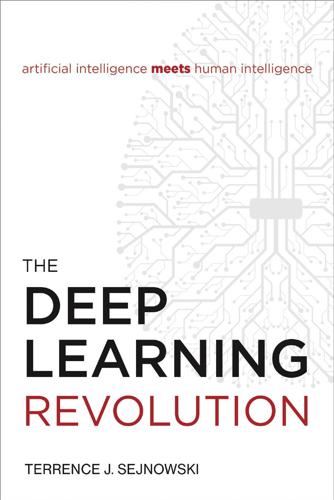
The Deep Learning Revolution (The MIT Press)
by
Terrence J. Sejnowski
Published 27 Sep 2018
And, indeed, cases have been made for different domaindependent kinds of intelligence: social, emotional, mechanical, and constructive, for example.37 The “g factor” that intelligence tests claim to measure is correlated with these different kinds. There are reasons to be cautious about interpreting IQ tests. The average IQ has been going up all over the world by three points per decade since it was first studied in the 1930s, a trend called the “Flynn effect.” There are many possible explanations for the Flynn effect, such as better nutrition, better health care, and other environmental factors.38 This is quite plausible because the environment affects gene regulation, which in turn affects brain connectivity, leading to changes in behavior.39 As humans increasingly are living in artificially created environments, brains are being molded in ways that nature never intended.
…
See also Orgel’s second rule evolutionary origins of human beings, 264–265 Exascale computing, 206, 229 Expert systems, 30–31 Exponential growth, 143 327 Fabre-Thorpe, Michèle, 64f Facial Action Coding System (FACS), 181 Facial expression analysis, 181–182, 181f Facial expressions of emotion, universal, 180, 180f recognizing, 181f as window into your soul, 178–182 Facial recognition, 124, 227, 238 Fast ForWord, 190 Feher, Olga, 157f Feldman, Jerome A., 91–93, 316n3 Felleman, Daniel J., 76f Fendi, Silvia Venturini, 137 Fergus, Rob, 303n12 Field, David, 296n7 Figure–ground problem, 97, 99 ambiguous, 97f Boltzmann machine and, 97, 100f Film, artificial intelligence (AI) depicted in, 174 Finches consulting with each other, 29f Fisher, Carrie, 228f Fitness (biology), 267 Flash-lag effect, 239–240, 239f Flynn, James R., 288n38 Flynn effect, 21 Fodor, Jerry A., 75, 77, 317n14 Fried, Itzhak, 235, 315n6 Friederici, A. D., 236f Frog retina, 106 Fukushima, Kunihiko, 292n3 Functionalism, 32 Functionalist cognitive scientists, 253–254 Functional magnetic resonance imaging (fMRI), 78, 86, 88f, 254 Fuster, Joachim M., 305n17 Gain normalization, 131 Game of Life, 197, 199, 199f Games, 154.
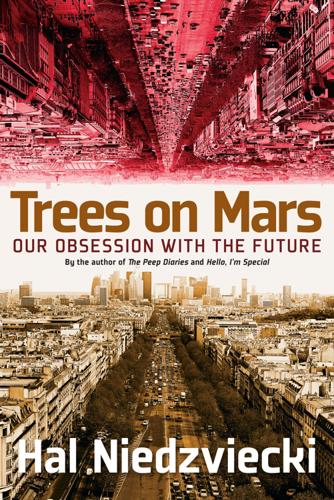
Trees on Mars: Our Obsession With the Future
by
Hal Niedzviecki
Published 15 Mar 2015
This, too, is part of the process: the shift from the guiding principle of gods and their magic to the command and control principle of information. We have begun to see the world, notes researcher James Flynn, through “scientific spectacles.” Flynn should know: the New Zealand–based scholar has been writing since the mid-1980s about what is now widely called the Flynn Effect. The Flynn Effect is essentially the phenomenon of rising IQ scores. To put it simply, after studying IQ tests given in the same place in the same way to the same kinds of people since 1930 (around the same time Russian psychologist Luria was studying increasingly smaller pockets of people who remained functionally illiterate) Flynn found that we’ve been consistently improving on IQ tests.
…
He says that the pattern of rising IQ scores does not mean that we are comparing “a worse mind with a better one,” but rather that we are comparing minds that “were adapted to one cognitive environment with those whose minds are adapted to another cognitive environment.”26 Seen in this light, the Flynn effect does not reflect gains in general intelligence. We aren’t getting smarter; we are getting more modern. Or to put it another way—we aren’t smarter, but we are more steeped in the language of abstraction, more used to the idea that everything and anything can be expressed in the prismed refraction of virtual totality—the information.
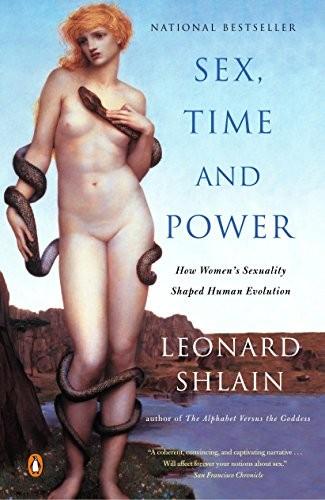
Sex, Time, and Power: How Women's Sexuality Shaped Human Evolution
by
Leonard Shlain
Published 2 Aug 2004
*The human need for meat does not diminish the importance of vegetables in a healthy diet. A pregnant woman who eats only meat will deliver an underweight infant with a tendency to fail to thrive. Nevertheless, diets rich in meat are suspected of increasing intelligence. The Flynn Effect, named after political scientist James Flynn, tracks the worldwide rise in IQ points occurring at the rate of three points per decade over the last seventy years.16 The cause of the Flynn Effect remains a mystery. Many scientists believe it is the result of improvements in the diets of children. When two Guatemalan villages were given protein supplements for several years, the IQ of the children rose significantly when measured ten years later.17 Many researchers believe that the abundant bioavailable iron that can be consumed by eating meat but that is not present in the majority of vegetables plays an important role in establishing intelligence.
…
mid-month pain and, 47–48 sexual bond and, 48–49 Cuddles Theory, 71 culture, 15, 269, 272, 284 anima-animus duality and, 216–17 bride-barter practice and, 314–16 funerary practices and, 269, 269n, 271n homosexuality and, 234–35 language and, 262–63 man-nature relationship and, 342 menarche and, 137–38, 141, 142 in social animals, 275n Curse, The (Delaney, Lupton, and Toth), 67n daddy-at-home theory, 48 Daly, Martin, 39, 50 Damasio, Antonio, 145n Darwin, Charles, xiv, 91n, 189, 241, 275 Dawkins, Richard, 349n Deacon, Terence, 191 death, 261–73 afterlife and, 277–80 ancestor worship and, 279 anxiety and, 264, 266–67 awareness of, 264–68, 271, 272–73, 311, 323, 329, 337–39, 349 child’s understanding of, 268, 271 Creative Explosion and, 269, 271 funerary practices and, 269, 269n, 271n, 278–79, 278n greed and, 285–86 immortality notion and, 283–85, 303–4 laughter and, 282 men’s attitude toward, 271–73 posthumous legacies and, 283–85 self-delusion and, 278, 279–81 superstition and, 276–77 time and, 261–63 women’s attitude toward, 271–73 deeptime, 166–67, 169, 171, 173, 174, 261, 263, 271n, 275, 285, 289, 328, 337 Delaney, Janice, 57, 67n depression, 282 Derrida, Jacques, 188 Descartes, René, 157 Descent of Man, The (Darwin), 189 de Waal, Frans, 265n, 285n Diamond, Jared, 46, 48, 59–60, 269 Dickinson, Emily, 254, 286 diet, 117–35, 262, 337 advent of fire and, 119–21, 133–34 amino acids in, 123–24, 133 carbohydrates in, 122 cholesterol in, 126–27 fat in, 124–25 fatty acids in, 125–26, 125n, 133 Flynn Effect and, 128n glucose in, 122 human digestive tract and, 117–18, 119, 121–22, 131 intelligence and, 128n iron in, 128, 128n, 134, 135, 151–52 modern, 118–19 physiological adaptations to, 121–22 proteins in, 123–24 symbiotic relationships and, 129–30 vegetarian, 124, 128–29, 129n vitamin C in, 131–33, 132n DNA, 6n, 7n, 12, 88, 258, 284 mitochondrial, 7, 371n Dogon tribe, 30–31 dolphins, 5n, 170 Donald, Merlin, 191 Donne, John, 85, 276 Dostoyevsky, Fyodor, 327 dowry, 314 Dunbar, Robin, 190, 242–43, 243n dyspareunia, 63 eating disorders, 356n ecology, 129 Eights, Theory of, 242–54 Einstein, Albert, 275 elephants, 170–71 Eliot, George, 187 Ellison, Peter T., 11 embryogenesis, 228 Emler, Nick, 190 Empedocles, 270 endometriosis, 60–61 Engels, Frederick, 344 entropy, process of, 151 environment of early adaptiveness, 14–15 epiglottis, 193 episiotomy, 27, 27n Erasmus, 231, 339 erotica, 351n essential amino acids, 123 ESSP (exclusive same-sex preference), see homosexuality estrogen, xi, 62, 124, 142, 157n, 228n, 231 and anima-animus duality, 211–12 and cholesterol, 126–27 fibroids and, 33 and menopause, 86–87, 95 menstruation and, 154, 155, 157 in puberty, 140 estrus, 15–16, 16n, 108, 113, 152, 153, 174, 346, 356 ethnic cleansing, 280 Euripides, 11 Ever-Ready Sperm Theory, 159–60 evolution, x, xii, xiv advent of fire and, 120–21 Biogenetic Law and, 270, 299 of bipedalism, 3–4 of brain, 4, 12, 19 circadian rhythms and, 172–73 of controlled defecation, 34 deleterious traits and, 45–46 fear of death and, 281 of hominids, 3–4, 8 of Homo sapiens, 6–8, 24, 34, 169–73, 268–69, 371n Honest Handicap Theory of, 46n human-chimpanzee kinship and, 46 infanticide and, 50–51 punctuated equilibrium in, 6 runaway selection in, 46n sense of time and, 169 sentience and, 167–68 exogenetic heredity, 284 Expensive Tissue Hypothesis, 41, 41n Falk, Dean, 250 fallopian tubes, 61, 61, 155 family, 330–31 family planning, 31 Faraday, Michael, 149 fat, 124–25, 262 as sexual signal, 354–56, 355n fatherhood, 308–9, 349 fatty acids, 125–26, 125n, 127, 128, 133, 364 Fear of Flying (Jong), 237 Ferenczi, Sandor, 276 fibroids, 32, 33 fight-or-flight response, 266 fire, discovery of, 119–21 First Sex, The (Fisher), 94 Fisher, Helen, 94, 113 Fisher, Ronald, 46n Fitch, Tecumseh, 204–5 fitness, 14, 87 flicker-fusion threshold, 355 flight distance, 59, 251–52 Flynn, James, 128n Flynn Effect, 128n Fonteyn, Margot, 282 food-sharing, 111 foreplay, sexual, 16–17, 213, 221 foresight, 166–67, 166n, 184–85, 313, 327, 337 Tiresias myth and, 255–56 see also deeptime foreskin, function of, 90 Fox, Robin, 307, 349n Franklin, Benjamin, 316n Free Will, 19, 80, 106, 336 menstruation and, 60 Freud, Sigmund, xi–xii, 78–79, 339, 360 Frisch, Rose, 355n Fuegians, 180 funerary rites, 269, 269n, 271n, 278–79, 278n, 299 Galabruda, Alan, 187n Galen, 66, 89 gallows humor, 282 genes, 6 of chimpanzees, 7, 11 DNA sequence of, 6n for Huntington’s chorea, 272–73 “unselfish,” 230 Genesis, Book of, 23, 102, 121, 228, 256–257, 264 Geschwind, Norman, 187n gestation, 26–27 gibbon, 213–14 glucose, 25–26, 122, 157 Goodall, Jane, 49, 113, 265n, 356n Good Natured (de Waal), 265n gorillas, xi, 54, 105, 128n, 135, 152n Gould, Stephen Jay, vii, 17n, 103, 190, 270n Grafenberg, Ernst, 78–80 Grahn, Judy, 39, 58, 165 Grandmother Theory, 87–88, 254 greed, 285–86 Greenberg, Joseph, 371n Greer, Germaine, 96 G spot, 78–80 “G Spot, The” (Ladas, Whipple, and Perry), 78 Guarani tribe, 138 Guinness Book of World Records, The, 284 Gulliver’s Travels (Swift), 24n Haeckel, Ernst, 270, 270n, 299, 299n Halterman, Jill, 128n Hamer, Dean, 230, 230n, 231 Hamilton, William, 242 Hammurabi, King of Babylon, 379n Hardy, Alister, 104, 194n Hartung, John, 321 Hawkes, Kristen, 88, 112 Hazda tribe, 108 Heaven and Hell (Huxley), 132 Hebrews, ancient, 374n, 375n Hegel, Georg Wilhelm Friedrich, 284, 339 heme iron, 40–41, 43, 132 hemoglobin, ix, ixn, 26, 39–40, 42, 43, 43n hemorrhoids, 33–34 hermaphroditism, 227–29 monotheism and, 256–58 in mythology, 254–56 in nonhumans, 228–29 Herodotus, 141, 267, 304 Hill, Kim, 108, 112 Hines, Terence, 79 Hippocrates, 66, 89 Holloway, Ralph, 187n Holy Grail, myth of, xxv homeostasis, 150–52, 154, 160 Homer, 236, 277, 284, 304 hominids, 3–4, 46 Homo erectus, 6, 12, 13, 13n, 15, 15n, 102n, 108 discovery of fire and, 119–21 language development in, 187–88, 197 toolmaking by, 362 Homo ergaster, 187n Homo habilis, 13, 13n, 102n, 108, 108n, 121n, 362 Homo heidelbergensis, 102n, 187n Homo neanderthalensis, 121, 269n, 271n Homo sapiens, x, 7n, 15n, 20, 64 archaic, 187n as biological force, 11–12 digestive tract of, 117–18, 119 evolution of, 6–8, 24, 34, 169–73, 268–69, 371n as global pathogen, 130–31 life expectancy of, 270–71 sexual dimorphism in, 140–41 toolmaking by, 362–63 homosexuality, 227–38, 232, 234 AIDS epidemic and, 236–37 anima-animus duality and, 232–35, 243 arts, literature and, 243–44 birth rank and, 230 culture and, 234–35 embryonic development and, 228, 230–31 as evolutionary adaptation, 241–43 genetic determination of, 230 high incidence of sexual encounters and, 237 in Hinduism, 256 in history, 229, 236 homophobia and, 235 hunting success and, 243, 253–54 as mental disease, 232 in nonhuman species, 228–30 prostitution and, 237–38 psychological factors and, 231, 233–34 religion and, 231–32 schizophrenia and, 233–34 sociological studies of, 235–36 testosterone and, 228, 230–31, 235 see also hermaphroditism; lesbianism “honest handicap” theory, 46n hookworm, 35 Hopi Indians, 256 Horace, 284 hormone replacement therapy (HRT), 96–97 hormones: emotions and, 156–57 menstruation and, 153–58, 157n see also specific hormones Hrdy, Sarah Blaffer, 31, 49–50, 335 humor, 281–82 hunting, 101–14, 219–20, 285, 337, 341 baldness and, 248–53 bipedalism and, 103–4, 107, 251–52 color-blindness and, 245 flicker-fusion threshold and, 355 flight distance and, 251–52 food-sharing behavior and, 111 gender skewing and, 107 homosexuality and, 243, 253–54 iron acquisition and, 105, 106–8, 110, 114, 152n, 161, 198, 205–6, 262 language development and, 189–90, 206 left-handedness and, 246–48 male sexual drive and, 109–11 by nonhumans, 101, 105, 107 optimal group for, 242–43 Savanna Theory of, 104–5 sense of time and, 166–67 sexual favors as goal of, 112–14, 135, 161, 166–67 Show-Off Theory of, 112–13 Huntington’s chorea, 272–73 Huxley, Aldous, 132 Huxley, Julian, 187 hyenas, 27, 212, 212n if-then algorithm, 262, 276 rationality and, 263–64 Iliad (Homer), 236, 284 immortality, 309, 349, 283–85, 303–4, 309, 349 incest, 311–12 infanticide, 31 cryptic ovulation and, 49–51 evolution and, 50–51 by primates, 49–50 internal milieu, 149, 151, 152, 195n “Intimations of Immortality” (Wordsworth), 81–82 Inuit Indians, 101 iron, 152n, 262, 336–37, 338, 344, 364, 370 atom of, 40, 42 brain development and, 26 chelation of, 40, 42 children and depletion of, 27–28, 28n chronic loss of, in women, 25–34 in diet, 128, 128n, 134, 135, 151–52 early menarche and, 142 fetal development and, 26 gestation and, 26–27 heme, 40–41, 43, 132 human digestion of, 40–43, 42n hunting and, 105, 106–8, 110, 114, 152n, 161, 198, 205–6, 262 meat hunger and, 152 menarche and, 142, 145–46 oxygen’s affinity for, ix pica syndrome and, 151 in pregnancy, x, 26–27 sources of, 36, 40 storage of, 42–43 as supplement in packaged foods, 35, 142 vitamin C and, 131–32 irony, 281–82 Iroquois Nation, 316n Isaac, Glynn, 111, 190, 362 Isaiah, 339 Isis (Lacombe), 22 “Is the Female to Male as Nature Is to Culture?”
…
mid-month pain and, 47–48 sexual bond and, 48–49 Cuddles Theory, 71 culture, 15, 269, 272, 284 anima-animus duality and, 216–17 bride-barter practice and, 314–16 funerary practices and, 269, 269n, 271n homosexuality and, 234–35 language and, 262–63 man-nature relationship and, 342 menarche and, 137–38, 141, 142 in social animals, 275n Curse, The (Delaney, Lupton, and Toth), 67n daddy-at-home theory, 48 Daly, Martin, 39, 50 Damasio, Antonio, 145n Darwin, Charles, xiv, 91n, 189, 241, 275 Dawkins, Richard, 349n Deacon, Terence, 191 death, 261–73 afterlife and, 277–80 ancestor worship and, 279 anxiety and, 264, 266–67 awareness of, 264–68, 271, 272–73, 311, 323, 329, 337–39, 349 child’s understanding of, 268, 271 Creative Explosion and, 269, 271 funerary practices and, 269, 269n, 271n, 278–79, 278n greed and, 285–86 immortality notion and, 283–85, 303–4 laughter and, 282 men’s attitude toward, 271–73 posthumous legacies and, 283–85 self-delusion and, 278, 279–81 superstition and, 276–77 time and, 261–63 women’s attitude toward, 271–73 deeptime, 166–67, 169, 171, 173, 174, 261, 263, 271n, 275, 285, 289, 328, 337 Delaney, Janice, 57, 67n depression, 282 Derrida, Jacques, 188 Descartes, René, 157 Descent of Man, The (Darwin), 189 de Waal, Frans, 265n, 285n Diamond, Jared, 46, 48, 59–60, 269 Dickinson, Emily, 254, 286 diet, 117–35, 262, 337 advent of fire and, 119–21, 133–34 amino acids in, 123–24, 133 carbohydrates in, 122 cholesterol in, 126–27 fat in, 124–25 fatty acids in, 125–26, 125n, 133 Flynn Effect and, 128n glucose in, 122 human digestive tract and, 117–18, 119, 121–22, 131 intelligence and, 128n iron in, 128, 128n, 134, 135, 151–52 modern, 118–19 physiological adaptations to, 121–22 proteins in, 123–24 symbiotic relationships and, 129–30 vegetarian, 124, 128–29, 129n vitamin C in, 131–33, 132n DNA, 6n, 7n, 12, 88, 258, 284 mitochondrial, 7, 371n Dogon tribe, 30–31 dolphins, 5n, 170 Donald, Merlin, 191 Donne, John, 85, 276 Dostoyevsky, Fyodor, 327 dowry, 314 Dunbar, Robin, 190, 242–43, 243n dyspareunia, 63 eating disorders, 356n ecology, 129 Eights, Theory of, 242–54 Einstein, Albert, 275 elephants, 170–71 Eliot, George, 187 Ellison, Peter T., 11 embryogenesis, 228 Emler, Nick, 190 Empedocles, 270 endometriosis, 60–61 Engels, Frederick, 344 entropy, process of, 151 environment of early adaptiveness, 14–15 epiglottis, 193 episiotomy, 27, 27n Erasmus, 231, 339 erotica, 351n essential amino acids, 123 ESSP (exclusive same-sex preference), see homosexuality estrogen, xi, 62, 124, 142, 157n, 228n, 231 and anima-animus duality, 211–12 and cholesterol, 126–27 fibroids and, 33 and menopause, 86–87, 95 menstruation and, 154, 155, 157 in puberty, 140 estrus, 15–16, 16n, 108, 113, 152, 153, 174, 346, 356 ethnic cleansing, 280 Euripides, 11 Ever-Ready Sperm Theory, 159–60 evolution, x, xii, xiv advent of fire and, 120–21 Biogenetic Law and, 270, 299 of bipedalism, 3–4 of brain, 4, 12, 19 circadian rhythms and, 172–73 of controlled defecation, 34 deleterious traits and, 45–46 fear of death and, 281 of hominids, 3–4, 8 of Homo sapiens, 6–8, 24, 34, 169–73, 268–69, 371n Honest Handicap Theory of, 46n human-chimpanzee kinship and, 46 infanticide and, 50–51 punctuated equilibrium in, 6 runaway selection in, 46n sense of time and, 169 sentience and, 167–68 exogenetic heredity, 284 Expensive Tissue Hypothesis, 41, 41n Falk, Dean, 250 fallopian tubes, 61, 61, 155 family, 330–31 family planning, 31 Faraday, Michael, 149 fat, 124–25, 262 as sexual signal, 354–56, 355n fatherhood, 308–9, 349 fatty acids, 125–26, 125n, 127, 128, 133, 364 Fear of Flying (Jong), 237 Ferenczi, Sandor, 276 fibroids, 32, 33 fight-or-flight response, 266 fire, discovery of, 119–21 First Sex, The (Fisher), 94 Fisher, Helen, 94, 113 Fisher, Ronald, 46n Fitch, Tecumseh, 204–5 fitness, 14, 87 flicker-fusion threshold, 355 flight distance, 59, 251–52 Flynn, James, 128n Flynn Effect, 128n Fonteyn, Margot, 282 food-sharing, 111 foreplay, sexual, 16–17, 213, 221 foresight, 166–67, 166n, 184–85, 313, 327, 337 Tiresias myth and, 255–56 see also deeptime foreskin, function of, 90 Fox, Robin, 307, 349n Franklin, Benjamin, 316n Free Will, 19, 80, 106, 336 menstruation and, 60 Freud, Sigmund, xi–xii, 78–79, 339, 360 Frisch, Rose, 355n Fuegians, 180 funerary rites, 269, 269n, 271n, 278–79, 278n, 299 Galabruda, Alan, 187n Galen, 66, 89 gallows humor, 282 genes, 6 of chimpanzees, 7, 11 DNA sequence of, 6n for Huntington’s chorea, 272–73 “unselfish,” 230 Genesis, Book of, 23, 102, 121, 228, 256–257, 264 Geschwind, Norman, 187n gestation, 26–27 gibbon, 213–14 glucose, 25–26, 122, 157 Goodall, Jane, 49, 113, 265n, 356n Good Natured (de Waal), 265n gorillas, xi, 54, 105, 128n, 135, 152n Gould, Stephen Jay, vii, 17n, 103, 190, 270n Grafenberg, Ernst, 78–80 Grahn, Judy, 39, 58, 165 Grandmother Theory, 87–88, 254 greed, 285–86 Greenberg, Joseph, 371n Greer, Germaine, 96 G spot, 78–80 “G Spot, The” (Ladas, Whipple, and Perry), 78 Guarani tribe, 138 Guinness Book of World Records, The, 284 Gulliver’s Travels (Swift), 24n Haeckel, Ernst, 270, 270n, 299, 299n Halterman, Jill, 128n Hamer, Dean, 230, 230n, 231 Hamilton, William, 242 Hammurabi, King of Babylon, 379n Hardy, Alister, 104, 194n Hartung, John, 321 Hawkes, Kristen, 88, 112 Hazda tribe, 108 Heaven and Hell (Huxley), 132 Hebrews, ancient, 374n, 375n Hegel, Georg Wilhelm Friedrich, 284, 339 heme iron, 40–41, 43, 132 hemoglobin, ix, ixn, 26, 39–40, 42, 43, 43n hemorrhoids, 33–34 hermaphroditism, 227–29 monotheism and, 256–58 in mythology, 254–56 in nonhumans, 228–29 Herodotus, 141, 267, 304 Hill, Kim, 108, 112 Hines, Terence, 79 Hippocrates, 66, 89 Holloway, Ralph, 187n Holy Grail, myth of, xxv homeostasis, 150–52, 154, 160 Homer, 236, 277, 284, 304 hominids, 3–4, 46 Homo erectus, 6, 12, 13, 13n, 15, 15n, 102n, 108 discovery of fire and, 119–21 language development in, 187–88, 197 toolmaking by, 362 Homo ergaster, 187n Homo habilis, 13, 13n, 102n, 108, 108n, 121n, 362 Homo heidelbergensis, 102n, 187n Homo neanderthalensis, 121, 269n, 271n Homo sapiens, x, 7n, 15n, 20, 64 archaic, 187n as biological force, 11–12 digestive tract of, 117–18, 119 evolution of, 6–8, 24, 34, 169–73, 268–69, 371n as global pathogen, 130–31 life expectancy of, 270–71 sexual dimorphism in, 140–41 toolmaking by, 362–63 homosexuality, 227–38, 232, 234 AIDS epidemic and, 236–37 anima-animus duality and, 232–35, 243 arts, literature and, 243–44 birth rank and, 230 culture and, 234–35 embryonic development and, 228, 230–31 as evolutionary adaptation, 241–43 genetic determination of, 230 high incidence of sexual encounters and, 237 in Hinduism, 256 in history, 229, 236 homophobia and, 235 hunting success and, 243, 253–54 as mental disease, 232 in nonhuman species, 228–30 prostitution and, 237–38 psychological factors and, 231, 233–34 religion and, 231–32 schizophrenia and, 233–34 sociological studies of, 235–36 testosterone and, 228, 230–31, 235 see also hermaphroditism; lesbianism “honest handicap” theory, 46n hookworm, 35 Hopi Indians, 256 Horace, 284 hormone replacement therapy (HRT), 96–97 hormones: emotions and, 156–57 menstruation and, 153–58, 157n see also specific hormones Hrdy, Sarah Blaffer, 31, 49–50, 335 humor, 281–82 hunting, 101–14, 219–20, 285, 337, 341 baldness and, 248–53 bipedalism and, 103–4, 107, 251–52 color-blindness and, 245 flicker-fusion threshold and, 355 flight distance and, 251–52 food-sharing behavior and, 111 gender skewing and, 107 homosexuality and, 243, 253–54 iron acquisition and, 105, 106–8, 110, 114, 152n, 161, 198, 205–6, 262 language development and, 189–90, 206 left-handedness and, 246–48 male sexual drive and, 109–11 by nonhumans, 101, 105, 107 optimal group for, 242–43 Savanna Theory of, 104–5 sense of time and, 166–67 sexual favors as goal of, 112–14, 135, 161, 166–67 Show-Off Theory of, 112–13 Huntington’s chorea, 272–73 Huxley, Aldous, 132 Huxley, Julian, 187 hyenas, 27, 212, 212n if-then algorithm, 262, 276 rationality and, 263–64 Iliad (Homer), 236, 284 immortality, 309, 349, 283–85, 303–4, 309, 349 incest, 311–12 infanticide, 31 cryptic ovulation and, 49–51 evolution and, 50–51 by primates, 49–50 internal milieu, 149, 151, 152, 195n “Intimations of Immortality” (Wordsworth), 81–82 Inuit Indians, 101 iron, 152n, 262, 336–37, 338, 344, 364, 370 atom of, 40, 42 brain development and, 26 chelation of, 40, 42 children and depletion of, 27–28, 28n chronic loss of, in women, 25–34 in diet, 128, 128n, 134, 135, 151–52 early menarche and, 142 fetal development and, 26 gestation and, 26–27 heme, 40–41, 43, 132 human digestion of, 40–43, 42n hunting and, 105, 106–8, 110, 114, 152n, 161, 198, 205–6, 262 meat hunger and, 152 menarche and, 142, 145–46 oxygen’s affinity for, ix pica syndrome and, 151 in pregnancy, x, 26–27 sources of, 36, 40 storage of, 42–43 as supplement in packaged foods, 35, 142 vitamin C and, 131–32 irony, 281–82 Iroquois Nation, 316n Isaac, Glynn, 111, 190, 362 Isaiah, 339 Isis (Lacombe), 22 “Is the Female to Male as Nature Is to Culture?”
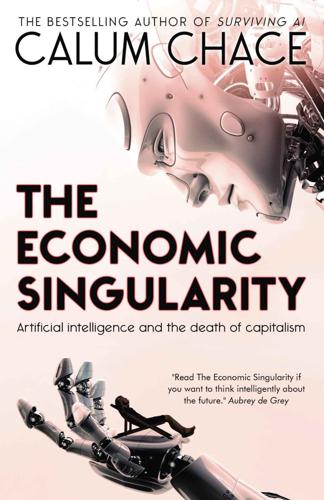
The Economic Singularity: Artificial Intelligence and the Death of Capitalism
by
Calum Chace
Published 17 Jul 2016
Wishing their kids would go outside and kick a ball around instead, they have agonised over a series of scares about the ill effects of video games, which allegedly make kids violent, stop them developing social skills, render them vulnerable to legions of grooming molesters, and give them impossibly short attention spans. And the blue light of the screen disrupts their sleep. Meanwhile, the Flynn Effect describes the finding that IQ levels are increasing steadily each generation,[clxxvi] which should not be surprising when you consider the general trends toward less smoking, less drinking, better central heating, better food and better healthcare. And the fact that we are continually learning more about what works in education and what does not.
…
If you add in DVD and other “windows”, plus merchandising, it is hard to say. https://www.quora.com/Who-makes-more-money-Hollywood-or-the-video-game-industry [clxvi] https://versions.killscreen.com/we-should-be-talking-about-torture-in-vr/ [clxvii] http://www.tomdispatch.com/post/175822/tomgram%3A_crump_and_harwood%2C_the_net_closes_around_us/ [clxviii] https://www.washingtonpost.com/local/public-safety/the-new-way-police-are-surveilling-you-calculating-your-threat-score/2016/01/10/e42bccac-8e15-11e5-baf4-bdf37355da0c_story.html [clxix] http://www.newyorker.com/tech/elements/little-brother-is-watching-you [clxx] http://www.wired.com/2014/03/going-tracked-heres-way-embrace-surveillance/ [clxxi] https://www.washingtonpost.com/news/the-switch/wp/2016/03/28/mass-surveillance-silences-minority-opinions-according-to-study/ [clxxii] http://www.bbc.co.uk/news/world-asia-china-34592186 [clxxiii] http://www.computerworld.com/article/2990203/security/aclu-orwellian-citizen-score-chinas-credit-score-system-is-a-warning-for-americans.html [clxxiv] http://www.theguardian.com/technology/2015/oct/06/peeple-ratings-app-removes-contentious-features-boring [clxxv] https://www.technologyreview.com/s/601294/microsoft-and-google-want-to-let-artificial-intelligence-loose-on-our-most-private-data/?utm_source=Twitter&utm_medium=tweet&utm_campaign=@KyleSGibson [clxxvi] The Flynn Effect: http://www.bbc.co.uk/news/magazine-31556802 [clxxvii] WHO "Global Status Report on Road Safety 2013: supporting a decade of action [clxxviii] http://www.japantimes.co.jp/news/2015/11/15/business/tech/human-drivers-biggest-threat-developing-self-driving-cars/#.Vo7D5fmLRD8 [clxxix] http://www.theatlantic.com/business/archive/2013/02/the-american-commuter-spends-38-hours-a-year-stuck-in-traffic/272905/ [clxxx] http://www.reinventingparking.org/2013/02/cars-are-parked-95-of-time-lets-check.html [clxxxi] http://www.etymonline.com/index.php?
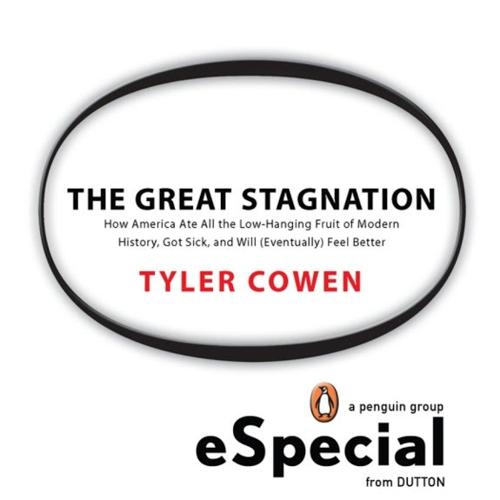
The Great Stagnation
by
Tyler Cowen
Published 24 Jan 2011
On the same page, a little further below, I find: “The average mathematics score for 17-year-olds was not significantly different from that in 1973.” There are plenty of ways you can slice and dice these numbers with statistics, but the bottom line is that an “eyeball test” shows very little in terms of net gains on the tests, and that’s speaking over decades. Keep in mind that according to the so-called “Flynn effect,” each generation has higher average IQ scores than the last. So if we’re getting smarter on relatively abstract IQ tests but not getting better test scores at school, possibly schools are declining in their productivity, despite all the extra money spent. Or take the constant scores in mathematics.
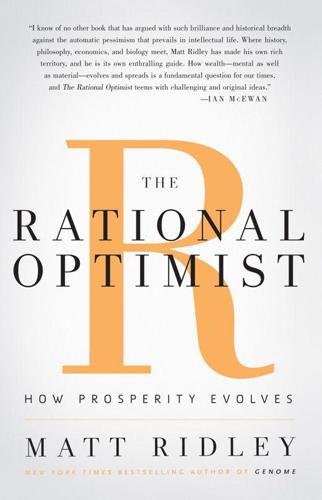
The Rational Optimist: How Prosperity Evolves
by
Matt Ridley
Published 17 May 2010
Incidentally, the individualisation of life that brought personal freedom after the 1960s also brought less loyalty towards the group, a process that surely reached crisis point in the bonus rows of 2009: see Lindsey, B. 2009. Paul Krugman’s Nostalgianomics: Economic Policy, Social Norms and Income Inequality. Cato Institute. p. 19 ‘As Hayek put it’. Hayek, F.A. 1960. The Constitution of Liberty. Chicago University Press. p. 19 ‘Known as the Flynn effect, after James Flynn who first drew attention to it’. Flynn, J.R. 2007. What Is Intelligence? Beyond the Flynn Effect. Cambridge University Press. pp. 19–20 ‘To date 234 innocent Americans have been freed’.http://www.innocenceproject.org/know. p. 20 ‘the average family house probably costs slightly less today than it did in 1900 or even 1700’. Comparing house prices over long periods of time is fraught with difficulty, because houses vary so much, but Piet Eichholtz has tried to index house prices by comparing the same area of Amsterdam, the Herengracht, over nearly 400 years: Eichholtz, P.M.A. 2003.
…
This explains the steady, progressive and ubiquitous improvement in the average IQ scores people achieve at a given age – at a rate of 3 per cent per decade. In two Spanish studies, IQ proved to be 9.7 points higher after thirty years, most of it among the least intelligent half of the group. Known as the Flynn effect, after James Flynn who first drew attention to it, this phenomenon was at first dismissed as an artefact of changes in tests, or a simple reflection of longer or better schooling. But the facts do not fit such explanations because the effect is consistently weakest in the cleverest children and in the tests that relate most to educational content.
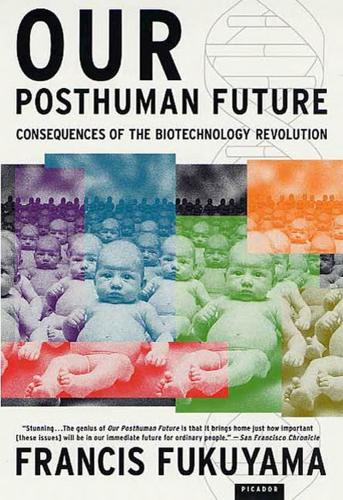
Our Posthuman Future: Consequences of the Biotechnology Revolution
by
Francis Fukuyama
Published 1 Jan 2002
The same special issue of American Psychologist confirmed that blacks do indeed score significantly lower on standardized intelligence tests than whites. The question is why. There are many circumstantial reasons to suggest that the gap is due much more to environmental than to genetic factors. A powerful one has to do with the so-called Flynn effect, named after psychologist James Flynn, who first noticed that IQ scores have been rising over the past generation in virtually every developed country. 33 It is extremely unlikely that this change is due to genetic factors, because genetic change does not occur this rapidly; Flynn himself is skeptical that people are on the whole that much smarter than they were a generation ago.
…
See human experimentation extermination Fabian socialists Factor X family as enemy of the state obligations, as source of morality and character and society family law “feelies” female infanticide feminism Fertilisation and Embryology Act (UK) fertility rates, fall in fetuses girl, abortion of rights of Filmer, Robert Finland First Amendment Flavr-Savr Tomato fluoxetine Flynn, James Flynn effect Food, Drug, and Cosmetic Act of 1938 Food and Agriculture Organization (FAO) Food and Drug Administration (FDA) foods genetically modified U.S. exports food safety, regulation of Foucault, Michel Founding Fathers Fourteenth Amendment Fox, Robin France Franco, Francisco Frank, Robert Freedom Party free will French Revolution Freud, Sigmund Freudianism Friedman, Thomas Fukuyama, Francis, The End of History and the Last Map g (intelligence factor) Galileo Galston, William Galton, Francis gamma-aminobutyric acid (GABA) system Gardner, Howard gay activism “gay gene” geeks gender identity Genentech gene pool, human General Agreement on Tariffs and Trade (GATT) generations succession of, as stimulant of progress and change warfare between genes action of, studying and behavior human interaction with environment multiple functions and interactions of recessive transferred to other species gene therapy harm of genetically modified organisms (GMOs) consumer resistance to labeling of regulation of “genetic arms race” genetic “classes” genetic diagnosis and screening genetic discrimination genetic diseases genetic engineering and research consequences of, unintended cost of obstacles to opponents of proponents of regulation of genetic information, privacy of “genetic lottery” Genetic Manipulation Advisory Group (UK) genetics and crime and intelligence genocide genomics genotype, effect on phenotype “GenRich” race Germany demographics regulation in views on biotechnology germ cells germ-line engineering regulation of Geron Corporation gerontology “getting out of the way” Gillie, Oliver girl fetuses, aborting of Glendon, Mary Ann Glenmullen, Joseph, Prozac Backlash globalization and difficulty of controlling technology God belief in man created in image of Golden Rule Goodwin, Frederick K.
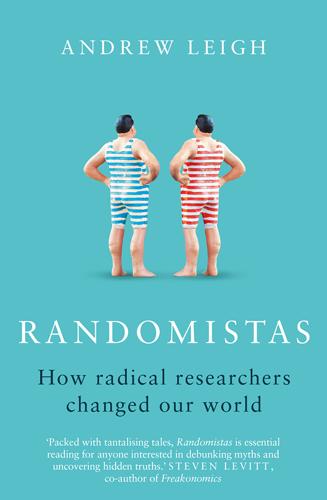
Randomistas: How Radical Researchers Changed Our World
by
Andrew Leigh
Published 14 Sep 2018
Now, high-achieving women have promising career options in business, medicine and law. Consequently, the academic standards of new teachers have slipped backwards. The results are showing up in test scores. Over the past century, intelligence tests administered across the population have shown a steady increase, decade on decade. But it now looks like the ‘Flynn effect’ – named after New Zealand social scientist James Flynn – may be driven mostly by the fact that we are getting more education rather than because our schools are improving. Over the past two decades, in the Programme for International Student Assessment, the OECD has administered standardised tests to a sample of 15-year-olds.
…
Alm, Steven 97–8 Amazon 7, 131–2, 137, 144, 167 American Economic Association’s Randomized Controlled Trials registry 199 American Psychological Association, and Joseph Jastrow 51 Ames, Phil 184–5 ‘anchoring’ effect 133 Andrade, Leandro 101 Annie Hall 208–9 Anson, Commodore George, and scurvy 1–3 Archilochus 104 Aristotle 156 artefactual field experiments 176 Arthroscopy 20 Ashenfelter, Orley 194 ASSISTments, and online learning tools 77 Auden, W.H. 125 Australian National University 167, 186, 201 ‘automaticity’ 87–8 Badabla, Saa 161 Banerjee, Abhijit 121 Banerji, Rukmini 189–90 Barksdale, Jim 6 Battered Women’s Movement 89 Battlers and Billionaires 167 Belmont Report 186 Benin political campaign, and Saka Lafia 160 BETA 171 see also Michael Hiscox Beyond Scared Straight 8 Bill & Melinda Gates Foundation 77, 103 biometrically identified smartcards 111 see also Karthik Muralidhan Blane, Gilbert 4 Blattman, Chris 88, 209 Bloom, Nicholas 139 Bloomberg Philanthropies 211 Booker, Senator Cory 86 Borges, Jorge Luis, and ‘The Lottery in Babylon’ 181 Boston Consulting 139 Bown, Stephen 1 Brindley, Giles 168 Bristol, Muriel 52 British Medical Journal 12 ‘broken windows policing’ 209 Broockman, David 163–4 Brookings Institution 44 see also Ron Haskins Bush, President George W. 125, 155 California Votes Initiative 153 Campbell, Donald 205 Campbell Collaboration 8, 198 Capitol One 128–9 see also Nigel Morris; Rich Fairbank Carlyle, Thomas 44 Carr, NSW Premier Bob 95 Chalmers, Iain 28 Chatterbooks program 76 see also Education Endowment Foundation (EEF) ‘cherrypick’ 36,196 Chicago ‘Parent Academy’ 9 childhood learning programs 65, 68, 70–2, 191 see also 21st Century Community Learning Centers; ‘1001 critical days’ movement; Abecedarian Project; Early Years Education Program; Head Start; Perry Preschool; Sesame Street; West Heidelberg early years centre Choong, Peter 17–18, 21 Christoforetti, John 22 Cifu, Adam 31 Civis Analytics 159 Clark medal 121 see also Esther Duflo Clinton, President Bill 41, 59, 105 Coby, Gary, and the Trump campaign 154 Cochrane 28, 31, 198 see also Archie Cochrane; Iain Chalmers Cochrane, Archie 27–8, 190 Cochrane Collaboration 28 cognitive behavioural therapy 87–8 Colbert, Stephen 125 college program trials 82–3, 169 Commonwealth Scientific and Industrial Research Organisation (CSIRO) 14, 54 Community Led Total Sanitation 116 control groups 44, 78, 93, 118, 138, 192, 211 and ‘encouragement design’ 187 see also medical randomised trials; political campaign strategies; randomised trials; social field experiments conventional laboratory experiments 176–7 see also Steven Pinker Cook, James 4 Cook, Scott, and Intuit 207 Cooney, Joan 63 correlation 11, 106, 149 counterfactual 9–10, 74, 82, 149, 192–3 Cowdery, Nicholas 96 credible comparison groups 10, 37, 72 Creedence Clearwater Revival, and ‘Fortunate Son’ 42 CrimeSolutions.gov 101 criminal justice experiments ‘Becoming a Man’ program 87 and CrimeSolutions.gov 101 Hawaii’s Opportunity Probation with Enforcement (HOPE) 97–9 ‘incapacitation effect’ 99 and Liberian experiment 88 Minneapolis Domestic Violence Experiment 90–1 Neighbourhood Watch 94, 183 and Street Narcotics Unit 92–3 and ‘three strikes’ law’ 99, 101 see also Drug Courts; policing programs; restorative justice experiments; US Police Foundation CVS pharmacy 133–4 Danish State Serum Institute 26 ‘data and safety monitoring boards’ 187 Deaton, Angus 6, 12, 124 ‘deep canvassing’ 163–4 ‘Development Innovation Ventures’ 210 see also Maura O’Neill; Michael Kremer dibao 108 Dive, Roger 96 ‘double-blind’ studies 26 driving licence experiment India 109 see also Sendhil Mullainathan Drug Courts 95–6, 98, 182 Duflo, Esther 121–2, 206 Dukakis, Michael 151 Durkheim, Emile 91 Dziak, John 131 Early Years Education Program 71–2 Earned Income Tax Credit 41 Easterly, William 112 eBay 130, 132 Edna McConnell Clark Foundation 211 Education Endowment Foundation (EEF) 75–6, 211 Einstein, Albert 208 Eliot, Charles 51 ‘encouragement design’ 187 ethics 72, 98, 109, 118, 182, 186–8 see also medical randomised trials ethics committees 186–7 see also 1964 Declaration of Helsinki; Belmont Report; ‘data and safety monitoring boards’ evidence-based medicine 24, 26–7 see also Alvan Feinstein; Archie Cochrane; David Sackett ‘experimental ideal’ 194 Experiments in Governance and Politics Network 199 Facebook 138, 143–5, 154–5 see also Sheryl Sandburg Fairbank, Rich 128–9 family violence 85, 89–90 see also The Battered Women’s Movement; Minneapolis Domestic Violence Experiment Farrer, William 127 Feinstein, Alvan 27 Fenner, Frank 168 Feynman, Richard, on scientific integrity 205 Fibiger, Johannes 26 Finckenauer, James 8 Finland government experiment 46 Fisher, Ronald 52–4, 127 see also ‘modern synthesis’ and ‘The evolution of sexual preference’ 53 ‘fixed mindset’ 6 Fleischer, David 163–5 FlyBuys loyalty card, and Coles supermarket empire 134–5 Flynn, James, and the ‘Flynn effect’ 73 Food and Drug Administration 29, 188 Fox, President Vincente 117 framed field experiments 176 Frankfurt, Harry 205 Freedom from Hunger 212 French government experiment 46 Fryer, Roland 79 ‘fuel league table’ 136 fundraising strategies 156–9 and the ‘lead donor’ 157 and the ‘once and done’ campaign 158 Salvation Army’s ‘Red Kettle Christmas drive 157 and the ‘Science of Philanthropy Initiative’ 159 Garner, Alan 183–4 see also Head Injury Retrieval Trial Gawande, Atul, on ‘pointless medical care’ 34 ‘general equilibrium’ effect 191 Gerber, Alan 149,151–3 German government unemployment incentive 45 Get Out the Vote 149 see also Alan Gerber; Donald Green GiveDirectly 107 Glover, Danny 7 Gneezy, Uri 178 Goldacre, Ben 185 Google 7, 131, 141–4, 154, 208 and researching a book title 166–7 see also Eric Schmidt; Marissa Mayer Gopnik, Alison 65–6 Gore, Al 155 Gosnell, Harold, and political campaigns 148–50 Graber, Ben 60 Grameen Bank 105 see also Muhammad Yunus Green, Donald 149, 151–3, 163 see also Get Out the Vote Grigg, Sue 37 see also ‘Journey to Social Inclusion’ Gueron, Judith 57–62, 206 see also Manpower Demonstration Research Corporation (MDRC); Project Independence H&R Block 82 Halpern, David 171, 206 see also Nudge Unit Harford, Tim 190, 205 Harlem Children’s Zone 79 Harrah’s casino 127–8 see also Gary Loveman Harris, Ian, and medical randomised trials 21, 34 Harrison, Glenn, and categories of randomised experiments 176 Haskins, Ron 44 Hawaii’s Opportunity Probation with Enforcement (HOPE) 97–9 see also Steven Alm ‘Hawthorn effect’ 138 Haygarth, John, and the placebo effect 23–4 Head Injury Retrieval Trial 183–4 Head Start 192 ‘healthy cohort’ effect 12 Highest Paid Person’s Opinion (HiPPO) 6 Hill, Austin Bradford 54–7 and Principles of Medical Statistics 55 and streptomycin trial 56 Hiscox, Michael 171 see also BETA HMS Salisbury 3 HMS Wager 2 Holmes, Oliver Wendell Sr, and materia medica 25–6 ‘incapacitation effect’ 99 Incredible Years Basic Parenting Programme 69 Innovations for Poverty Action 123 International Clinical Trials Registry Platform 199 Ioannidis, John 196–7 James Cook University 33 James Lind Alliance 28 see also Iain Chalmers Jastrow, Joseph 50–1 J.B.
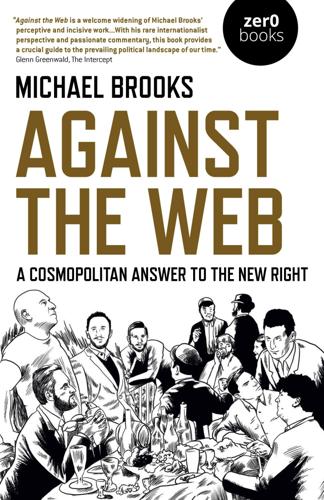
Against the Web: A Cosmopolitan Answer to the New Right
by
Michael Brooks
Published 23 Apr 2020
The geneticist James Flynn also undermined biological determinism by demonstrating that IQ across populations has gone up as societies have grown more complex. Possible explanations of the effect have to do with education, nutrition, and the presence of more stimulating environments. This is called “the Flynn Effect” and it led to a priceless moment in the otherwise laborious Harris/Klein debate. Harris, no doubt relying on his meditative psychic powers, told Klein that he was not accurately representing Flynn’s views. Klein responded that he’d just spoken to Flynn the day before. Harris, without missing a beat, continued to insist that Klein (and by extension Flynn..?)
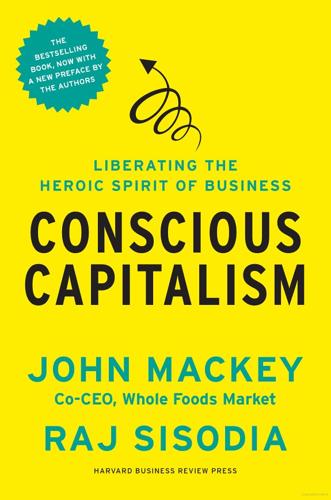
Conscious Capitalism, With a New Preface by the Authors: Liberating the Heroic Spirit of Business
by
John Mackey
,
Rajendra Sisodia
and
Bill George
Published 7 Jan 2014
A New Chapter in Human History We human beings did not stop evolving when we became Homo sapiens; our evolution continued, but became more culturally and internally driven. The changes are most manifest in an increase in different types of intelligence and a rise in consciousness. It may not seem obvious at first glance, but we are becoming smarter as a species. The Flynn effect shows that overall human analytical intelligence has been rising at an average rate of about 4 percent every decade for the past several decades.1 In other words, a person testing at an average IQ of 100 today would have tested at close to 130 sixty years ago. People are also far better educated worldwide.
…
Marc Gafni, interview with authors, March 15, 2012. 19. R. Edward Freeman, Jeffrey S. Harrison, and Andrew C. Wicks, Managing for Stakeholders: Survival, Reputation, and Success (New Haven: Yale University Press, 2007). 20. Marc Gafni, interview with authors, March 15, 2012. Chapter Two 1. Jonathan Plucker, ed., “The Flynn Effect,” in Human Intelligence: Historical Influences, Current Controversies, Teaching Resources, Indiana University, 2002, www.indiana.edu/~intell/flynneffect.shtml. 2. Tim Berners-Lee, “Homepage,” n.d., www.w3.org/People/Berners-Lee/. 3. The downside of this, of course, is accuracy. Anyone can publish anything on the Web, and some will believe it without question. 4.
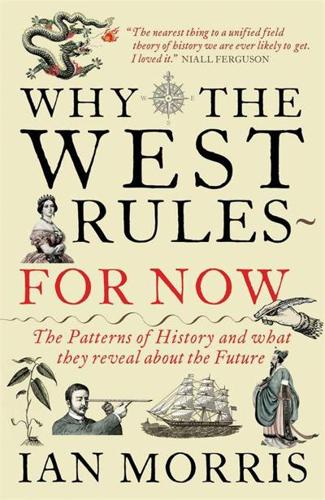
Why the West Rules--For Now: The Patterns of History, and What They Reveal About the Future
by
Ian Morris
Published 11 Oct 2010
A more sensible conclusion might be that people accommodate their culture to the needs of social development, which, in the late twentieth century, produced Confucian and Communist capitalists as well as liberal ones. The conclusion that we get the thought we need might also make sense of another odd phenomenon, which psychologists call the Flynn Effect. Since IQ tests began, average scores have steadily moved upward (by about three points per decade). It would be cheering to think that we are all getting smarter, but most likely we are just getting better at thinking in the modern, analytical ways that these tests measure. Reading books made us more modern than telling stories, and (to the horror of many educators) playing computer games apparently makes us more modern still.
…
Scientific inventions: Merton 1957, Stigler 1980, and Malcolm Gladwell’s highly readable “In the Air,” The New Yorker, May 12, 2008, pp. 50–60 (available at http://www.newyorker.com/archive). East-West psychological differences: Hedden et al. 2008. Eastern illogicality: compare Nisbett 2003, Ho and Yan 2007, and McGilchrist 2009. Lloyd 2007 is a balanced discussion of cognitive variation. I’d like to thank Professor Nisbett for discussing this issue with me. Flynn Effect: Neisser 1998, J. Flynn 2007, and Malcolm Gladwell, “None of the Above: What IQ Doesn’t Tell You About Race,” The New Yorker, December 17, 2007 (available at http://www.newyorker.com/archive). Confucianism and Japan’s failings: J. Hall 1966. Confucianism and Japan’s successes: Morishima 1982.
…
Flynn, Dennis. World Silver and Monetary History in the 16th and 17th Centuries. Aldershot, UK: Variorum, 1996. Flynn, Dennis, Arturo Giráldez, and Richard von Glahn, eds. Global Connections and Monetary History, 1470–1800. Aldershot, UK: Ashgate, 2003. Flynn, James. What Is Intelligence? Beyond the Flynn Effect. Cambridge, UK: Cambridge University Press, 2007. Fogel, Robert. The Escape from Hunger and Premature Death, 1700–2100: Europe, America, and the Third World. Cambridge, UK: Cambridge University Press, 2004. ———. “Capitalism and Democracy in 2040: Forecasts and Speculations.” National Bureau of Economic Research Working Paper 13,184, 2007.
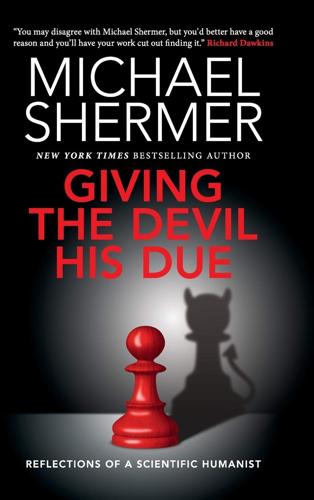
Giving the Devil His Due: Reflections of a Scientific Humanist
by
Michael Shermer
Published 8 Apr 2020
Where is the environmental refutation to the genetic conjecture? “There will be bad science on both sides of the debate,” Flynn admits. But “The only antidote I know for that is to use the scientific method as scrupulously as possible.” By way of example, Flynn says he discovered his eponymous effect – the “Flynn Effect” that IQ points have been increasing on average about three points every ten years for almost a century9 – by reading Arthur Jensen’s research on IQ and “g” (the general intelligence factor), which no one else noticed because of their reluctance to give any credence to Jensen’s work as a result of his association with the genetic position on racial differences in IQ.
…
Arkansas, 52 Erasmus, 225 eSkeptic, 81 Espionage Act (1917), 2 European Union founding of, 249–250 evil myth of pure evil, 28–37 nature of, 28–37 evolution argument for decentralising authority, 215–217 case for bottom-up self-organization, 215–217 development of Darwin’s theory, 44–46 impact of the Darwinian revolution, 44–47 religious-based skepticism, 47–50 support for creationism in America, 46 why people do not support it, 47–50 evolution–creationism controversy, 44–54 Evolutionary Creationists, 51 evolutionary economics collective action problem, 198–201 Darwin economy, 199–201 hidden costs of market failures and moral hazards, 201–202 importance of positional rank, 200–201 role of ostentatious display, 200–201 “sin taxes”, 201–202 taxation, 203 top-down government, 199–201 transaction costs of keeping up with the Joneses, 201–202 See also evonomics evonomics advantages gained from ostentatious display, 207–210 argument for wealth redistribution, 210–213 bottom-up self-organization, 203–205 connection between Adam Smith and Charles Darwin, 203–205 corporations as species, 205–207 creative destruction concept, 206 fatal conceit of top-down government, 215–217 positional ranking, 210–213 relative happiness, 210–213 what is seen and not seen in government actions, 213–215 Expanding Circle theory, 240 expanding sphere of knowledge metaphor, 125 externalities, 199 extraterrestrial intelligence, 221 Fawcett, Henry, 45–46 Feder, Ken, 324–325 feminism victimhood culture, 73 Ferris, Timothy, 228 Festinger, Leon, 95 Feynman, Richard, 123, 316 First World War, 1, 16 Fisher, Helen, 158 flat-Earthers, 51 Flynn, James, 19, 23, 24–25 Flynn Effect, 25 Forbes, Bertie, 206 Ford, Henry, 31 Foundation for Individual Rights in Education (FIRE), 25, 70 Foundation for the Future, 289 14/88 code, 30–31 Fox, James Alan, 169, 175 Fox News, 181 fragile children, 74 Frank, Robert H., 198, 199–202, 203, 204, 208–213, 215–217 Franklin, Benjamin, 84, 226 Frankowski, Nathan, 55 Freakonomics theory, 174 free trade institutions, 249–251 free will–determinism debate, 264–265 freedom of inquiry, 8, 19–27search for truth in science, 26–27 freedom of speech, 19–27campus unrest over controversial speakers, 64–78 college speaker disinvitations, 70–71 democracy and, 26 evolution–creationism controversy, 44–54 Free Speech Movement of the late 1960s, 64–65 giving the devil his due, 1–9 hate speech, 13–16, 28–37 Holocaust denial, 38–43 increasing viewpoint diversity in colleges, 76–78 Intelligent Design conspiracy theory, 55–63 Jordan Peterson on gender pronouns and Bill C-16, 300–303 microaggressions, 68–70 Ten Commandments of free speech and thought, 7–8 trigger warnings, 66–67 French Revolution, 72 Fuji film, 206 Gacy, John Wayne, 35 Gap Creationists, 51 Gardner, Martin, 270, 271, 319 Geivett, Douglas, 104 Geller, Uri, 271, 272 gender differences research on, 22–23 gender pronouns Jordan Peterson on, 300–303 General Electric (GE), 206 General Motors (GM), 206 Generation X, 65 Generation Z how they handle challenges, 64–65 Geocentrists, 51 Geoffroy, Gregory, 60 George, Robby, 83 Ghawi, Jessica, 176 Gibbon, Edward, 204 Giffords, Gabrielle, 175 Gingrich, Newt, 82, 83 Gish, Duane, 280 Göbekli Tepe stone structures, 324–326 God and the purpose of the universe, 103–108 creation of the universe ex nihilo (out of nothing), 115–117 ontological argument for the existence of, 114 Goldberg, Jeffrey, 279–280 Goldberg, Jonah, 131 Goldhagen, Daniel, 61 Goldman, Emma, 2 Goldwater, Barry, 77 Gonzales, Guillermo, 59–60 Google, 206, 260 Gore, Al, 137 Gould, John, 44 Gould, Stephen Jay, 292, 294 governance experiments artificial communities, 154 HMS Bounty mutineers on Pitcairn Island, 156–159 intentional communities, 154 shipwrecked groups, 155–156 social experiments, 154–156 unintentional communities, 154–156 governance systems avoiding weak government, 153–154 challenges for, 147–148 delegative democracy, 149 designing extraterrestrial systems, 150–152 direct democracy, 149–150 features of good societies, 154–155 impact of cyber-technology, 153 in science fiction, 152–153 representational democracy, 149 types of, 149–150 government top-down government, 199–201 Grafen, Alan, 287 grand unified theory, 121 gravitational waves, 122 Gray, Asa, 287 Grayling, A.

Rule Britannia: Brexit and the End of Empire
by
Danny Dorling
and
Sally Tomlinson
Published 15 Jan 2019
Even though British children now rank towards the bottom of many league tables of ability, they are still (on average) much more able than their parents. On average, each generation born since the Second World War has been allowed to be more able than its parents or grandparents, as provision has been made for young people to stay on at school until, first, age sixteen and, later, age eighteen. Known as the Flynn Effect, ability at passing IQ tests is going up steadily all over the world, and the results have to be periodically recalibrated to maintain the preordained average of 100 for each generation. And if you want a challenge, try explaining that to the man who was until recently British Foreign Secretary, Boris Johnson, who is in danger of going to his grave never fully understanding how IQ tests work and what their purpose was.41 THE BRITISH AND THEIR STRANGE SCHOOLS, AND SCHOOLS OF THOUGHT University – A school, where all the arts and faculties are taught and studied, and where, in the view of some news-sheets and political hacks, there are seditious lectures against Brexit
…
However, when you compare prices around major train stations in these cities, and account for the square metres that are inside dwellings, central London is often found to be the most expensive, at least for now – its prices are falling. 57 Macpherson, W. (1999) The Stephen Lawrence Inquiry, Cmnd 4262, London: The Stationery Office. 58 Adams, T. (2013) ‘Doreen Lawrence: “I could have shut myself away, but that is not me”’, The Guardian, 20 April, https://www.theguardian.com/uk/2013/apr/20/doreen-lawrence-stephen-lawrence INDEX Abramovich, Roman 1 abstentions in EU referendum 1, 2, 3 Acheson, Dean 1 Act of Union (1707) 1, 2, 3 Adonis, Andrew 1 age as factor in referendum 1, 2, 3 and views on immigration 1 and support for political parties 1 Al Nahyan, Mansour bin Zayed 1 Aliens Act (1905) 1, 2 Allen, Graham 1 Andrew, Prince 1 Anglo-Saxon myth 1 arms trade 1, 2, 3 Arne, Thomas 1 Arsenal 1 Ashcroft, Lord 1, 2, 3 Attlee, Clement 1, 2 BAE 1 Baker, Herbert 1 Bamford, Lord 1 Bank of England 1, 2 Banks, Arron 1, 2, 3 Barclay, Stephen 1 Barnier, Michel 1 Bartley, Jonathan 1 bell curve 1, 2 Benn, Tony 1 Besant, Annie 1 Bevan, Aneurin 1 Bildt, Carl 1 Blair, Tony 1, 2, 3 Blake, William 1 Bloomberg, Michael 1 Blunkett, David 1 Blunt, Anthony 1 BMG 1 Boer War 1, 2 Bolton, Henry 1 Bonaparte, Napoleon 1 Bone, Peter 1 Booth, Robert 1 Borja, Mario Cortina 1, 2 Bowers, Simon 1 Boyle, Frankie 1 Bradlaugh, Charles 1 Bradley, Karen 1 Bragg, Billy 1 Branson, Richard 1 Bravo, Antonio 1 Bravo, Manuel 1 Brexit Cookbook, The 1 Brexit negotiations Theresa May’s position on 1 free trade deals 1, 2, 3, 4, 5, 6, 7, 8 life after Brexit 1, 2, 3 impact on EU 1 and financial services 1 and impact reports 1 and Brexit War Cabinet 1 and ‘no deal’ Brexit 1, 2 and Greenland example 1 ‘soft’ and ‘hard’ Brexits 1 Labour Party position on 1 costs of Brexit 1 Britain definition of 1, 2 misconception of identity 1 role in modern world 1 post-Empire 1, 2, 3 mythology of 1, 2, 3, 4 creation of 1 ‘Great’ in 1 identity of 1, 2, 3 and natural selection 1 international comparisons 1 rise in inequality in 1 pride in 1 industrial revolution in 1 pollution in 1 arms trade in 1, 2, 3 financial services in 1, 2, 3, 4 arms trade in 1 manufacturing industry in 1, 2, 3, 4, 5, 6, 7 statistics on trade 1 values of 1 wage levels in 1 life expectancy in 1 possible break-up of 1 Britannia 1 British Brothers’ League 1 British Chamber of Commerce 1 British Empire loss of 1, 2 pride in 1, 2 and immigration 1 creation of 1 and British identity 1 education about 1, 2, 3, 4, 5 and dependencies 1 as market captive 1, 2, 3, 4 remnants of 1, 2, 3 and public schools 1 racism in 1 fantasy of 1 and Darwinism 1 delusions of grandeur 1 spoils of 1 legacy of 1, 2 Opium Wars 1 and need for food 1 British Empire Union 1 British Medical Journal 1, 2 BRIT(ish): On Race Identity and Belonging (Hirsch) 1 British Union of Fascists 1 Brokenshire, James 1 Brown, Gordon 1, 2, 3 Bullingdon Club 1 Burgess, Guy 1 Buxton, Ronald 1 Cairncross, John 1 Cairns, Alun 1 Cambridge Analytica 1 Cambridge University 1, 2, 3, 4 Cameron, David promises referendum 1, 2 negotiations with EU 1 on ‘Jerusalem’ 1 on trade with the EU 1 at Oxford University 1, 2 family involvement in slavery 1 toughness on immigration 1 at Eton 1 resignation of 1 millionaires in Cabinet 1 wealth of 1 negotiations with EU 1 unauthorised biography of 1 Campbell, Alastair 1 Capital Group 1 Carney, Mark 1 Catholic Herald 1 Cavell, Edith 1 Centre for Social Justice 1 Chagos Islanders 1 Chandler, Christopher 1 Channel Islands 1 Charles, Prince 1, 2, 3, 4 Chelsea football club 1 Child Poverty Action Group 1 Churchill, Winston 1, 2, 3 Clark, Greg 1 Clarke, Kenneth 1, 2 class as factor in referendum 1, 2, 3, 4, 5 and the British Empire 1 Clegg, Nick 1 Clinton, Bill 1 Cockburn, Patrick 1 Collingham, Lizzie 1, 2 Commonwealth 1, 2, 3, 4, 5 Commonwealth Immigration Act (1968) Conan Doyle, Arthur 1, 2 Confederation of British Industry (BFI) 1 Confession of Faith (Rhodes) 1 Conservative Party donations to 1, 2 issue of EU in 1, 2, 3 wins 2015 general election 1 in European Parliament 1 age of supporters 1 Contemporary Review Journal 1 Corbyn, Jeremy 1 personality of 1, 2 election as Labour Party leader 1 and Windrush scandal 1 and 2017 general election 1 honesty of 1 comparisons with Attlee 1, 2 opposition to austerity 1 and second referendum 1 Corera, Gordon 1 corporal punishment 1 Cox, Geoffrey 1 Cox, Jo 1, 2, 3 Crabb, Stephen 1 Cromwell, Oliver 1 Culloden, Battle of 1 Cumberbatch, Benedict 1 Cummings, Dominic and political repercussions of referendum 1 to be played by Benedict Cumberbatch 1 early life and career 1, 2 belief in natural selection 1, 2, 3 in Vote Leave campaign 1, 2, 3 Cyprus 1 Daily Express 1 Daily Mail 1, 2 Daily Mirror 1 Daily Telegraph 1, 2, 3, 4, 5 Dalla Valle, Luciana 1, 2 Dalrymple, William 1 Daly, Paul 1 Darling, Alistair 1 Darwin, Charles 1, 2, 3, 4 Darwinism 1 Davis, David and customs union ‘backstop’ 1 and impact reports 1 made Secretary for Exiting the EU 1 Frankie Boyle on 1 bets on referendum result 1 Demetriades, Panicos 1 Democratic Unionist Party (DUP) 1, 2, 3 Der Spiegel 1 Deripaska, Oleg 1 Duncan Smith, Iain 1 East India Company 1, 2, 3 Economists for Free Trade 1 Edmiston, Lord 1 education as factor in referendum 1 universities 1, 2, 3, 4, 5, 6, 7, 8, 9, 10 selective 1 and inequality 1, 2, 3 history of in Britain 1 competition in 1 rise in levels of 1 in OECD countries 1 reforms to 1 Education and Race from Empire to Brexit (Tomlinson) 1 Edward, Prince 1 Edward I, King 1 Edwards, David 1 El-Enany, Nadine 1, 2, 3, 4 Elgot, Jessica 1 Elliott, Larry 1 Elliott, Matthew 1 Empire Marketing Board 1, 2 Empire Windrush 1, 2 England, pride in 1, 2 environmental legislation 1 Eton 1 eugenics 1, 2, 3 European Parliament 1 European Research Group (ERG) 1, 2 Evans, Natalie 1 Evans-Gordon, Major 1 Eyres, Harry 1 Falkland Islands 1 Fallon, Michael 1, 2 Farage, Nigel 1 contemplates Northern Ireland seat 1, 2 foiled leadership ambitions 1 and fantasy of British Empire 1 and immigration 1, 2 and Grassroots Out 1 farming industry 1 Festival of Britain 1 Field, Frank 1 financial services 1, 2, 3, 4 Financial Times 1, 2 Fingleton, Eamonn 1 Finnish Lessons (Sahlberg) 1 Fletcher, C. R. L. 1 Flynn Effect 1 Foot, Michael 1 football clubs 1 Foresight reports 1, 2 Fox, Liam and fantasy of British Empire 1 trade deals 1 and arms trade 1 resignation as Secretary of State for Defence 1 and Grassroots Out 1 Frankie Boyle on 1 free trade and British Empire 1, 2, 3 and Brexit negotiations 1, 2, 3, 4, 5, 6, 7, 8 economists on 1 advantages of 1, 2 and immigration 1 post-Brexit 1 Galbraith, John Kenneth 1 Galton, Francis 1, 2 Gangaidzo, Innocent 1 Garnier, Mark 1 Gauke, David 1, 2 gender as factor in referendum 1 general elections 1945 1 2005 1 2015 1, 2, 3 2017 1 genetics 1 Gentleman, Amelia 1 geography as factor in referendum 1, 2 George V, King 1 Gibraltar 1 Gillray, James 1 Global Justice Now 1 Glorious Revolution 1 Goldsmith, James 1 Goldsmith, Zac 1 Goodfellow, May 1 Goodwin, Matthew 1 Gorard, Stephen 1 Gove, Michael foiled leadership ambitions 1, 2 as Secretary of State for Education 1, 2 at Oxford University 1 belief in natural selection 1 and children of immigrants 1 political views of 1 in Vote Leave campaign 1 as Secretary of State for the Environment 1 grammar schools 1 Grant, Charles 1 Grassroots Out (GO) 1 Grayling, Chris 1 Great British Bake Off, The 1, 2 Green, Damian 1, 2 Green Party 1 Greening, Justine 1 Greenland 1 Grenfell Tower 1, 2 Griffiths, Peter 1 Guardian, The 1, 2, 3, 4, 5 Gugliani, Sam 1 Gummer, Ben 1 Haldane, J.
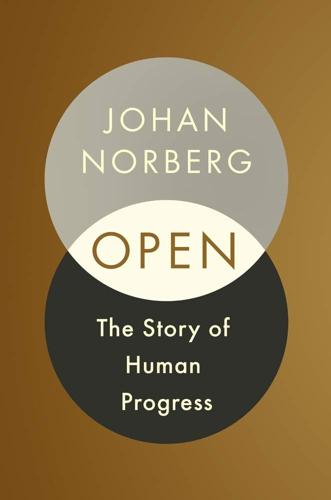
Open: The Story of Human Progress
by
Johan Norberg
Published 14 Sep 2020
The conclusion was that intelligence was restricted to north-western Europeans, and immigration ran the risk of turning America into a country of imbeciles. However, in their obsession with biology, they had ignored how education, nutrition and living in a culture of technology raise IQ for everybody (a phenomenon known as the Flynn effect). Fifty years later the Italians had caught up with the average on IQ tests, and the Poles had passed it by nine points!52 Eventually, of course, Jews and Chinese and Europeans in general came to be seen as decent and hard-working citizens who strengthened America – at least compared to Mexicans.
…
(Fukuyama), 362–5 End of Work, The (Rifkin), 312 Engels, Friedrich, 33, 36, 162, 206, 247, 256 English Civil War (1642–1651), 148, 183, 184, 201 Enigma machine, 124–6 Enlightenment, 4, 5, 6, 13, 103, 154–60, 165–6, 195–6 Environmental Performance Index, 327 Ephesus, 45 Epic of Gilgamesh, The, 38 Epicurus, 134–5 Epstein, Richard, 320 equality matching, 262–6, 267 Erasmus, 152 Erdogan, Recep Tayyip, 354 Ethiopia, 72, 130 ethnocentrism, 219, 271 Etruscan civilization (c. 900–27 BC), 43 Eubulus, 47 eugenics, 109 Euphrates river, 37 Euripides, 132 European Organization for Nuclear Research, 306 European Parliament, 325 European Union (EU) Brexit (2016–), 9, 14, 118, 238, 240–41, 349, 354, 379 common currency, 280–81 freedom of movement, 118, 343 migration crisis (2015–), 10, 114, 115, 342–3, 358 subsidies in, 280 trade and, 272 United States, trade with, 19 Evans, Oliver, 203 Evolution of God, The (Wright), 249 evolutionary psychology, 14, 23, 225 exoticism, 84 Expressionism, 198 Facebook, 239, 309 Falwell, Jerry, 113–14 Farage, Nigel, 241 farming, see agriculture Fascist Italy (1922–1943), 105, 219 FedEx, 319 Feifer, Jason, 290–92 Fenway Park, Boston, 223 Ferdinand II, King of Aragon, 97, 98, 106 Ferguson, Charles, 314 Fermi, Enrico, 105 Ferney, France, 153 feudalism, 92, 194, 202, 208 fight-or-flight instinct, 15, 346, 348–9 filter bubbles, 239 financial crisis (2008), 10, 15, 62, 254, 333, 358, 359–60 fire, control of, 32–3, 76 Flanders, 208 fluyts, 100 Flynn effect, 109 Fogel, Robert, 276 folk economics, 258–62 football, 223–4, 245–6 Forbes, 274 Ford, Henry, 203 Fortune 500 companies, 82 Fox News, 82, 302, 354 France, 151 American Revolutionary War (1775–83), 201 automation in, 313 Cathars, 94, 142 Cobden–Chevalier Treaty (1860), 53–4 corruption in, 345 Dutch War (1672–8), 101 Encyclopédie, 154 free zones in, 180–81 Huguenots, persecution of, 97, 99, 101, 158, 193 immigration in, 115 Jews, persecution of, 96, 97, 254 languages in, 289 Minitel, 313 Revolution (1789–99), 201, 292 Royal Academy of Sciences, 156 ruin follies, 287 St Bartholomew’s Day massacre (1572), 97 Thököly Uprising (1678–85), 137 Uber in, 320 University of Paris, 140, 141–2, 143 Francis I, Emperor of Austria-Hungary, 178 Franciscans, 144 Franklin, Benjamin, 107 Franks, 92 free speech, 127, 131–2, 160, 163–5, 343 Chicago principles, 164–5 emigration for, 152–3 university campuses, 163–5 free trade, see under trade Fried, Dan, 289 Friedman, Benjamin, 253 Friedman, David, 284 Friedman, Thomas, 325 Friedrich Wilhelm I, King of Prussia, 153 Fukuyama, Francis, 362–5 Fulda, Germany, 179, 180 Future and Its Enemies, The (Postrel), 300 Future of Nostalgia, The (Boym), 288 Galatia, 90 Galaxy Zoo, 80 Galilei, Galileo, 146, 150 Gallup, 164 game theory, 26 Gandhi, Indira, 326 gas lighting, 297 Gates, William ‘Bill’, 274, 277, 309 Gauls, 90, 91, 92 gay rights, 113, 336 Geary, Patrick, 288–9 gender equality, 113, 114 General Motors, 64 generations baby-boom generation (1946–64), 294, 340 generation X (1965–80), 340 immigration and, 106, 110–11, 113–14 interwar generation (1928–45), 340 millennial generation (1981–96), 340 nostalgia and, 291, 293–4, 296 genetically modified organisms (GMO), 299, 301 Geneva, Switzerland, 152, 153 Genghis Khan, 94–5, 96, 174 Genoa, Republic of (1005–1797), 73, 178 George II, King of Great Britain and Ireland, 193 George III, King of Great Britain and Ireland, 103, 193 George Mason University, 257, 258 Georgia, 365 Georgia, United States, 349 German Conservative Party, 254 Germany automatic looms, 179 Berlin Wall, fall of (1989), 10, 340, 341, 363, 364 Bronze Age migration, 75 budget deficits, 60 COVID-19 pandemic (2019–20), 12 guilds in, 190 immigration in, 114, 115 Jews, persecution of, 99, 104–6, 109, 220, 233 migration crisis (2015–), 342–3 Nazi period (1933–45), 104–6, 109, 124, 220, 233, 353 Neolithic migration, 74 protectionism in, 314 Reichstag fire (1933), 353 Thirty Years War (1618–48), 150 United States, migration to, 104, 107–8, 111 Weimar period (1918–33), 353 al-Ghazali, 139 Gholia, 89 Gibbon, Edward, 90 Gilder, George, 314 Gilgamesh, 38 Gillis, John, 291 Gingrich, Newton, 313 Gini coefficient, 273 Gintis, Herbert, 36 global history, 13 global price crisis (2010–11), 11 global warming, 75, 323, 325, 326–34 globalization, 4, 55, 270 backlashes against, 9, 14, 54, 57 cities and, 35 classical world, 43–50 conspiracy theories on, 323 disease and, 11, 77–9 United States and, 19 Westernization, 4 Glorious Revolution (1688), 101, 185–8, 190, 193 Goa, India, 146–7 golden nugget theory, 5 Golden Rule, 251–2 Golding, William, 219, 243, 244 Goldstone, Jack, 5, 133, 353 Goodness Paradox, The (Wrangham), 227 Google, 309, 311 Gordon, Thomas, 201 Göring, Hermann, 106 gossip, 229 Goths, 92 Gottlieb, Anthony, 135 Great Awakening (1730–55), 102 Great Depression (1929–39), 54–5, 56, 254 Great Enrichment, 167, 204 Great Recession (2007–9), 254–5, 358, 359–60 Great Transformation, The (Polanyi), 37 Great Vanishing, 134–5 Great Wall of China, 178 Greece, ancient, 127–32, 169 Athens, 47, 53, 89, 90, 131–2, 134 Axial Age, 129 cosmopolitanism, 87–8 golden nugget theory, 5 Ionian enlightenment, 127–9 Mycenae, 88 philosophy, 13, 70, 127–32, 134–5, 136 Phoenicians, relations with, 43, 44, 45, 46 science, 127–32, 136 Sparta, 47, 54, 90, 132 trade, attitudes towards, 47, 54 xenophobia in, 90 Green New Deal, 302 Greene, Joshua, 216, 259 Greenland, 51 Gregorian calendar, 137, 152 Gregory IX, Pope, 142 Gregory XIII, Pope, 152 gross domestic product (GDP), 68–9, 257, 278–9 Grotius, Hugo, 147, 152–3 groupthink, 83 Guangzhou, Guangdong, 352 guilds, 190 Gutenberg, Johannes, 146 Haber, Fritz, 105 Habsburg Empire (1282–1918) anti-Semitism in, 254 Austria, 151, 179, 190 refugees, 99 Spain, 98–9, 208 Hadrian, Roman Emperor, 91 Hadrian’s Wall, 47 Hagley Park, West Midlands, 286–7 Haidt, Jonathan, 163, 229, 344, 348, 357 Haile Selassie, Emperor of Ethiopia, 72 Hamas, 365 Hangzhou, Zhejiang, 173 Hanseatic League (1358–1862), 53 Hanson, Robin, 282 Hanway, Jonas, 298 Happy Days, 294 Harari, Yuval Noah, 38 Harriot, Thomas, 150 Hartsoeker, Nicolaas, 159 Harvard Business Review, 313 Harvard University, 116, 122, 137, 253, 309, 313 Haskell, Thomas, 206 Hässelby, Stockholm, 217–18, 245 Hayashi, Stuart, 370 Hayek, Friedrich, 1, 7, 29, 300, 325 Hebrew Bible, 248–50 Hegel, Georg Wilhelm Friedrich, 288, 365 Helm, Dieter, 328, 331 Henrich, Joseph, 36 Hercules, 87 Herodotus, 132 Hewlett-Packard, 304 Higgs, Robert, 337 Hill, Christopher, 182 Hinduism, 136, 149, 354 von Hippel, William, 24, 25, 262, 284 Hippocrates, 128 Hispanic people, 110–11 Hitler, Adolf, 104–5, 353 Hobbes, Thomas, 9, 152, 226 Hofer, Johannes, 288 Holmgren, Pär, 325 Holocaust (1941–5), 109, 220 Holy Roman Empire (800–1806), 155, 181, 288 Homestead Acts, 171 Homo economicus, 34, 36 Homo erectus, 76, 267 Homo sapiens, 3, 21, 23, 30–33, 76, 259–62, 282, 371 homosexuality, 79, 113–14, 336 Homs, Syria, 82 Honeywell, 303 Hong Kong, 53, 235, 316 Hoover, Herbert, 55 horseshoes, 203 House of Wisdom, Baghdad, 136 Household Narrative, The, 297 housing, 375–6 Huguenots, 97, 99, 101, 158, 193 human rights, 87, 147, 213 humanitarianism, 204–7 Hume, David, 151, 154, 194 Hungary, 105, 190, 235, 237, 354, 357 hunkering down, 121, 165 Huns, 93 hunter-gatherer societies death rate, 9 disease and, 78 division of labour and, 29, 32, 40–41, 57 equality matching, 262–3, 265 inbreeding and, 78 isolation and, 52 migration, 73–4, 78–9 physical fallacy, 268 race and, 232 trade, 265 tyranny of cousins, 230 Huntington, Samuel, 110, 362–3, 365–6 Hussein, Saddam, 345 Hussey, Edward, 287 Hutchins, Robert Maynard, 165 Hutus, 230–31 Hypatia, 134 hyper-fast stars, 80 IBM, 305, 307, 319 Ibn al-Haytham, 156 Ibn Hayyan, Jabir, 156 Ibn Rushd, 137–8, 143, 144, 145 ice core drilling, 49 Identity & Violence (Sen), 231 identity politics, 241 al-Idrisi, Muhammad, 137 immigration birth rates and, 115 crime and, 110, 119 culture and, 69–73, 116, 119, 120–23 disgust and, 336, 371 division of labour and, 117 empires and, 84–106 European migration crisis (2015–), 10, 114, 115, 118, 342–3 exoticism, 84 GDP and, 68 innovation and, 81–4 Islam and, 112–14, 255 labour market and, 115, 116–19 opposition to, 69, 70, 114–23, 223, 254–5 productivity and, 68, 81, 117, 204 protectionism and, 66–7 self-selection and, 107, 112 skilled vs unskilled, 66, 82, 102, 116, 117 trade and, 35, 66–7, 234–5 tribalism and, 223, 235–6, 240, 243 urban vs rural areas, 114 welfare and, 118, 281 zero-sum thinking and, 254–5, 259 immigration in United States, 102–14 crime and, 110, 119 innovation and, 81–2, 202 overestimation of, 115, 223 tribalism and, 223, 240 zero-sum thinking and, 254–5, 259 In Defence of Global Capitalism (Norberg), 270 in vitro fertilization, 298–9 inbreeding, 78 India, 42, 45, 46, 56, 75, 129, 136, 140, 146, 270 Arabic numerals, 70, 137 engineering in, 269 Hindu nationalism, 354 industrialization, 207 Maurya Empire (323–184 BC), 53 Mughal Empire (1526–1857), 98, 148, 149, 215 national stereotypes, 235 Pakistan, relations with, 366 pollution in, 326 poverty in, 276, 326 Indo-European language, 75 Indonesia, 41 Industrial Revolution; industrialization, 5, 6, 13, 54, 132, 180, 339 in Britain, 182, 188–99, 202 in China, 169, 172–3, 207 climate change and, 326 in Dutch Republic, 101 in India, 207 in Japan, 71 in United States, 202, 291–2 in Vietnam, 207 inequality, 273, 349 Inglehart, Ronald, 339 ingroups and outgroups, 217–47 fluidity, 230–38 political, 224–5, 238–42 zero-sum relationships and, 252–5 Innocent III, Pope, 233 InnoCentive, 126–7 innovation, 4, 6, 10, 27, 80 ancient world, 32, 42, 44, 46 authoritarianism and, 318 bureaucratic inertia and, 318–21 canon and, 195 cities and, 40, 53, 79 creative destruction, 57, 179, 182, 190 cultural evolution, 28 immigration and 81–4 patent systems, 189–90 population and, 27, 51, 53 Schumpeterian profits, 273–5 resistance to, 10, 179–81 zero-sum thinking and, 266–9 Inquisition, 150 France, 94, 143 Portugal, 100 Spain, 97, 98 intellectual property, 58 Intergalactic Computer Network, 307 International Monetary Fund (IMF), 117 Internet, 57, 275, 278, 306–11, 312, 313 interwar generation (1928–45), 340 Inuit, 22, 51 Ionian enlightenment, 127–9 IQ (intelligence quotient), 109 Iran, 365 Ireland, 104, 108–9, 111, 112, 379 iron, 172 Isabella I, Queen of Castile, 97 Isaiah, 46 Isaura Palaia, Galatia, 90 Isenberg, Daniel, 296 Isis, 89 Islam; Islamic world Arab Spring (2011), 10, 342 clash of civilizations narrative, 237, 365 conflict within, 365 efflorescence, 6, 53, 136–41 fundamentalism, 112, 134, 139, 351 Koran, 137, 250–51 migration from, 112–14 orthodox backlash, 148–9 philosophy, 5, 13 science, 70, 132, 136–41 values in, 112, 113 Islamic State, 351, 365–6 Islamic world, 5, 6, 13, 53, 70 Israel, 111, 365 Italy, 6, 151, 169 anti-Semitism in, 254 Fascist period (1922–1943), 105 Genoa, Republic of (1005–1797), 73, 178 guilds in, 190 Lombard League (1167–1250), 181 Ötzi, 1–2, 8–9, 73, 74 Padua, 144, 146 Papacy in, 155, 181 Renaissance, 6, 150, 153, 169 United States, migration to, 104, 109 Venice, Republic of (697–1797), 53, 144, 152, 174, 181 Jacobs, Jane, 39–40, 79, 264 James II and VII, King of England, Scotland and Ireland, 185–6 Jamestown, Virginia, 200 Japan housing in, 376 kimonos, 73 Meiji Restoration (1868), 53, 70–71 protectionism, 314 Tokugawa Shogunate (1600–1868), 54 United States, migration to, 104, 236, 335 Japanning, 156 JavaScript, 310 jealous emulation, 154–7 jeans, 73 Jefferson, Thomas, 103, 184, 201, 205 Jenner, Edward, 296 Jerusalem, 87, 251 Jesus, 250 Jews in Abbasid Caliphate, 136 anti-Semitism, 254–5, 356 Ashkenazim, 99 Babylonian captivity, 87, 249 Bible, 46, 72, 248–50 Black Death and, 355–6 in Britain, 101, 193 in Dutch Republic, 99, 100, 150 in Germany, 99, 104–6, 109, 111, 254 Inquisition and, 97, 98 in Israel, 111 Mongol invasion and, 95 Muhammed and, 251 Nazirites, 72 in Ottoman Empire, 98 persecution of, 11, 95–7, 109, 220, 233, 251, 355–6 in Poland, 111, 220 in Roman Empire, 90, 93, 94 Sephardim, 99 in Song Empire, 170 in Spain, 97, 98, 99, 140 in United States, 102, 109 Jim Crow laws (1877–1965), 106, 254 Job Buddy, 375 Jobless Future, The (Aronowitz), 312 Jobs, Steven, 82, 304 John Chrysostom, 135 John III Sobieski, King of Poland, 237, 238 Johnson, Samuel, 191, 197 Johnson, Steven, 306 Jones, Rhys, 51 Joule, James Prescott, 196 Judaism, 46, 72, 93, 94, 96, 97 Jupiter, 145 Jurchen people, 172 Justinian I, Byzantine Emperor, 134, 224 Kahn, Robert, 307 Kandinsky, Wassily, 220–21, 289 Kant, Immanuel, 154 Karakorum, Mongol Empire, 96 al-Karaouine, Morocco, 137 Kearney, Denis, 109 keels, 44 Kenya, 21–2 Khayyam, Omar, 137 al-Khwarizmi, 137 Kiesling, Lynne, 328 Kim Jong-il, 314–15 kimonos, 73 King, Martin Luther, 19 King, Steven, 111 Kipling, Rudyard, 70 Klee, Paul, 220–21, 289 Know-Nothings, 108–9 Kodak, 319 Koran, 137, 250–51 Kramer, Samuel Noah, 37, 292 Krastev, Ivan, 342–3 Krugman, Paul, 309 Ku Klux Klan, 254 Kublai Khan, 174 Kurds, 136 Kushim, 37–8 labour mobility, 69, 374–7 lacquerware, 156 lactose, 75 Lao Tzu, 129 lapis lazuli, 70 Late Bronze-Age Collapse (1200–1150 BC), 44, 49, 54 Lebanon, 43, 236 Lee, William, 179 leisure, 199 Lenin, Vladimir, 256 Lesbos, 141 Levellers, 183–4, 186 Leviathan (Hobbes), 152 Levinovitz, Alan Jay, 290 Levy, David, 205 Lewis, David Levering, 140 Libanius, 49 liberalism, 14, 183, 334–40 colonialism and, 214 disgust and, 335, 336 dynamism and, 301 economic, 185, 336 Islam and, 112–14 security and, 334–40, 378 slave trade and, 205 universities and, 163 Libya, 48, 89, 366 Licklider, Joseph Carl Robnett, 307 life expectancy, 4, 169, 339 light bulbs, 297 Lilburne, John, 183 Lincoln, Abraham, 203 Lind, Amanda, 72 Lindsey, Brink, 301 literacy, 15, 57, 168 in Britain, 188, 198 in China, 148 in Dark Ages, 50 empathy and, 246–7 in Greece, 128–9 in Renaissance, 146, 148 Lithuania, 238 Little Ice Age, 148 lobbying, 280, 329 Locke, John, 100, 152, 185, 186, 201 Lombard League, 181 London, England, 190, 193–4, 197 7/7 bombings (2005), 341 London Bridge stabbings (2019), 120 Long Depression (1873–86), 253–4 Lord of the Flies (Golding), 219, 243, 244 Lord’s Resistance Army, 365 Louis IX, King of France, 96 Louis XIV, King of France, 237 Louis XVI, King of France, 201 love, 199 Lucas, Robert, 167 Lucy, 24–5 Lugh, 89 Lul, 111 Luther, Martin, 150, 356 Lutheranism, 99, 356 Lüthi, Max, 351 Lysenko, Trofim, 162 Lyttelton family, 286 Macartney Mission (1793), 176 Macedonian Empire (808–148 BC), 84, 87–9 Madison, James, 337 madrasas, 138 Madrid train bombings (2004), 341 Maduro, Nicolás, 354, 380 Magna Carta (1215), 5 Magris, Claudio, 219 Malacca, 100 Maltesholm School, Hässelby, 217–18, 245 mammoths, 76 Manchester United, 246 Manichaeism, 93 Mann, Thomas, 79 Mansfield, Edward, 271 Mao Zedong, 53, 162, 315, 316, 317, 355 Marcus Aurelius, Roman Emperor, 91 Marduk, 87 de Mariana, Juan, 147 markets, 37 humanitarianism and, 204, 206 immigration and, 68 tribalism, 247 ultimatum game, 34–5 Marley, Robert ‘Bob’, 72 marriage, 199 Marshall, Thurgood, 335 Marx, Karl, 33, 36, 162, 169, 247, 255–6 Marxism, 33, 36, 162, 182, 256, 268 Mary II, Queen of England, Scotland and Ireland, 186, 193 Maryland, United States, 349 Maslow, Abraham, 339, 341 al-Masudi, 136 mathematics, 70, 134, 135, 137, 156 Maurya Empire (323–184 BC), 53 Mauss, Marcel, 71 McCarthy, Joseph, 335 McCarthy, Kevin, 108 McCloskey, Deirdre, 167, 189, 191–2, 198 McConnell, Addison Mitchell ‘Mitch’, 108 McKinsey, 313 measles, 77 media, 346–9, 370 Medicaid, 119 Medina, 251 Medusa, 88 Meiji Restoration (1868), 53, 70–71 Mencken, Henry Louis, 325, 353 Mercury, 89 Merkel, Angela, 343 Mesopotamia, 37–43, 45, 70, 292–3 Metaphysics (Aristotle), 142 Mexico, 73, 77, 257 United States, migration to, 110, 122, 223, 240, 255 Miami, Florida, 120 Micro-80 computers, 304 Microsoft, 305–6, 309 middle class, 60–61 Migration Advisory Committee, UK, 118 Miletus, 127 militarism, 214 Mill, John Stuart, 124, 160, 164, 176, 319 millennial generation (1981–96), 340 Milton, John, 150 Ming Empire (1368–1644), 54, 148, 175, 177–8, 179, 215 minimal group paradigm, 220–22 Minitel, 313 Mobutu Sese Seko, 187 Mokyr, Joel, 157, 195, 196–7 Molyneux, Stefan, 84 Mongol Empire (1206–1368), 53, 84, 94–7, 138, 139, 173–4, 352–3 monopolies, 182, 189 Monte Testaccio, 48 Montesquieu, 89, 94 Moral Consequences of Growth, The (Friedman), 253 Moral Man and Immoral Society (Niebuhr), 253 Moriscos, 97 mortgages, 375 Moscow Institute of Electronic Engineering, 304 most-favoured-nations clause, 53–4 Mughal Empire (1526–1857), 98, 148, 149, 215 Muhammed, Prophet of Islam, 251 Murray, William Vans, 104 Muslims migration of, 112–14, 170, 255 persecution of, 97, 106, 233, 355 Mutz, Diana, 271 Mycenae, 88 Myth of Nations, The (Geary), 288–9 Myth of the Rational Voter, The (Caplan), 258 Naipaul, Vidiadhar Surajprasad, 167 Napoleonic Wars (1803–15), 288 National Aeronautics and Space Administration (NASA), 126, 127 National Library of Medicine, US, 12 National Science Foundation, US, 313 National Security Agency, US, 313 national stereotypes, 235 nationalism, 9, 11, 13, 16 civic nationalism, 377–8 clash of civilizations narrative, 237 cultural purity and, 69, 70, 71, 352 immigration and, 69, 70, 82 nostalgia and, 287–8, 351 World War I (1914–18), 214 zero-sum thinking, 253, 254, 259, 272 nativism, 14, 122, 176, 223, 254, 349–51, 358 Natural History Museum, London, 124, 125 Naturalism, 198 Nazi Germany (1933–45), 104–6, 109, 124, 220, 233, 353 Nazirites, 72 Neanderthals, 30–33, 75, 76 Nebuchadnezzar, Babylonian Emperor, 46 neckties, 72 negative income tax, 374–5 Neilson, James Beaumont, 194 Nemeth, Charlan, 83 Neo-Classicism, 198 Neolithic period (c. 10,000–4500 BC), 74 Netflix, 309, 310 Netherlands, 99 von Neumann, John, 105 neurasthenia, 291 New Atlantis (Bacon), 147 New Guinea, 41 New Testament, 250 New York, United States crime in, 246, 334 September 11 attacks (2001), 10, 114, 340–42 New York Times, 291, 297, 325 New York University, 223 New York Yankees, 223 Newcomen, Thomas, 196 Newton, Isaac, 158–9, 201 Nicomachean Ethics (Aristotle), 131 Niebuhr, Reinhold, 253 Nietzsche, Friedrich, 365 Nîmes, France, 73 Nineteen Eighty-Four (Orwell), 230, 368 Nineveh, Assyria, 248–9 Nixey, Catherine, 134 Nobel Prize, 82, 105, 276 non-market societies, 34, 35 Nordhaus, William, 273–4 North American Free Trade Agreement (NAFTA), 63, 64 North Carolina, United States, 102 North Korea, 54, 314–15, 366 North Star, 44 nostalgia, 14, 286–95, 313, 351 Not Fit for Our Society (Schrag), 107 novels, 188–9, 246–7 nuclear power, 301, 327, 328, 329, 332 nuclear weapons, 105, 290, 306 O’Rourke, Patrick Jake, 280 Oannes, 267 Obama, Barack, 66, 240, 329 obsidian, 22, 29 occupational licensing, 376–7 Ögedei Khan, 96 Ogilvie, Sheilagh, 179 Oklahoma, United States, 218–19 Old Testament, 46, 72, 248–50 olive oil, 48 Olorgesailie, 21–2 omnivores, 299 On Liberty (Mill), 160 one-year-old children, 26 open society, 6 open-mindedness, 35, 112 Opening of the mouth’ rite, 70 Orbán, Viktor, 354, 380 de Orta, Garcia, 146–7 Orwell, George, 230, 368 Osman II, Ottoman Sultan, 148 Ottoman Empire (1299–1923), 84, 94, 98, 148, 215, 220, 237, 353 Ötzi, 1–2, 8–9, 73, 74 overpopulation, 81, 160 Overton, Richard, 183 Pacific islands, 52 Paine, Thomas, 56, 158, 247 Pakistan, 70, 366 Pallas Athena, 89 Pallavicino, Ferrante, 150 Palmer, Tom Gordon, 15 Panthers and Pythons, 243–4 Papacy, 102, 142, 143, 152, 155, 178 Papin, Denis, 179, 180 Paris, France exiles in, 152, 153 University of Paris, 140, 141–2, 143 parochialism, 216 patent systems, 58, 82, 189–90, 203, 314 in Britain, 179, 189–90, 203, 314 in China, 58 in France, 189 immigrants and, 82 in Netherlands, 189 in United States, 203 PayPal, 310 Peasants’ Revolt (1381), 208 peer review, 127 Pence, Michael, 108 penny universities, 166 Pericles, 131 Permissionless Innovation (Thierer), 299 Perry, Gina, 243 Perseus, 87–8 Persia, ancient, 84, 86–7, 88, 95, 129, 215 Abbasid period (750–1258), 136 Achaemenid Empire (550–330 BC), 86–7, 88 Greeks, influence on, 129 Mongols, influence on, 95 Safavid Empire (1501–1736), 149 Sasanian Empire (224–651), 134 personality traits, 7 Pertinax, Roman Emperor, 91 Pessimists Archive, 290, 297, 298 Pessinuntia, 89 Peters, Margaret, 66 Peterson Institute for International Economics, 60 Petty, William, 296 Philip II King of Spain, 98 Phoenicia (2500–539 BC), 43–6, 49, 70, 128–9 Phoenicia dye, 44 Phrygians, 89 physical fallacy, 267–8 Physics (Aristotle), 142 Pietists, 153 Pinker, Steven, 23, 243, 266, 324 Plague of Justinian (541–750), 77 Plato, 130, 131, 132, 134, 352 pluralism, 85, 129, 357 Plutarch, 45–6 Poland Battle of Vienna (1683), 237, 238 Dutch Republic, migration to, 99 Holocaust (1941–5), 220 immigration, 116 Israel, migration to, 111 United Kingdom, migration to, 120 United States, migration to, 108, 109 Polanyi, Karl, 37 polio, 293 pollution, 326, 347 Polo, Marco, 174 Popper, Karl, 6, 26, 127, 129, 130, 182–3, 237, 362 population density, 28 populism, 9, 13, 14, 16, 324, 379–82 authoritarianism and, 325, 350–51 complexity and, 324 nostalgia and, 295, 324, 351 trade and, 19 zero-sum thinking and, 254, 259, 274 pornography, 113, 336 Portugal Empire (1415–1999), 100, 146–7, 178 guilds in, 190 Inquisition, 100 Postrel, Virginia, 300, 312, 326 pound locks, 172 poverty, 4, 168, 213, 270 in Britain, 256 in China, 4, 316 immigration and, 66, 69, 81, 121 in Japan, 71 Jeff Bezos test, 275–9 Preston, Lancashire, 190 priests, 41, 128 printing, 146, 153, 171 Pritchard, James Bennett, 43 productivity cities and, 40 foreign trade and, 57, 59, 63 free goods and, 278 immigration and, 68, 81, 117, 204 programming, 8 Progress (Norberg), 12–13 progressives, 286, 300–302 Proserpina, 89 protectionism, 13, 15, 16, 54–5 Great Depression (1929–39), 54–5 immigration and, 66–7 Internet and, 314 Trump administration (2017–), 19, 57–8 Protestantism, 99, 104, 148, 149, 153, 169, 178, 237 Prussia (1701–1918), 153, 288 Psychological Science, 335 Puerto Rico, 80 Pufendorf, Samuel, 147 purchasing power, 59, 61, 63, 66, 198 Puritanism, 99, 102 Putin, Vladimir, 14, 353–4 Putnam, Robert, 121, 165 Pythagoras, 137 Pythons and Panthers, 243–4 al-Qaeda, 351 Qianlong, Qing Emperor, 153 Qing Empire (1644–1912), 148, 149, 151, 153, 175–7, 179 Quakers, 99, 102, 206 Quarantelli, Enrico, 338 Quarterly Journal of Economics, The, 63 race; racism, 76–7, 206, 231–4, 358–9 railways, 53, 179, 202, 296, 297 Rammstein, 274 RAND Corporation, 307 Raphael, 137 Rastafari, 72 Rattlers and Eagles, 218–19, 236, 243, 252 reactive aggression, 227–8 Reagan, Ronald, 63, 111 Realism, 198 realistic conflict theory, 222 Reconquista (711–1492), 139 Red Genies, 236 Red Sea, 75 Reformation, 148, 155 refugees crime and, 119 European migration crisis (2015–), 10, 114, 115, 281, 342–3 integration of, 117–18 German Jews (1933–45), 104–6, 109 Rembrandt, 99 reminiscence bump, 294 Renaissance, 5, 6, 132, 143, 145–6, 149–50, 215 Republic of Letters, 157–9, 165, 195 Republic, The (Plato), 352 Republican Party, 164, 225, 238, 240, 301 Reynell, Carew, 184 Reynolds, Glenn, 308 Ridley, Matthew, 20–21, 80 right to work laws, 65 Rizzo, Frank, 334 Road to Serfdom, The (Hayek), 325 Robbers Cave experiment (1954), 218–19, 236, 243, 252, 371 Robbins, Caroline, 200–201 Robertson, Marion Gordon ‘Pat’, 114 Robinson, James, 185, 187, 200 rock paper scissors, 26 Rogers, Will, 282 Roman Law, 5 Romanticism, 198, 287, 296–7 Rome, ancient, 47–50, 89–94, 132 Antonine Plague (165–80), 77 assimilation, 91–2 chariot racing, 224 Christianity in, 90, 93–4, 133–4 citizenship, 91 cosmopolitanism, 89–91 fall of, 54, 94 gods in, 89–90 golden nugget theory, 5 globalization, 45–6, 47–50 haircuts, 72 Latin alphabet, 45 philosophy, 70, 136 Phoenicians, relations with, 43, 44 Sabines, relations with, 89 Social War (91–88 BC), 91 trousers, attitudes towards, 92 Romulus, 89, 90 Rotterdam, Holland, 158 Rousseau, Jean-Jacques, 226 Royal Navy, 205 Royal Society, 156, 157, 158, 196 Rubin, Paul, 258 ruin follies, 286–7 rule of law, 68, 189, 269, 334, 343, 358, 379 Rumbold, Richard, 183–4 Rushdie, Salman, 73 Ruskin, John, 206, 297 Russia Imperial period (1721–1917), 154, 289–90 Israel, migration to, 111 Mongol period (1237–1368), 95, 352 Orthodox Christianity, 155 Putin period (1999–), 14, 15, 347, 353–4, 365, 367 Soviet period (1917–91), 162, 302–5, 315, 317 United States, relations with, 236 Yamnaya people, 74–5 Rust Belt, 58, 62, 64–6, 349 Rwandan Genocide (1994), 230–31 Sabines, 89 Safavid Empire (1501–1736), 149 safety of wings, 374 Saint-Sever, France, 180 Salamanca school, 147, 150 Sanders, Bernard, 302 Santa Fe Institute, 216 SARS (severe acute respiratory syndrome), 3, 162 Saudi Arabia, 365 Scandinavia Bronze Age migration, 75 Neolithic migration, 74 United States, migration to, 104, 108 see also Sweden scapegoats, 11, 83, 253, 268, 349, 355–61 Black Death (1346–53), 352, 355–6 Great Recession (2007–9), 255 Mongol invasion (1241), 95 Schmandt-Besserat, Denise, 38 School of Athens, The (Raphael), 137 School of Salamanca, 147, 150 Schrag, Peter, 107 Schrödinger, Erwin, 105, 128, 129, 132 Schumpeter, Joseph, 277 Schumpeterian profits, 273–5 science, 127–66 in China, 4, 13, 70, 153, 156, 162–3, 169–73 Christianity and, 133–5, 141–6, 149–50 Enlightenment, 154–9 experiments, 156–7 Great Vanishing, 134–5 in Greece, 127–32 jealous emulation and, 154–7 in Islamic world, 70, 132, 136–41 Renaissance, 145–6 Republic of Letters, 157–9, 165, 195 sclera, 25 Scotland, 101, 194 Scotney Castle, Kent, 287 Sculley, John, 304 sea peoples, 43 sea snails, 44 Seinfeld, Jerry, 224 Seleucid Empire (312–63 BC), 88 self-esteem, 372, 379 Sen, Amartya, 231 Seneca, 49, 91 Sephardic Jews, 99 September 11 attacks (2001), 10, 114, 340–42, 363 Septimius Severus, Roman Emperor, 91 Servius, Publius, 90 Seven Wonders of the World, 45 Seville, Spain, 91, 139 sex bonobos and, 226 encoding and, 233 inbreeding, 78 views on, 113, 336 SGML (Standard Generalized Markup Language), 307 Shaftesbury, Lord, see Cooper, Anthony Ashley Sherif, Muzafer, 219, 220, 222, 243, 252 Shia Islam, 149 Shining, The, 335 shirts, 72 Siberia, 76 Sicily, 89 Sierra Leone, 365 Siger of Brabant, 143, 144 Sikhism, 149 Silicon Valley, 311 Silk Road, 171, 174, 352 silver processing, 49 Simler, Kevin, 282 Simmel, Georg, 266 Simon, Julian, 81 Simple Rules for a Complex World (Epstein), 320 Singapore, 53 skilled workers, 36, 45, 66, 95, 97, 101, 117 Slater, Samuel, 202 slavery, 86, 156, 205–6, 232 in British Empire, 182, 199, 200, 205 in Mesopotamia, 40, 41, 43 in Rome, 47, 48 in Sparta, 54 in United States, 103, 106, 205, 232 smallpox, 77, 197, 293, 296 Smith, Adam, 21, 59, 192, 194, 205, 280 Smith, Fred, 319 smoke detectors, 234 Smoot–Hawley Tariff Act (1930), 55 snack boxes, 20 Snow, Charles Percy, 105 social media, 239, 347, 370 social status, 281–5 Social War (91–88 BC), 91 Socrates, 130, 131–2, 330 solar power, 328, 329, 331, 332 Solomon, King of Israel, 38, 45 Solyndra, 329 Song Empire (960–1279), 53, 169–75 Sony, 319 Soros, George, 323 South Korea, 314, 366 South Sudan, 365 Soviet Union (1922–91), 162, 302–5, 315, 317 Sovu, Rwanda, 231 Sowell, Thomas, 267–8 Spain, 97–101, 184, 207 Almohad Caliphate (1121–1269), 137–8 amphorae production, 48 al-Andalus (711–1492), 97, 137–9, 140 Columbus’ voyages (1492–1503), 178 Dutch Revolt (1568–1648), 98–9, 101 Empire (1492–1976), 147, 178, 182 guilds in, 190 Inquisition (1478–1834), 97, 98 Jews, persecution of, 97–8, 106, 140 Madrid train bombings (2004), 341 Muslims, persecution of, 97, 106 Reconquista (711–1492), 97, 138–9, 140 regional authorities, 152 Roman period (c.218 BC–472 AD), 48, 91 Salamanca school, 147, 150 sombreros, 73 Uber in, 320 vaqueros, 73 Spanish flu (1918–19), 77 Sparta, 47, 54, 90, 132 Spencer, Herbert, 165, 214 Spinoza, Baruch, 100, 150, 153 Spitalfields, London, 190 sports, 199, 223–4, 232–3, 245–6 Sri Lanka, 100, 365 St Bartholomew’s Day massacre (1572), 97 St Louis, SS, 109 Standage, Tom, 166 Stanford University, 307, 311 Star Trek, 246, 259 stasists, 301–2 Statute of Labourers (1351), 208 steam engine, 179, 180, 189, 194, 203, 296 steamships, 53, 202 Stenner, Karen, 242, 343, 348, 350, 357 Stockholm, Sweden, 217–18 Stranger Things, 294 Strasbourg, France, 153 strategic tolerance, 86–96 Strindberg, August, 239 Suarez, Francisco, 147 suits, 72 Sumer (4500–1900 BC), 37–43, 45, 55, 292–3 Summers, Larry, 329 Sunni Islam, 148, 149, 238, 365 superpowers, 338–9 supply chains, 11, 62, 66 Sweden DNA in, 73 Green Party, 325 Lind dreadlocks affair (2019), 72 immigration in, 114, 115, 118, 281 manufacturing in, 65 Muslim community, 114 Neolithic migration, 74 refugees in, 118, 281, 342 United States, migration to, 107 Sweden Democrats, 281 swine flu, 3 Switzerland, 152, 153 Sylvester II, Pope, 137 Symbolism, 198 Syria, 42, 82, 342, 365, 366 tabula rasa, 225 Tacitus, 91 Taiwan, 316, 366 Taizu, Song Emperor, 170 Tajfel, Henri, 220, 221–2 Tandy, Geoffrey, 124–6 Tang Empire (618–907), 84, 170, 177, 352 Tanzania, 257 Taoism, 129, 149 tariffs, 15, 56, 373 Anglo–French Treaty (1860), 53–4 Great Depression (1929–39), 54–5 Obama’s tyre tariffs (2009), 66 Trump’s steel tariffs (2018), 272 Tasmania, 50–53, 54 Tatars, 238 taxation in Britain, 72, 187, 188, 189 carbon tax, 330–31 crony capitalism and, 279–80 immigration and, 69 negative income tax, 374–5 in Song Empire, 172 in Spanish Netherlands, 98 Taylor, Robert, 306 TCP/IP protocol, 307 technology, 296–9 automation, 63, 312–13 computers, 302–14 decline, 51–2 Internet, 57, 275, 278, 306–11, 312 nostalgia and, 296–9, 313 technocrats, 299–300, 312, 313–14, 326–9 technological decline, 51–2 telescopes, 145–6 Teller, Edward, 105 Temple of Artemis, Ephesus, 45 Temple of Serapis, Alexandria, 134 Tencent, 311 terrorism, 10, 114, 229, 340–41, 363 Tetlock, Philip, 160 textiles, 172–3 Thales, 127 Thierer, Adam, 299 third-party punishment game, 35 Thirty Years War (1618–48), 72, 97, 148, 150 Thomas Aquinas, Saint, 142–3, 144–5 Thoreau, Henry David, 203 Thracians, 130 Thucydides, 131, 132 Tiangong Kaiwu, 153 Tibetans, 85 Tierra del Fuego, 52–3 Tigris river, 37, 139 Timurid Empire (1370–1507), 139 tin, 42 Tokugawa Shogunate (1600–1868), 54 Toledo, Spain, 140 tolerance, 86–114, 129 Tomasello, Michael, 25 ‘too big to fail’, 280 Tower of Babel, 39 Toynbee, Arnold, 382 trade, 13, 19–23, 28–9, 129, 140, 363, 373 backlashes against, 19, 54–67, 254 benefit–cost ratio, 60, 61, 62 Britain, 181–99 competitive advantage, 28–9 division of labour and, 28, 31, 57 Great Depression (1929–39), 54–5 Greece, ancient, 47 humanitarianism and, 204–7 Mesopotania, 37–43 migration and, 35, 66–7, 234–5 morality of, 33–6 Phoenicia, 43–6 Rome, ancient, 47–50 snack boxes, 20 United States, 19, 57–8, 202–3 zero-sum thinking and, 248, 252–66, 270–72 trade unions, 64, 65, 272, 374 Trajan, Roman Emperor, 91 Trans-Pacific Partnership, 58 Transparency International, 381 Treaty of Trianon (1920), 354 Treaty of Versailles (1919), 353 Trenchard, John, 201 Treschow, Michael, 65 Trevor-Roper, Hugh, 215, 356 tribalism, 14, 217–47, 362, 368–72 fluid, 230–38 political, 224–5, 238–42, 378, 379 media and, 348, 370 threats and, 241, 350, 370 Trollboda School, Hässelby, 218 Trump, Donald, 9, 14, 240, 313, 321, 322, 354, 365, 367, 380 immigration, views on, 223 presidential election (2016), 238, 241, 242, 349, 350 stasism, 301, 302 steel tariffs (2018), 272 trade, views on, 19, 57–8 zero-sum attitude, 248 Tunisia, 45, 48 Turing, Alan, 124 Turkey; Turks, 70, 74, 136, 156, 354, 357, 365 turtle theory, 121–2 Tutsis, 230–31 Twilight Zone, The, 260–61 Twitter, 84, 239, 245 Two Treatises of Government (Locke), 186, 201 tyranny of cousins, 229, 230 tyre tariffs, 66 Tyre, 45 Uber, 319–20 Uganda, 365 Ukraine, 75, 116, 365 ultimatum game, 34–6 umbrellas, 298 uncertainty, 321–6 unemployment, 62, 373–4, 376, 377 ‘unicorns’, 82 United Auto Workers, 64 United Kingdom, see Britain United Nations, 327 United States, 199–203 Afghanistan War (2001–14), 345 America First, 19, 272 automation in, 313 Bureau of Labor Statistics, 65 California Gold Rush (1848–1855), 104 China, trade with, 19, 57, 58–9, 62–3, 64 Chinese Exclusion Act (1882), 254 citizenship, 103 Civil War (1861–5), 109 climate change polices in, 328 Constitution (1789), 102, 202 consumer price index, 277 COVID-19 pandemic (2019–20), 12 crime in, 110, 119, 120, 346 Declaration of Independence (1776), 103, 201, 202 dynamism in, 301–2 Federalist Party, 103 free trade gains, 60, 61 Great Depression (1929–39), 54–5, 254 gross domestic product (GDP), 257 Homestead Acts, 171 housing in, 376 immigration, see immigration in United States Industrial Revolution, 202, 291–2 innovation in, 53, 203, 298–9 intellectual property in, 58 Internet in, 306–14 Iraq War (2003–11), 345 Jim Crow laws (1877–1965), 106, 254 Know-Nothings, 108–9 Ku Klux Klan, 254 labour mobility in, 374, 376–7 lobbying in, 280, 329 Manhattan Project (1942–6), 105 manufacturing, 62–6 McCarthy era (1947–57), 335 Medicaid, 119 middle class, 60–61 NAFTA, 63, 64 National Library of Medicine, 12 national stereotypes, 235, 236 nostalgia in, 290–92, 294 open society, 169, 199–203 patent system, 203 political tribalism in, 224–5, 238, 240 populist movement, 254 presidential election (2016), 238, 241, 242, 349, 350 railways, 202 Revolutionary War (1775–83), 102–3, 200–201 Robbers Cave experiment (1954), 218–19, 236, 243, 252, 371 Rust Belt, 58, 62, 64–6, 349 Saudi Arabia, relations with, 365 Senate, 108 September 11 attacks (2001), 10, 114, 340–42, 363 slavery in, 103, 106, 205 Smoot–Hawley Tariff Act (1930), 55 Supreme Court, 108, 335 tariffs, 66, 272 trade deficits, 60, 270 Trump administration (2017–), see Trump, Donald unemployment in, 373, 376 universities, 163–5, 241 Vietnam War (1955–75), 345 Watergate scandal (1972–4), 345 World War II (1939–45), 56, 64, 335 Yankees, 58 United Steelworkers, 64, 272 universal basic income (UBI), 374, 375 universities, 140 University Bologna, 140 University of California, Berkeley, 311 University of Cambridge, 140 University of Chicago, 165 University of Leeds, 357 University of London, 201 University of Marburg, 153 University of Oxford, 140, 144, 145, 328 University of Padua, 144, 146 University of Paris, 140, 141–2, 143 University of Pennsylvania, 271 University of Salamanca, 140 University of Toulouse, 144 unskilled workers, 36, 66, 102, 117 untranslatable words, 288 Ur, 55 urbanization, see cities Uruk, Sumer, 39 US Steel, 64 Usher, Abbott Payson, 196 Uyghurs, 85, 174 vaccines, 12, 296, 299 Vandals, 92 Vanini, Lucilio, 150 vaqueros, 73 Vargas Llosa, Mario, 213, 261 Vatican Palace, 137 Vavilov, Nikolai, 162 Venezuela, 354 Venice, Republic of (697–1797), 53, 144, 152, 174, 181 Vermeer, Johannes, 99 Vespucci, Amerigo, 146 Vienna, Austria, 95, 237, 238 Vienna Congress (1815), 288 Vietnam, 171, 207, 270, 345 Virgil, 91 Virginia Company, 200 vitamin D, 74 de Vitoria, Francisco, 147 Vladimir’s choice, 221, 252, 271 Voltaire, 153, 193 Walton, Sam, 277 Wang, Nina, 315 War of the Polish Succession (1733–8), 289–90 Ward-Perkins, Bryan, 50 warfare, 216–17, 243 Warren, Elizabeth, 302 washing of hands, 10, 335 Washington, George, 103, 205 Washington, DC, United States, 280 Watergate scandal (1972–4), 345 Watson, John, 291 Watson, Peter, 79 Watt, James, 172, 189, 194, 274 Weatherford, Jack, 95 Web of Science, 159 Weber, Maximilian, 204 WeChat, 311 Weekly Standard, 312 welfare systems, 118, 281, 374 Wengrow, David, 42 West Africa Squadron, 205 Western Roman Empire (395–480), 94, 135 Westernization, 4–5 Wheelan, Charles, 20 Whig Party, 185, 201 White House Science Council, 313 white supremacists, 84, 351, 367 Whitechapel, London, 190 Who Are We?
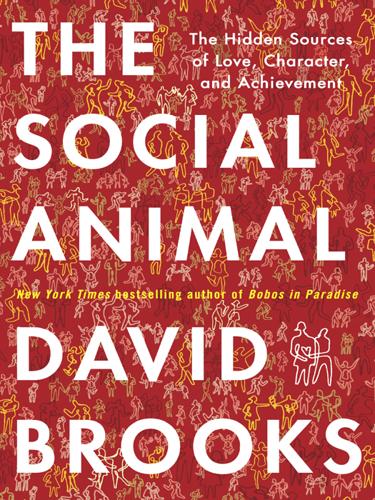
The Social Animal: The Hidden Sources of Love, Character, and Achievement
by
David Brooks
Published 8 Mar 2011
This effect disappears, however, when there is more than a three-year gap between children. The theory is that mothers talk to their firstborns more and use more complicated sentences. They have to divide their attention when they have young children born closely together. The broadest evidence of IQ malleability is the Flynn Effect. Between 1947 and 2002, IQ levels across the developed world rose steadily by about three percentage points per decade. This was found across many countries, across many age groups, and in many different settings, and it’s stark evidence of an environmental component to IQ. Interestingly, scores did not rise across all sections of the IQ test.
…
Nisbett, Intelligence and How to Get It: Why Schools and Cultures Count (New York: W.W. Norton & Co., Inc., 2009), 41. 11 They have to divide their Bruce E. Wexler, Brain and Culture: Neurobiology, Ideology, and Social Change (Cambridge, MA: MIT Press, 2006), 68. 12 Between 1947 and 2002 Nisbett, 44. 13 “Today’s children” James R. Flynn, What Is Intelligence?: Beyond the Flynn Effect (Cambridge: Cambridge University Press, 2007), 19. 14 They are not better David G. Myers, Intuition: Its Powers and Perils (New Haven, CT: Yale University Press, 2002), 35. 15 “IQ predicts only about 4 percent” Richard K. Wagner, “Practical Intelligence,” in Handbook of Intelligence, ed. Robert J.
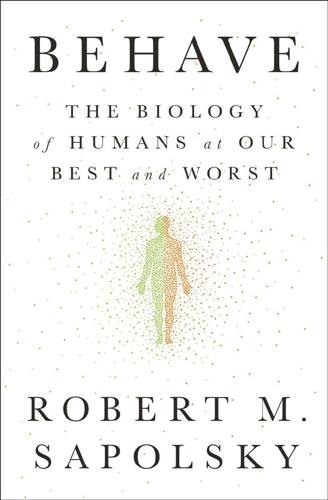
Behave: The Biology of Humans at Our Best and Worst
by
Robert M. Sapolsky
Published 1 May 2017
Their well-being begins to matter, prompting what Pinker calls an “escalator of reasoning”—an enlarged capacity for empathy and Us-ness. This underlies the “rights revolution”—civil rights, women’s rights, children’s rights, gay rights, animal rights. This view is a triumph of cognition. Pinker yokes this to the “Flynn effect,” the well-documented increase in average IQ over the last century; he invokes a moral Flynn effect, as increasing intelligence and respect for reasoning fuel better Theory of Mind and perspective taking and an increased ability to appreciate the long-term advantages of peace. In the words of one reviewer, Pinker is “not too fainthearted to call his own culture civilized.”3 Predictably, this has drawn fire from all sides.
…
Brian, 308, 309 fetus, 210–11 conflict with mother, 358–59 prenatal environment and, 7, 210–21 hormones in, 211–19 fight or flight response, 26, 125, 133–34, 149n finches, 379 firing squads, 471–72 Fischer, David Hackett, 288 fish, tit for tat behavior in, 351–52 Fiske, Richard, 654–55, 655, 660, 668, 670 Fiske, Susan, 408, 411, 421, 522, 533, 628–29 5HTT gene, 246, 251, 260, 261 fission-fusion species, 51, 429–30 flags, symbolic power of, 391, 554 Floyd, Pretty Boy, 184 Flynn effect, 617 Forbes, Chad, 89 forgiveness, 15, 18, 395, 638, 640–42 truth and reconciliation commissions (TRC), 638–39, 642 fossils, 329, 330, 375, 376 founder populations, 353–54, 633 foxes, domestication of Siberian silver, 377–78, 378 Francis, Darlene, 220 Frank, Laurence, 120 Franklin, Rosalind, 714 free will, 583n, 585, 586, 591, 598, 605, 607–9, 612–13 brain damage and, 590–91, 597, 598, 601–2, 609 and causation vs. compulsion, 593 Libet experiment and, 594 mitigated, 586–90, 592, 593, 595–98, 605 homunculus concept of, 588–89, 595–97, 600, 602, 607, 608 and starting a behavior vs. halting it, 594–95 Freud, Sigmund, 188–90, 222 Friedman, Thomas, 620 frontal cortex, 18, 19, 30, 38, 42, 45–64, 88, 91–92, 100, 132–34, 143, 144, 557, 607, 614 childhood adversity and, 195, 196 cognition and, 47–50, 159 damage to, 53, 590–91, 609 and doing the harder thing when it’s the correct thing to do, 45, 47–48, 50, 51, 55, 56, 63, 64, 74, 75, 92, 130, 134, 513, 515, 614 genes and, 173 insular cortex (insula), 41–42, 46, 59, 69, 398–99, 454, 531, 560–61, 10 limbic system and, 58–64 maturation in adolescence, 154–60, 171–73, 589–90, 592–93 subregions of, 46–47 Us/Them dichotomies and, 416–17 see also prefrontal cortex frontal lobotomies (aka leukotomies), 9 Fry, Douglas, 313, 314, 322–23, 322 fusiform face area, 80, 85–86, 88, 114, 122n, 388, 402 GABA, 119, 692 Gabrieli, John, 86 Gaddafi, Muammar, 653 Gage, Fred “Rusty,” 148 Gage, Phineas, 51–53, 52 Gallese, Vittorio, 535, 539, 540 galvanic skin resistance (GSR), 453 gambling, 73 game theory, see economic games and game theory Gandhi, Mahatma, 652 Gauthier, Isabel, 80 Gazzaniga, Michael, 591 Geertz, Clifford, 271 gender: differences, see sex differences of a face, 88 grammatical, 558n generosity, punishment for, 292n, 496 genes, 7–8, 10, 21, 108, 173, 223–65, 614 behavior and, 224, 233–49 “Big Five” personality traits and, 236 and difference between traits being inherited and having a high degree of heritability, 242–43 and fragile nature of heritability estimates, 241–45 gene/environment interactions and, 245–48 indirect routes in, 237 molecular genetics and, 249–50 papers published on, 605 suspicion of links in, 224 twin and adoption studies and, 234–41 violence, 224 candidate, study of, 250 chance and, 232–33 chromosomes, 223 and collectivist vs. individualistic populations, 277 and distortions of genetics, 224 DNA in, 108, 147, 223, 225–33, 261–62 as blueprint for constructing proteins, 712–14 mutations and polymorphisms and, 714–17 noncoding, 226 dopamine system and, 255–58, 264, 279–81, 280 DRD4, 256, 258, 260, 261, 279 7R variant, 256, 279–81 environment and, 225–29, 245–48 epigenetics, 220–21, 229–30 papers published on, 605 essentialism and, 224–25 evolution and, 328–29, 373–74 exons and introns, 230–31 FADS2, 246 “fishing expeditions” in study of, 261–63 5HTT, 246, 251, 260, 261 frontal cortex and, 173 oxytocin and vasopressin and, 227, 258–59 political orientation and, 455 reductionist view and, 224 RNA in, 225, 226, 230, 233, 713–14 “selfish,” 333, 342, 361, 367 serotonin and, 227, 246, 250–55, 264 steroid hormones and, 259–61 estrogen, 260 testosterone, 227, 259–60 transcription factor (TF) and, 226–29, 233 transposable elements in, 231–32 “warrior,” 77, 253–54 Genghis Khan, 367 genome, 223 genomewide association studies (GWAS), 261–64 genomics, 224 Genovese, Kitty, 94 Gettysburg, Battle of, 554, 644 Giuliani, Rudy, 95, 395–96 Gladwell, Malcolm, 152 glia cells, 680 global warming, 303 Glowacki, Luke, 314 glucocorticoids, 125–27, 129, 130, 132, 143, 144, 149n, 193, 275 early-life stressors and, 194–96 genes and, 260 prenatal, 219–20 rank and, 436–38, 438, 440 glutamate, 139–41, 143, 692 Gobodo-Madikizela, Pumla, 629–30 Golden Balls, 345n Golden Rule, 494, 520 Golgi, Camillo, 688 Goodall, Jane, 269–71, 358n Gopnik, Adam, 79 Gore, Al, 403 gorillas, mountain, 335–36 gossip, 324, 433, 503 Gould, Elizabeth, 148 Gould, Stephen Jay, 84, 362, 374–75, 380–85 Goy, Robert, 212–15 Graham v.
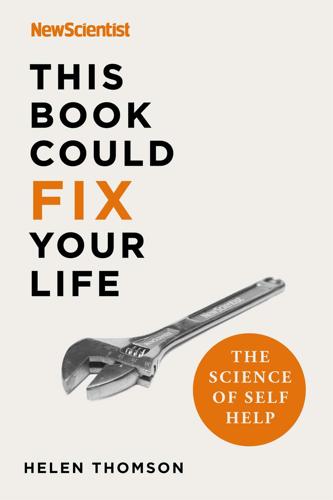
This Book Could Fix Your Life: The Science of Self Help
by
New Scientist
and
Helen Thomson
Published 7 Jan 2021
J. et al. (2007), ‘Intelligence and Educational Achievement’, Intelligence 35, 1, 13–21. 2. Forrest, L. F. et al. (2011), ‘The Influence of Childhood IQ and Education on Social Mobility in the Newcastle Thousand Families Birth Cohort’, BMC Public Health 11, 895. 3. Flynn, J. R. (2007), What Is Intelligence? Beyond the Flynn Effect. Cambridge: Cambridge University Press. 4. Ritchie, S. J and Tucker-Drop, E. M. (2018), ‘How Much Does Education Improve Intelligence? A Meta-Analysis’, Psychological Science 29, 8, 1358–69. 5. Smart, E. L. et al. (2014), ‘Occupational Complexity and Lifetime Cognitive Abilities’, Neurology 83, 24. 6.

Superbloom: How Technologies of Connection Tear Us Apart
by
Nicholas Carr
Published 28 Jan 2025
What we see is always influenced by the society we grow up in, its cultural norms and assumptions, its ways of being and understanding. In the late 1970s, the social psychologist James Flynn began studying long-term trends in IQ scores across many countries. He discovered that the scores had been going up at a steady clip throughout the century—a phenomenon that became known as the Flynn effect. When people read reports of his findings, they jumped to the happy conclusion that the human race is getting ever smarter. But Flynn offered a different explanation. It wasn’t the brain that was changing, it was the culture. Up until the end of the nineteenth century, most people spent their lives grappling with actual, concrete things.

Surfaces and Essences
by
Douglas Hofstadter
and
Emmanuel Sander
Published 10 Sep 2012
Given that such a list of contemporary concepts that are “in the air” could be extended for many pages, and that most adults can effortlessly apply many if not most of these abstract and insight-providing concepts to novel situations that they run across, does this mean that as culture marches forward in time, people are inevitably becoming ever more intelligent, ever more capable of rapidly pinpointing the cruxes of the situations they face, and of doing so with ever greater precision? As evidence in favor of this idea, many people have pointed to what is now called the “Flynn Effect”, after James R. Flynn, a political philosopher who in the 1980s drew attention to the fact that all around the world, scores on IQ tests were slowly but steadily rising, at the rate of roughly five points every twenty years. This unexpected observation has been confirmed many times in many countries.
…
Paris: Éditions du Seuil. Festinger, Leon (1957). A Theory of Cognitive Dissonance. Stanford: Stanford University Press. Flynn, James R. (1987). “Massive IQ gains in 14 nations: What IQ tests really measure”. Psychological Bulletin, 101, pp. 171–191. ————— (2009). What Is Intelligence? Beyond the Flynn Effect. New York: Cambridge University Press. Gentner, Dedre (2003). “Why we’re so smart”. In Dedre Gentner and Susan Goldin-Meadow (eds.), Language in Mind: Advances in the Study of Language and Thought, pp. 195–235, Cambridge, Mass.: MIT Press. Glucksberg, Sam (2001). Understanding Figurative Language: From Metaphors to Idioms.
…
M., 453, 482 dirtiness/badness analogy, 289–290 disappointment as source of reminding, 169–170 “dis-aster” of sun ceasing to exist, 489–490 discourse flow/savanna chase analogy, 71 discourse space, patterns and categories in, 69–76 “discoverativity” in mathematics and science, 451 disk ejection, naïve analogy for, 401 disk, rotating, pondered by Einstein, 497–498 distance, semantic: as measured by strength of zeugmaticity, 19; as revealed by speech errors, 270–278 distant domains, linked by analogies, 16–17 distillation of episodes, 165, 171–172 distorted recall of math-problem statement, 431 distrusting one’s own analogies, 528 division: as another name for “sharing”, 421, 426; easy versus hard word problems involving, 422–425; as a highly abstract mathematical operation, 448–449; as measuring, 420–426; naïve analogies for relating to, 416–421, 425–426; as necessarily making smaller, 416–420; as possibly making larger, 417; quotative, 420; as sharing, 419–426, 514; of a skyscraper by a floor, 448; word problems illustrating, 416, 422–425 dizzy analogies, 358, 360, 366 “DNA” versus “deoxyribonucleic acid”, 91 dogs: conceptual repertoire of, 178–181; expert knowledge about, 238–240; impressive analogies by, 180; starry sky as seen by, 165; subcategories of, 240; unfamiliar, dealt with by analogy, 23, 508 domain change, in caricature analogies, 321–324, 326 domestic as opposed to wartime decision-making, 337 domino theory in Vietnam War, 333–335, 513 Don’t judge a book by its cover as a category, 102 doors, doorknobs, doorbells, used by analogy, 23, 507, 509, 516 Doppler effect, 469–471 dormitive virtue, 248, 249 dots seen as moons, 44–45 double letters, subjective amount of salience of, 363–364 double referent of “here”, “there”, “that”, 140–143, 148–149 Doug/Monica analogy, 169–171; summarized, 170 down-ness, as relative notion, 491, 497 “dressing” of a math problem as channeling its solution pathway, 430, 434 “dude, one smart”, as indicative of category of speaker, 75 dump: as example of conceptual extension, 403; as example of marking, 230–231 Duncker, Karl, 250 Dustbuster: brand name, genericized, 217; buttons of, analogy between, 169–170 Dustbuster/subscripts analogy, 169–170, 174 Duvignau, Karine, 39 dyz analogy, see dizzy analogies —E— E = mc2, 319, 463; absent from Einstein’s first relativity article, 468; becomes famous, 482; confirmed by particle/antiparticle annhilation experiment, 482; derived by Einstein, 469–471; first appearance of, in 1905, 469, 474; first meaning of, 471, 472; second meaning of, 473–474; subsequent meanings of, 473, 482, 483–485; summary of Einstein’s mental processes in understanding the meaning of, 483–484 E/hν (number of blackbody quanta) as analogous to N (number of ideal-gas molecules), 459 Earth: mapped onto Jupiter, 44–45; pluralization of, 44 eating, diverse styles of, and zeugmas, 9–10 eclipse: frame blend used to explain, 367; as a shadow, 204–205 Eddington, Arthur, 496 Edison/Franklin analogical conflation, 275 education and naïve analogies, 389–394, 411–434 educational system, failures of, 389, 391–394, 410, 412, 414–416, 418, 421 “ego the size of a Macy’s Thanksgiving Day Parade balloon”, cultural knowledge required to understand, 128 Ehrenfest, Paul, paradox discovered by, 498 Eiffel Tower, exploited in caricature analogy, 322–323 Einstein, Albert, 109, 130, 132, 361: alleged abandonment of own ideas, 461; analogies by, 32, 452–499; as analogous to Ellen Ellenbogen, 468; as analogous to Gerhard Gelenk, 468; attacking fundamental questions, 488; attracting mosquito, 163, 165; belief in thermodynamics as bedrock of physics, 458; black body/ideal gas analogy by, 457–459, 463; deep faith in his own analogies, 459–463; discovering and interpreting E = mc2, 463, 465–485; discovering equivalence principle, 491–495; explanation of gravity by, 18, 489–496; face of, 183–184; finding analogy between gravity and Gauss’s geometry, 498; generalizing via intuition, 473–474, 477, 483, 484; guided by sense of cosmic unity, 468, 473–474, 480, 481, 484, 486, 495, 500, 501; handing weapons to his critics, 460; “happiest thought of my life”, 493–494; inner mental state of, 477–478, 480–481, 483–485, 491, 495, 498; learning to read, 109; likening gravity to fictitious force, 491–492; low-level analogies by, 454–455; magically combining two ideas of Galileo, 492; making an analogy between analogies, 495, 502; misled by his own analogy between gravity and electrostatics, 489–491; missing the analogy of 3-D space to 4-D space-time, 499; as “one smart dude”, 75; Poincaré’s letter of reference for, 501; pondering a rotating disk, 497–498; positing two types of mass, 476; quest for beauty by, 477–478, 485, 495, 500; rapid essence-spotting by, 454, 458, 463, 486, 501; refinding Wien’s analogy, 458; as salient entity, 320; sandwich-like name of, 215; seeing self as donkey, 454; of sex, the, 222; stereotype of, as superlogical thinker having no need to seek analogies, 453, 500; thought experiments by, 487, 491–492, 493–494, 495–496; transformed into world figure, 496; unification as characteristic style of thinking of, 454, 477, 485, 486, 491, 500, 501; word choices by, 454–455 electric field: due to moving magnet, 493; oscillating in vacuum, 212–213; vanishing thanks to shift of reference frame, 493–494 electromagnetic induction, 493 electromagnetic waves, 212–213, 455–460, 462, 469–471, 483; see also light electromagnetism, as area of physics, 467–468, 485 elephant in a store window, 298 elephant in the room situations, 174, 514 elevators, use of by analogy, 23 Ellenbogen, Ellen, 463–464 Ellie, frame blend by, 364–366 email address/postal address naïve analogy, 385–387 embarrassed analogy-making computer blurting out apology, 401 embodiment and analogy-making, 287–289 emergence of a concept’s essence over time, 200–204 Emmas, category of, 226–227 emotions: key role of in encoding and reminding, 169–171; powerfully evoked by analogies, 310–312 emperors, as translation of cor(o)nets, 379–380 encoding of experiences: analogies at the very abstract level of, 354; based on features at surface and deeper levels, 163–166; constraints on, 171; in Copycat microdomain, 346–349, 353–354; enigma of, 161, 346. 348; errors caused by, 274–275; implausibility of clairvoyance in, 173–174, 353–354; involving local, global, abstract, and emotional aspects, 161–162, 169–171, 175; as opposed to total rote recording, 172; as unconscious act of selection, 165–166; at various levels of abstraction, 335 energy: behaving analogously to mass, 472; behaving analogously to strange mass, 479, 484; conservation of, 472; distinction between two varieties of, 480; liquid versus frozen, 480; mutating from one form to another, 479; possessing mass, 471–478, 482, 483–484; potential, 479–480; silently lurking in normal mass, 482, 484 energy/strange mass analogy, 479–480, 484 engines: for categorization, 15; for inference, 20; for searching, 25, 115, 220, 402; for translation, 369 English language: borrowings from French, 122; breakup of siblinghood in, 77; contrasted with Chinese, 12; contrasted with French, 8, 11, 77, 78, 79–80, 81–83, 89, 97, 101, 102, 113, 119–123, 465; contrasted with German, 8–9, 465; contrasted with Indonesian, 77; contrasted with Italian, 8, 11, 89; contrasted with Russian, 9–10 enrichment via impoverishment, 250 entropy calculations leading to light quantum, 458 equals sign: as denoting identity of two items, 407–409; as denoting operation + result, 407–411; invention of, 408; meaning of, in E = mc2, 473 equations: in advertising, 409–410; asymmetric conception of, 407–411, 474; causal interpretation of, 410–411, 474; as requiring interpretation, 473; turned around, 409–410 equivalence principle, 491–495; extended, 495–496 error, as category with blurry boundaries, 41, 281 errors: caused by real-time categorization pressures, 258, 261; caused by semantic proximity, 270–278; deep problem of explanation of, 264; due to frame blend of physical world with virtual world, 404–407; high-level analogies giving rise to, 268, 274–278, 280; versus children’s semantic approximations, 41, 270; as visible traces of subterranean processes, 259, 261; see also action errors, frame blends, lexical blends, speech errors esprit d’escalier as a concept available to francophones but not to anglophones, 121 “essence”, double meaning of, in French, 291 essences: compression of situations down to, 261; hidden by surfaces, 114–115; revealed by caricature analogies, 317–318, 320–323, 326–330; revealed by repeated conceptual extensions, 200–204, 255, 295, 397–398 essence-spotting: in caricature-analogy creation, 321–322, 324–330; by children, 42; in Copycat domain, 350; as crux of intelligence, 125–127, 426–427, 452, 463; in deeply novel situations, as rare gift, 131; by Einstein, 454, 458, 463, 486; implausibility of instant carrying-out of, 173–174; made easy by prior placement of conceptual pitons, 131; role of expertise in, 174; as routine and unseen, 18; as secret of generalization in mathematics, 449; time taken in, 466 esthetics, in Copycat domain, 349–352, 355–357, 359–360, 353–364; as driving Einstein, 477–478, 485, 495, 500 “étudiant” as both gendered and generic in one sentence, 194 Euler, Leonhard, 210, 443, 449 Eureka moment, 250–252, 300–301 Europe/Asia analogies, 306–307, 334 Everest, Mount, 109, 320, 367 Everett, David, 109 everyday imagery versus grand historical precedents, 333–335 everyday life versus book-learning, 391–394 evolution of a concept as revealing its essence, 202–204 evolutionary interpretation of the lure of the superficial, 338 “exactly the same thing”, 143, 152, 153, 346, 347, 358, 364, 379, 399, 407, 495, 520 expectations embedded in “and” and “but”, 70–75 experiments on memory retrieval, flaws in, 337–340 expert knowledge and hierarchical levels of categorization, 236–246 expert-level versus novice-level categorization, 342–344, 346 expertise: in everyday life, 344; facilitating essence-spotting, 174; nature of, 238–246; precision and depth as keys to, 246 experts’ blindness to shallow features, 343–344 explanatory caricature analogies, 324–330 exponents/subscripts analogy by Doug, 169–170 ex post facto diagrams of a deep analogy, as casting no light on its creation, 160 extension versus intension of a category, 55, 244 extra force to explain anomalous motions in an accelerating frame, 488 extrapolation of one’s past experiences as an irresistible mental force, 305–307, 310–313 eyelash/eyelash analogy, 155–156, 517 —F— F = ma, 410, 491 fables as labels of categories, 111–118 Fabre, Jean-Henri, 388 fabric internal to various letter strings, 353–354, 356–357 facial remindings, 181–184 fake boat and fake tango category, 521–522 Falen, James, 315 Falkland Islands War, Greece’s position in, 332 false hopes engendered by irresistible analogy, 313 fame leading to canonization, 221 familiarity, effects on categorization of, 390–391 Faraday, Michael, 493; of window-glass making, the, 222 far-fetched analogies, deliberate search for, as non-recipe for creativity, 251, 452 fathers encoded as disillusioners, 171 fatuity, gratuity, and vacuity, 282 Fauconnier, Gilles, 335, 362–364, 365, 433, 443 fauxthenticity, concept of, 176–178, 345 feminine and masculine rhymes, 380–381 Fenway (dachshund), analogies by, 180 Fermi, Enrico, 453 Ferrari, Lodovico, 445 Ferré, Léo, 221 Ferro, Scipione del, 438 Festinger, Leon, 115 fictitious forces, 488, 491–492 “fictitious” (negative) numbers, 440 fields, electric and magnetic: oscillating, 212–213 fields (mathematical), 447–448 films of events as constituting episodic memory, 172 filtering as ongoing perceptual process, 298–299 fine line separating simple from deep analogies, 45, 142–143 finger-pointing analogies, 140–143; see also index finger, heart, toe finger-wiggling analogies, 350–351, 515 Finlay-Freundlich, Erwin, 496 firewalls protecting us from hackers, spam, and viruses, 396, 398 first ⇒ last conceptual slippage, 356–357 first names as defining categories, 226–227 flashlight, two-headed, 470–471 fleeting analogies, vanishing before being noticed, 282, 285–286 floppy-disk icon, outmodedness of, 402 flow of discourse, psychology reality of, 71 fluid analogies in the Copycat domain, 348, 350, 352, 357 fly on screen, removal of using mouse, 405 Flynn effect on IQ scores, 10–131 Flynn, James R., 130 “folder”, old-fashioned definition of, 397 foot, internal structure of the concept, 51 forgetfulness, selective, as key ingredient of intelligence, 426–427 formal knowledge, inadequacy of, 389, 391–394 formal operations versus mental simulation in math, 424–425, 431 formulas conflated with understanding, 391–394 “4 is to 3 as 3 is to 2” proportional analogy, 438, 444 four-dimensional space: absurdity of, 443; as analogous to three-dimensional space, 444, 453 “Four score and seven years ago” translation challenge, 368–372 “Fox and the Grapes”, fable by Æsop, 112–114; see also poems in the text, sour grapes fractional dimensions, 444 frame blends: of American and Chinese cultures, 367–368; of car driving and video-game playing, 405; of cemetery circuit and hotel circuit, 142; of computer world and physical world, 402–407; of conferences, 142; in Copycat domain, 359–360, 363–364; creativity manifested by, 360–364; defined, 358–359; of dominos toppling and countries falling to communism, 335; of drooping cigarette and drooping penis, 362; of emperor Napoleon and emperor penguins, 380; of grocery stores, 23, 156; of lecture hall and professor’s office, 142; in light/sound analogy, 361; of name-change upon marriage and year-change every January, 148; of plate-throwing woman and her mother, 367; in scientific analogies, 360–361; of solar system and atom, 142–143; subjectivity of, 363–364; of there situations, 140–143; of two trains, 140–141; as typical analogies, 364; underlying diagram of ballet-lesson problem, 432–433; in understanding of “dent”, 363; in understanding of films, operas, etc., 361; in understanding of “safe”, 362; used by authors in the text, 366–367; versus analogies, 363–364, 366–367 frames of reference: absolute, 487; accelerating, 486, 488; indistinguishability of certain, 466–468, 486–487, 492, 494–495; shifts between, 466–468, 469–471, 487–488, 492–494, 495–496, 497–498 framing of errors as making them easy to see, 262 Franklin, Benjamin, 109, 275 freedom-of-speech joke, 358 “freeing oneself from the known”, chimerical idea of, 313–315 French Academy (Académie française), 113 French fries: combined with orange sherbet, 352; portion of, likened to bagels in a batch, 308 French language: “A rolling stone gathers no moss” in, 102; bilingual data base involving, 372–373; borrowings from English in, 122; compound words in, 87, 89; concept of hair in, 77; concept of sibling in, 77; contrasted with English language, 8, 11, 77, 78, 79–80, 81–83, 89, 97, 101, 102, 113, 119–123, 465; different translations for “time” in, 77–78; “Four score and seven years ago” in, 369–372; grammar of, exploited, for high-quality translation, 376–377; idioms in, 97, 119; “Once bitten, twice shy” in, 105; proverbs in, 101, 106, 109; this book’s realization in, 377–382; zeugmas in, 8, 11–12 Fresnel, Augustin-Jean, 212 Freud, Sigmund, 132, 259, 362, 501 Freudian slips, 259 friendship crumbling to bits, 133 fringe members of categories, 14 Fromkin, Victoria, 259 frozen assets/liquid assets membrane, breaking of, 476–477 functional and visual analogies, reinforcing, 277–278 fund-raising in American universities, 109 Funes, Ireneo, lacking ability to abstract, 188 Funk & Wagnalls 1932 dictionary, 201, 396–397 furniture, fringe members of the category, 528 —G— Galilean relativity, principle of, 466–468, 485, 486, 492 Galilei, Galileo, 130, 466, 471; compared with two-year-old Lenni, 45; extending the concept Moon, 43–45, 147, 210, 217; hypothetically admiring Einstein, 392; seeing not moons but quote-unquote “Moons”, 64; of the soccer ball, the, 222; using the Tower of Pisa to investigate falling objects, 493, 493; work on sound waves by, 210 Galois, Évariste: discovery of key link between polynomials and radicals, 446; group theory invented by, 446–447; killed in debate, 274, 448; opening the Pandora’s box of abstraction in mathematics, 448; of tobacco science, the, 222 Gauss, Karl Friedrich, 498 Gaussian primes, 448 gearshift, as perceived by novice versus by expert driver, 340, 343, 344 Gelenk, Gregorius, 464 generalization: of Doppler effect, 470; by Einstein, 467–468, 473–474, 484; of Galilean relativity, 467–468, 485; going hand-inhand with abstraction in math, 449; as irresistible drive in mathematics, 444, 447–449; of 3-D space to 4-D space-time, 498–499; of 2-D Gaussian geometry to 4-D geometry, 499; see also category extension general relativity, see relativity, general genericide, 217–218 genius: compared with child, 45; irrationality at the core of (Hoffmann), 501; spotting essences of important situations, 452; versus mediocrity, silly stereotype of, 452 genius of a given language, 120–124 Gentner, Dedre, 338, 436 genus versus species, 239, 242 geometrical interpretation, as rendering abstract mathematical concepts more real, 443 George’s thesis advisor, judged by analogy with the reader, 157 German language, 6, 8, 9, 12, 369; compound words in, 87, 465 gestalt psychology, 349–350 “get”, broken into many concepts in French, 80 Gevrey-Chambertin Premier Cru Les Cazetiers Dominique Laurent 1996, 245, 256 Ghent, Admiral, definition of intelligence by, 125 Gibson, James, 278, 345 Gick, Mary, 436 gilding the lily in the Copycat domain, 352-353 gist-finding, see essence-spotting gists, sacrificed through wanton acts of abstraction, 107 “give”, metaphorical use of, 6, 64–65 glass of water: conflated with one-dollar bill, 280; falling floorwards, 389 glass on shelf, as multi-categorized by Mr.
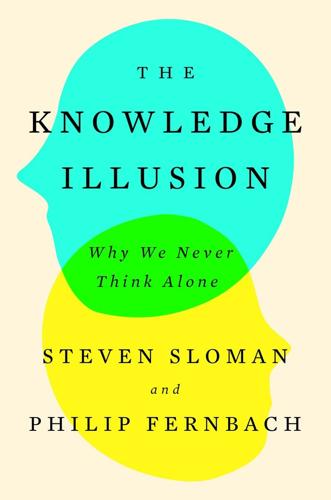
The Knowledge Illusion
by
Steven Sloman
Published 10 Feb 2017
Tomasello, shared intentionality: This and the other work on shared intentionality reviewed here are discussed in M. Tomasello and M. Carpenter (2007). “Shared Intentionality.” Developmental Science 10(1): 121–125. Tomasello quote: Ibid., p. 123 not . . . getting smarter: Though they are doing better and better on intelligence tests. J. R. Flynn (2007). What Is Intelligence? Beyond the Flynn Effect. New York: Cambridge University Press. couples divide cognitive labor: D. M. Wegner (1987). “Transactive Memory: A Contemporary Analysis of the Group Mind.” In ed. B. Mullen and George Goethals, Theories of Group Behavior. New York: Springer, 185–208. more credit than they deserve: Reviewed in M.
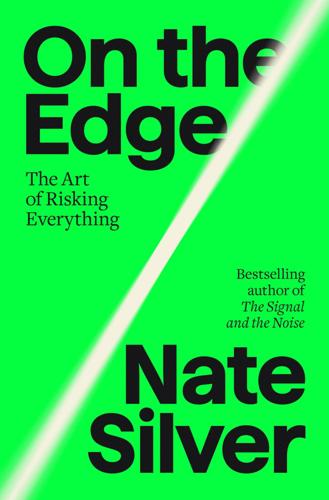
On the Edge: The Art of Risking Everything
by
Nate Silver
Published 12 Aug 2024
,” The New Republic, May 24, 2022, newrepublic.com/article/166584/sam-bankman-fried-crypto-kings-political-donations. GO TO NOTE REFERENCE IN TEXT EA-friendly political neophyte: Miranda Dixon-Luinenburg, “Carrick Flynn May Be 2022’s Unlikeliest Congressional Candidate. Here’s Why He’s Running,” Vox, May 14, 2022, vox.com/23066877/carrick-flynn-effective-altruism-sam-bankman-fried-congress-house-election-2022. GO TO NOTE REFERENCE IN TEXT Flynn had never: Coordinating with a super PAC would have been illegal anyway under campaign finance laws. “Super PACs Can’t Coordinate with Candidates—Here’s What Happened When One Did,” Campaign Legal Center, January 30, 2023, campaignlegal.org/update/super-pacs-cant-coordinate-candidates-heres-what-happened-when-one-did.
…
GO TO NOTE REFERENCE IN TEXT subtract an estimated: Christopher Flavelle, “Climate Change Could Cut World Economy by $23 Trillion in 2050, Insurance Giant Warns,” The New York Times, April 22, 2021, sec. Climate, nytimes.com/2021/04/22/climate/climate-change-economy.html. GO TO NOTE REFERENCE IN TEXT decline in IQ: Elizabeth M. Dworak, William Revelle, and David M. Condon, “Looking for Flynn Effects in a Recent Online U.S. Adult Sample: Examining Shifts Within the SAPA Project,” Intelligence 98 (May 2023): 101734, doi.org/10.1016/j.intell.2023.101734. GO TO NOTE REFERENCE IN TEXT going to college: “What Percentage of US High School Graduates Enroll in College?,” USAFacts, usafacts.org/data/topics/people-society/education/higher-education/college-enrollment-rate.

The Big Nine: How the Tech Titans and Their Thinking Machines Could Warp Humanity
by
Amy Webb
Published 5 Mar 2019
“Quick Facts 2015,” National Highway Traffic Safety Administration, https://crashstats.nhtsa.dot.gov/Api/Public/ViewPublication/812348. 11. “Aviation Statistics,” National Transportation Safety Board, https://www.ntsb.gov/investigations/data/Pages/aviation_stats.aspx. 12. Frederick P. Brooks, The Mythical Man Month: Essays on Software Engineering, Anniversary Edition (Boston: Addison Wesley, 1995). 13. Peter Wilby, “Beyond the Flynn Effect: New Myths about Race, Family and IQ?,” Guardian, September 27, 2016, https://www.theguardian.com/education/2016/sep/27/james-flynn-race-iq-myths-does-your-family-make-you-smarter. 14. Stephanie Condon, “US Once Again Boasts the World’s Fastest Supercomputer,” ZDNet, June 8, 2018, https://www.zdnet.com/article/us-once-again-boasts-the-worlds-fastest-supercomputer/. 15.
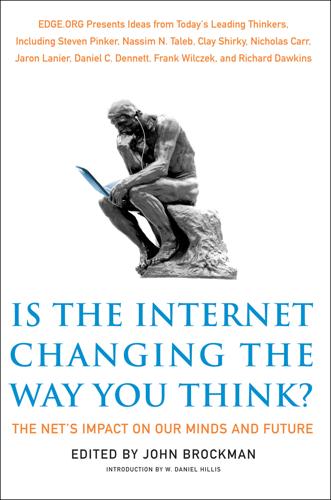
Is the Internet Changing the Way You Think?: The Net's Impact on Our Minds and Future
by
John Brockman
Published 18 Jan 2011
The best Jeeves could do with your profound question—the best any search engine can do today—is direct you to the thoughts of another human being who has already attempted to answer a question related to yours. This is not to say that cultural artifacts can’t change the way we think. The political philosopher Jim Flynn has documented substantial gains in IQ in the twentieth century (the Flynn effect), which he attributes to our enhanced capacity for abstract thought, which he in turn attributes to the cognitive demands of the modern marketplace. Why hasn’t the Internet had a comparable effect? The answer, I think, is that the roles of master and servant are reversed. We place demands on the Internet, but the Internet hasn’t placed any fundamentally new demands on us.
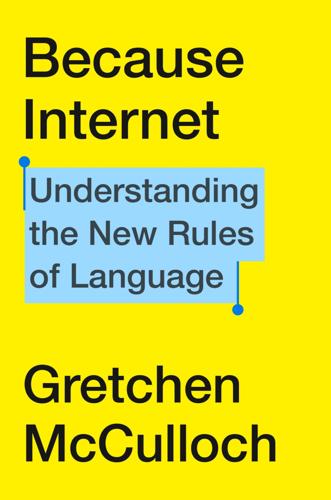
Because Internet: Understanding the New Rules of Language
by
Gretchen McCulloch
Published 22 Jul 2019
One method of bridging: Su Lin Blodgett, Lisa Green, and Brendan O’Connor. 2016. “Demographic Dialectal Variation in Social Media: A Case Study of African-American English.” Proceedings of the 2016 Conference on Empirical Methods in Natural Language Processing. pp. 1119–1130. arxiv.org/pdf/1608.08868v1.pdf. “15-year-old users”: Ivan Smirnov. 2017. “The Digital Flynn Effect: Complexity of Posts on Social Media Increases over Time.” Presented at the International Conference on Social Informatics, September 13–15, 2017, Oxford, UK. arxiv.org/abs/1707.05755. textisms might interfere: Michelle Drouin and Claire Davis. 2009. “R u txting? Is the Use of Text Speak Hurting Your Literacy?”

More Everything Forever: AI Overlords, Space Empires, and Silicon Valley's Crusade to Control the Fate of Humanity
by
Adam Becker
Published 14 Jun 2025
,” Oregon Public Broadcasting, April 24, 2022, www.opb.org/article/2022/04/25/what-does-a-crypto-tycoon-want-with-oregons-new-congressional-district/; Miranda Dixon-Luinenburg and Dylan Matthews, “Carrick Flynn May Be 2022’s Unlikeliest Candidate. Here’s Why He’s Running,” Vox, May 14, 2022, www.vox.com/23066877/carrick-flynn-effective-altruism-sam-bankman-fried-congress-house-election-2022. 43 Cullen O’Keefe et al., The Windfall Clause: Distributing the Benefits of AI (Oxford: FHI, 2020), www.fhi.ox.ac.uk/windfallclause/. 44 Sabrina Rodriguez, “Crypto Gets Its First Big Political Test,” Politico, May 17, 2022, www.politico.com/news/2022/05/17/oregon-elections-crypto-super-pac-00032960; “Protect Our Future PAC Independent Expenditures,” Open Secrets, accessed June 16, 2024, www.opensecrets.org/political-action-committees-pacs/protect-our-future-pac/C00801514/independent-expenditures/2022; “About,” Andrea Salinas, House of Representatives, accessed June 16, 2024, https://salinas.house.gov/about. 45 Chris Lehman, “Andrea Salinas, Carrick Flynn Emerge as Frontrunners in Democrats’ 6th District Race for Congress,” The Oregonian, May 5, 2022, www.oregonlive.com/politics/2022/05/andrea-salinas-carrick-flynn-emerge-as-frontrunners-in-democrats-6th-district-race-for-congress.html; Ballotpedia, “Oregon’s 6th Congressional.” 46 Gabriel Pogrund, “What the Vote Leave Chief Honestly Thinks About Brexit,” New Statesman, October 20, 2016, www.newstatesman.com/politics/the-staggers/2016/10/what-vote-leave-chief-honestly-thinks-about-brexit; Euan Ritchie and Ian Mitchell, “The UK as an Effective Altruist,” Center for Global Development, August 10, 2020, www.cgdev.org/publication/uk-effective-altruist; Press Association, “Millionaire Donors and Business Leaders Back Vote Leave Campaign to Exit EU,” The Guardian, October 9, 2015, www.theguardian.com/politics/2015/oct/09/millionaire-donors-back-cross-party-campaign-to-leave-eu. 47 “Dominic Cummings: PM’s Top Adviser Leaves No 10 to ‘Clear the Air,’” BBC, November 13, 2020, www.bbc.com/news/uk-politics-54938050; Alex Wickham, “How Dominic Cummings Took Control in Boris Johnson’s First Days as Prime Minister,” BuzzFeed News, July 27, 2019, www.buzzfeed.com/alexwickham/how-dominic-cummings-took-control-in-boris-johnsons-first; Sean Morrison, “Key Players in Boris Johnson’s Election Campaign: From Dominic Cummings to Isaac Levido and Lee Cain,” Standard, December 13, 2019, www.standard.co.uk/news/politics/boris-johnson-election-campaign-key-players-a4312441.html; Henry Mance and George Parker, “Combative Brexiter Who Took Control of Vote Leave Operation,” Financial Times, June 13, 2016, www.ft.com/content/cceb7038-30cc-11e6-bda0-04585c31b153#axzz4H22r0hWH. 48 Dominic Cummings, “‘Two Hands Are a Lot’—We’re Hiring Data Scientists, Project Managers, Policy Experts, Assorted Weirdos…,” Dominic Cumming’s Blog, January 2, 2020, https://dominiccummings.com/2020/01/02/two-hands-are-a-lot-were-hiring-data-scientists-project-managers-policy-experts-assorted-weirdos/; Tom Chivers, “Could the Cummings Nerd Army Fix Broken Britain?
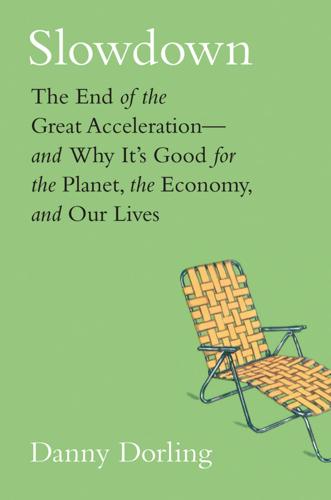
Slowdown: The End of the Great Acceleration―and Why It’s Good for the Planet, the Economy, and Our Lives
by
Danny Dorling
and
Kirsten McClure
Published 18 May 2020
“Activated Sludge—100 Years and Counting,” International Water Association Conference, June 2014, Essen, Germany, http://www.iwa100as.org/history.php. 22. Max Roser, “Human Height,” OurWorldInData.org, 2016, https://ourworldindata.org/human-height/. 23. Lisa Trahan, Karla Stuebing, Merril Hiscock, and Jack Fletcher, “The Flynn Effect: A Meta-analysis,” Psychological Bulletin 140, no. 5 (2014): 1332–60, https://www.ncbi.nlm.nih.gov/pmc/articles/PMC4152423/. 24. Ariane de Gayardon, Claire Callender, KC Deane, and Stephen DesJardins, “Graduate Indebtedness: Its Perceived Effects on Behaviour and Life Choices—A Literature Review” (working paper no. 38, Centre for Global Higher Education, June 2018), https://www.researchcghe.org/publications/working-paper/graduate-indebtedness-its-perceived-effects-on-behaviour-and-life-choices-a-literature-review/. 25.

Diet for a New America
by
John Robbins
Mayer, “Egg vs. Cholesterol Battle,” New York Daily News, October 9, 1974, 48. 25. Hausman, Jack Sprat’s Legacy, 218. 26. Ibid. 27. Ibid., 219. 28. “Orders a Stop on Egg Claims,” New York Daily News, December 12, 1975, 62. 29. Ibid. 30. Cited in Hausman, Jack Sprat’s Legacy, 219. 31. M. Flynn, “Effect of Dietary Egg on Human Serum Cholesterol and Triglycerides,” American Journal of Clinical Nutrition 32 (1979): 1051; G. Slater, “Plasma Cholesterol and Triglycerides in Men with Added Eggs in the Diet,” Nutrition Reports International 14 (1976): 249; T. Dawber, “Eggs, Serum Cholesterol, and Coronary Heart Disease,” American Journal of Clinical Nutrition 36 (1982): 617; M.

Accelerando
by
Stross, Charles
Published 22 Jan 2005
Rita's got a lot to learn from her, if she can get close enough. And right now, following her along a path through the landscaped garden behind the museum seems like a golden moment of opportunity. Amber smiles. "I'm glad I'm not processing immigrants these days; most of them are so stupid it drives you up the wall after a bit. Personally I blame the Flynn effect – in reverse. They come from a background of sensory deprivation. It's nothing that a course of neural growth enhancers can't fix in a year or two, but after the first few you skullfuck, they're all the same. So dull. Unless you're unlucky enough to get one of the documentees from a puritan religious period.
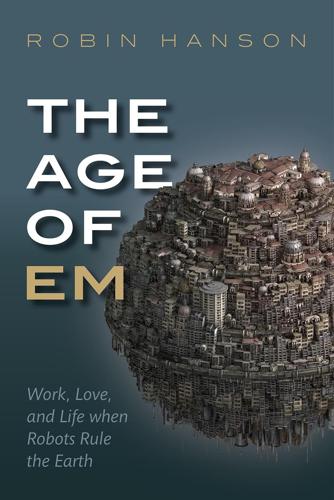
The Age of Em: Work, Love and Life When Robots Rule the Earth
by
Robin Hanson
Published 31 Mar 2016
“Pathogen Prevalence Predicts Human Cross-cultural Variability in Individualism/collectivism.” Proceedings Royal Society B 275(1640): 1279–1285. Fletcher, Jason. 2013. “The Effects of Personality Traits on Adult Labor Market Outcomes: Evidence from Siblings.” Journal of Economic Behavior & Organization 89(May): 122–135. Flynn, James. 2007. What Is Intelligence?: Beyond the Flynn Effect. Cambridge University Press. August 27. Flyvbjerg, Bent. 2015. “What You Should Know About Megaprojects and Why: An Overview.” Project Management Journal 45(2). “Forbes Ranking of Billionaires: The World’s Richest Jews.” 2013. Forbes Israel, April 17. http://www.forbes.co.il/news/new.aspx?pn6Vq=J&0r9VQ=IEII.
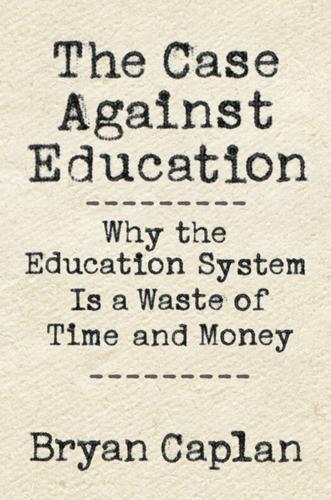
The Case Against Education: Why the Education System Is a Waste of Time and Money
by
Bryan Caplan
Published 16 Jan 2018
Accessed November 15, 2015. https://en.wikipedia.org/wiki/List_of_best-selling_books. Wikiquote. 2016. “Walt Kelly.” Accessed February 15, 2016. https://en.wikiquote.org/wiki/Walt_Kelly. Wiles, Peter. 1974. “The Correlation between Education and Earnings: The External-Test-Not-Content Hypothesis (ETNC).” Higher Education 3 (1): 43–58. Williams, Robert. 2013. “Overview of the Flynn Effect.” Intelligence 41 (6): 753–64. Winship, Christopher, and Sanders Korenman. 1997. “Does Staying in School Make You Smarter? The Effect of Education on IQ in The Bell Curve.” In Intelligence, Genes, and Success, edited Bernie Devlin, Stephen Fienberg, Daniel Resnick, and Kathryn Roeder, 215–34.
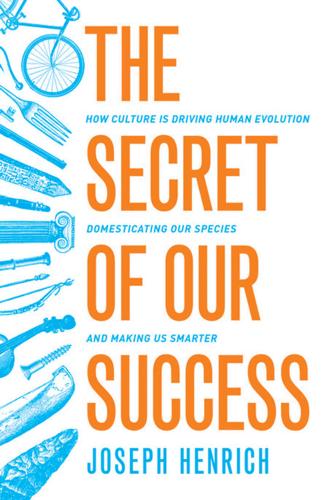
The Secret of Our Success: How Culture Is Driving Human Evolution, Domesticating Our Species, and Making Us Smarter
by
Joseph Henrich
Published 27 Oct 2015
“Formative Mexican chiefdoms and the myth of the ‘Mother Culture.’” Journal of Anthropological Archaeology 19 (1–37). ———. 2012. The Creation of Inequality: How our Prehistoric Ancestors Set the Stage for Monarchy, Slavery, and Empire. Cambridge, MA: Harvard University Press. Flynn, J. R. 2007. What Is Intelligence? Beyond the Flynn effect. Cambridge: Cambridge University Press. ———. 2012. Are We Getting Smarter? Rising IQ in the Twenty-First Century. Cambridge: Cambridge University Press. Foley, C., N. Pettorelli, and L. Foley. 2008. “Severe drought and calf survival in elephants.” Biology Letters 4 (5):541–544. Foster, E. A., D.
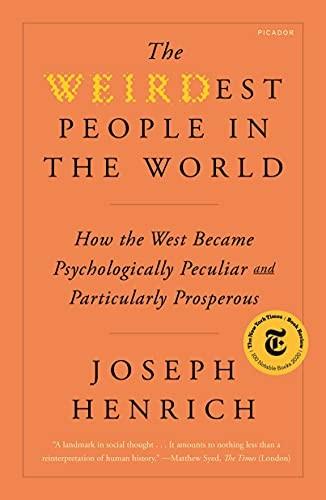
The WEIRDest People in the World: How the West Became Psychologically Peculiar and Particularly Prosperous
by
Joseph Henrich
Published 7 Sep 2020
Current Anthropology 45 (2), 284–88. Fleming, A. S., Corter, C., Stallings, J., and Steiner, M. (2002). Testosterone and prolactin are associated with emotional responses to infant cries in new fathers. Hormones and Behavior 42 (4), 399–413. Flynn, J. R. (2007). What Is Intelligence? Beyond the Flynn Effect. Cambridge: Cambridge University Press. Flynn, J. R. (2012). Are We Getting Smarter? Rising IQ in the Twenty-First Century. Cambridge: Cambridge University Press. Forge, A. (1972). Normative factors in the settlement size of Neolithic cultivators (New Guinea). In P. Ucko, R. Tringham, and G.
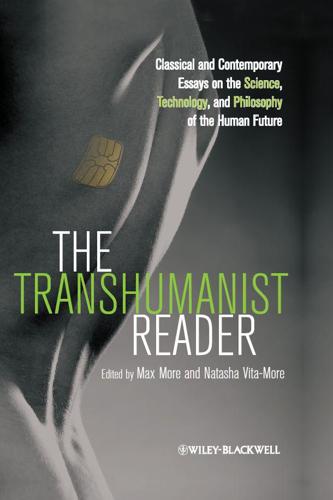
The Transhumanist Reader
by
Max More
and
Natasha Vita-More
Published 4 Mar 2013
However, we teach the most valuable concepts first, and the productivity value of schooling eventually falls off, instead of exploding to infinity. Similarly, the productivity improvement of factory workers typically slows with time, following a power law. At the world level, average IQ scores have increased dramatically over the last century (the Flynn effect), as the world has learned better ways to think and to teach. Nevertheless, IQs have improved steadily, instead of accelerating. Similarly, for decades computer and communication aids have made engineers much “smarter,” without accelerating Moore’s law. While engineers got smarter, their design tasks got harder.